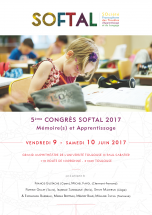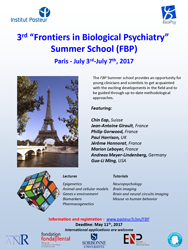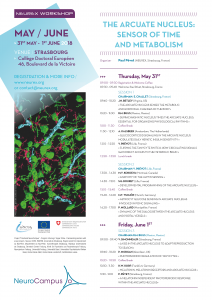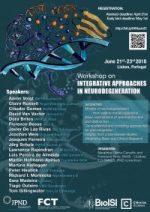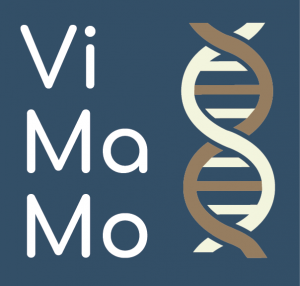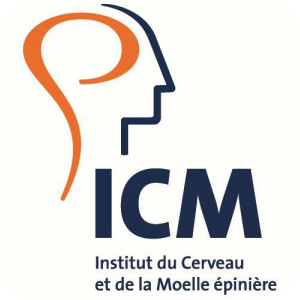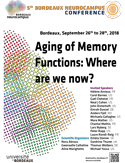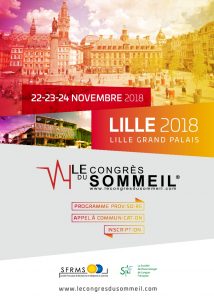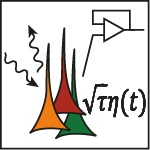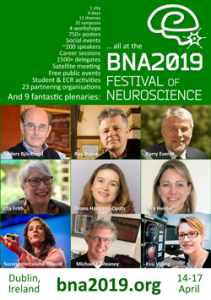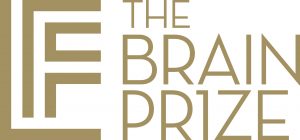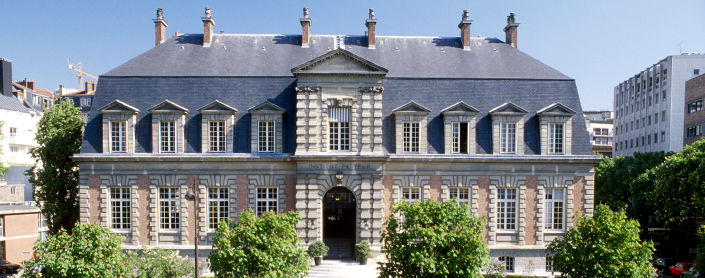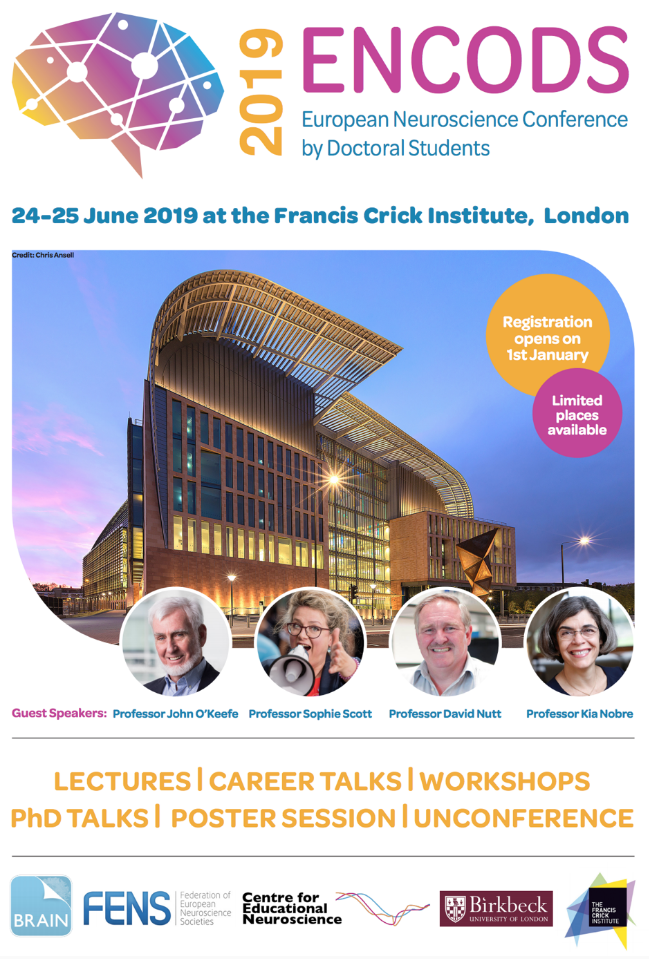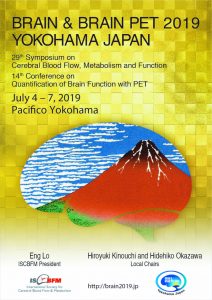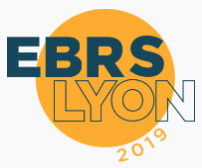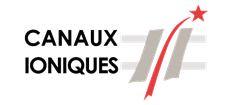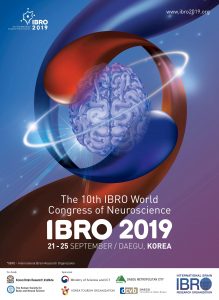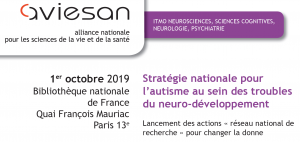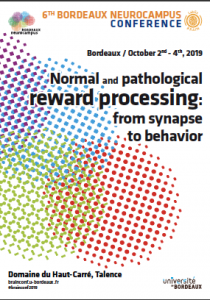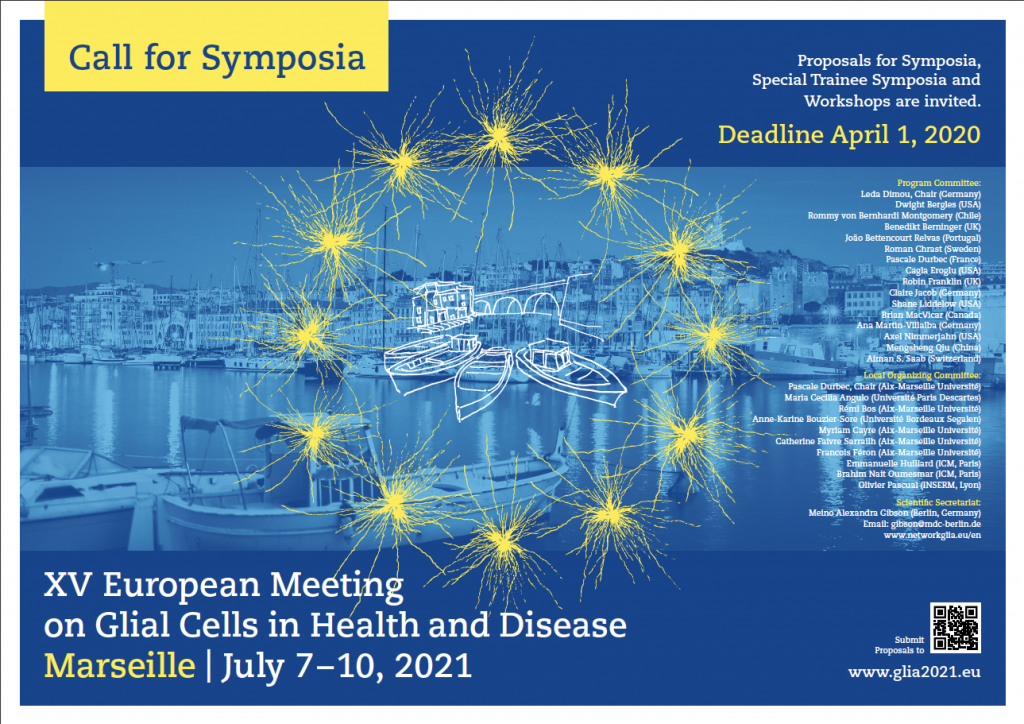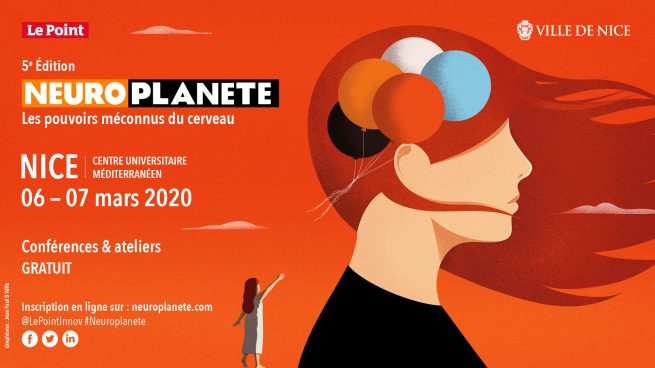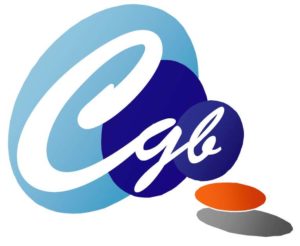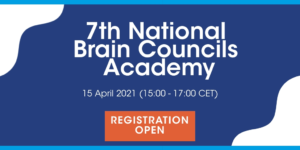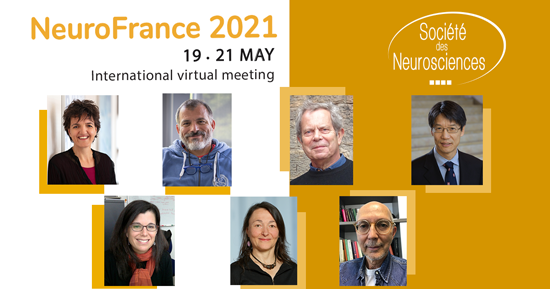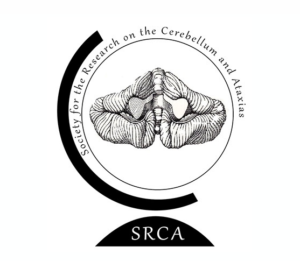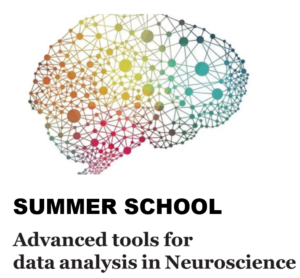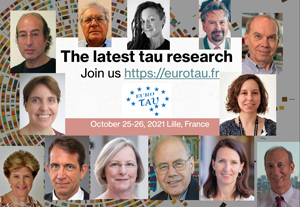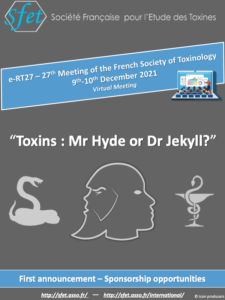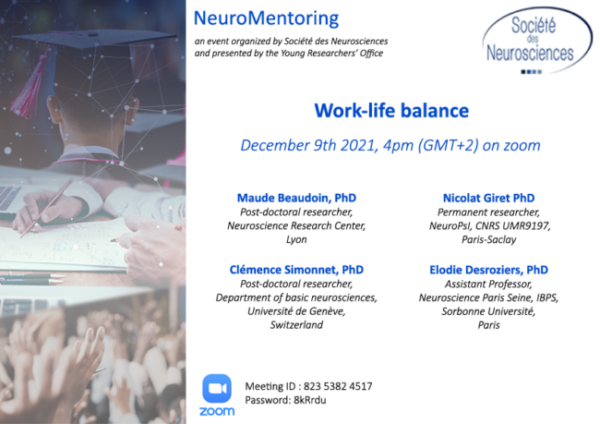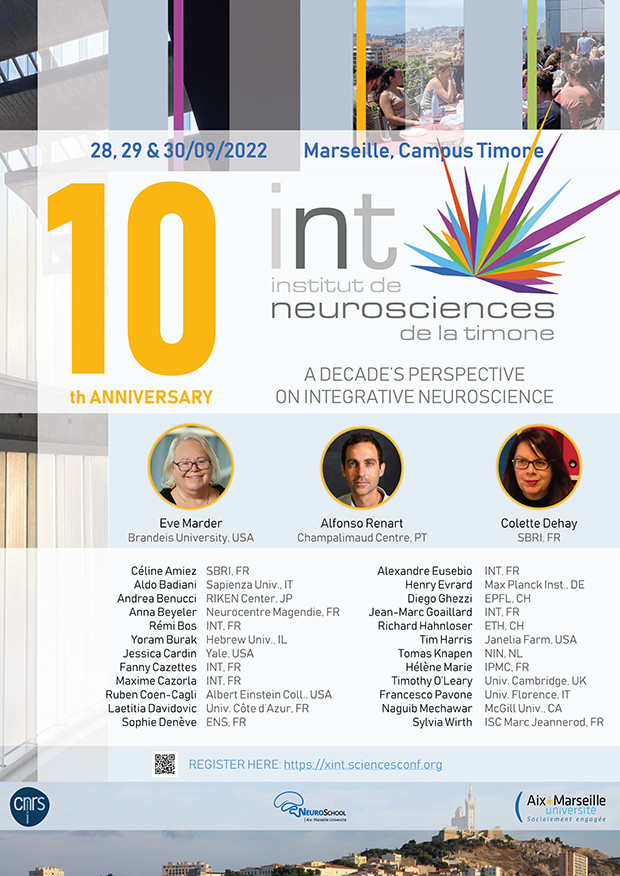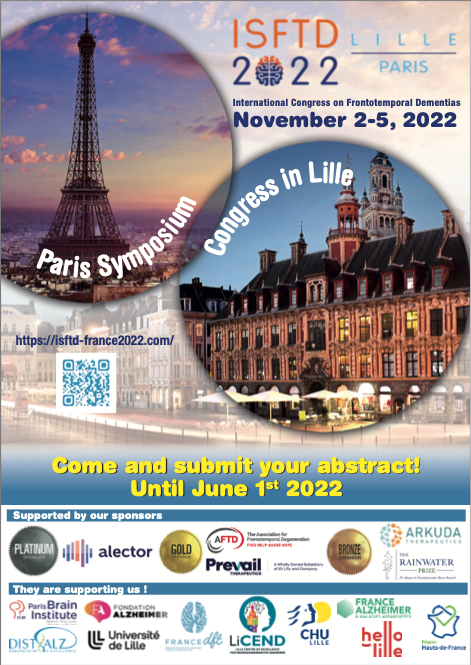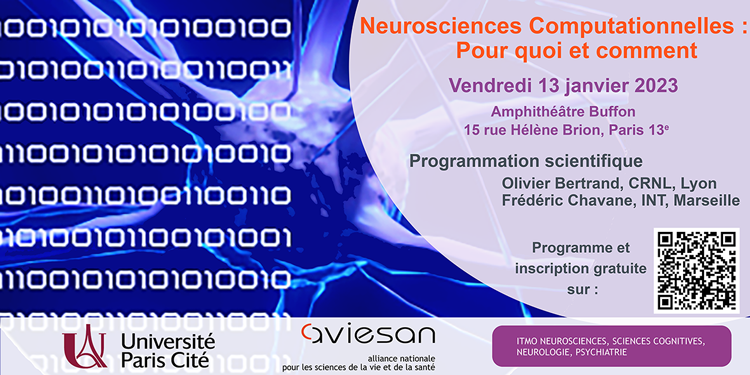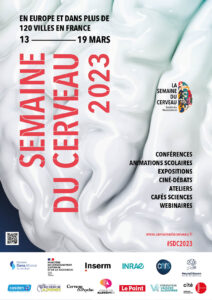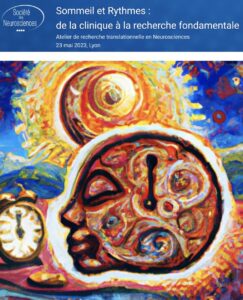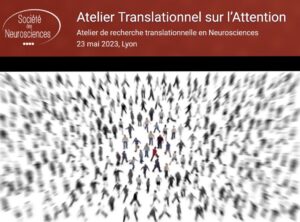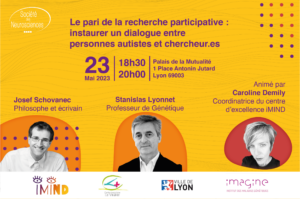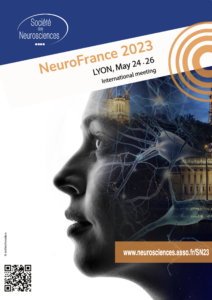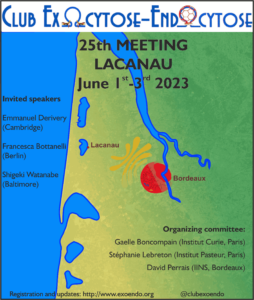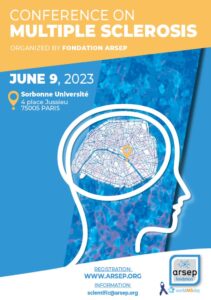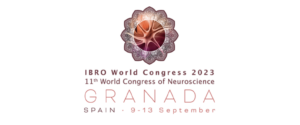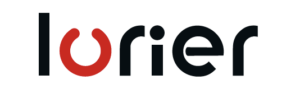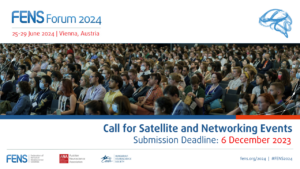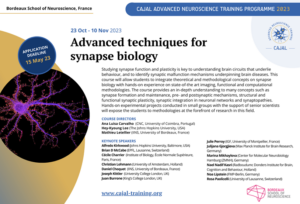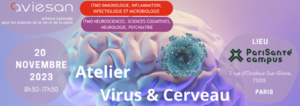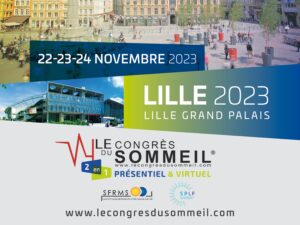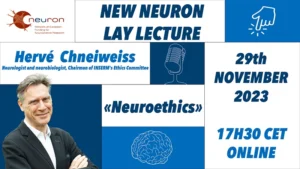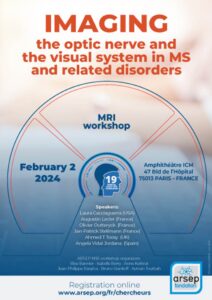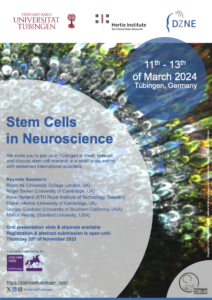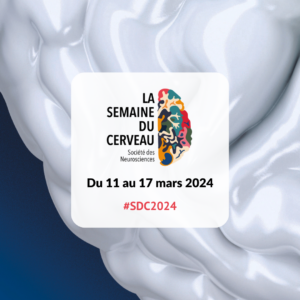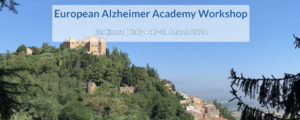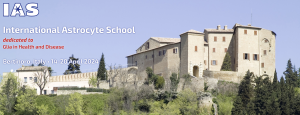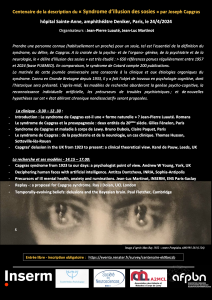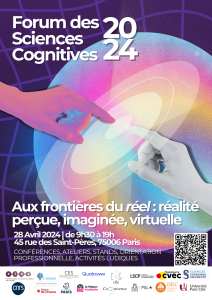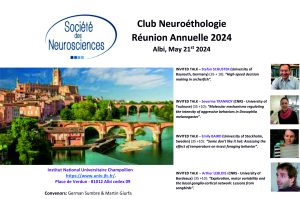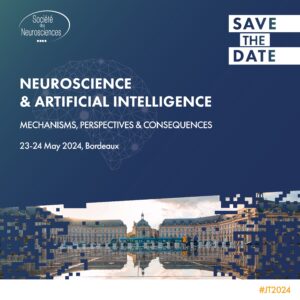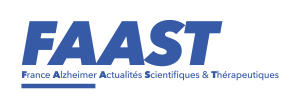Agenda
Semaine du Cerveau
Dans plus de 30 villes de France, les chercheurs vous invitent à partager leur enthousiasme pour « comprendre ce qui nous sert à comprendre », pour explorer cet organe fascinant qu’est notre cerveau et découvrir comment il fonctionne à tous les instants de notre vie quotidienne..
Nous vous proposons des débats, des ateliers, des conférences, des expositions et des spectacles.
Venez en famille,
venez nombreux,
venez nourrir votre cerveau !
Roland Salesse
Coordinateur National
Informations pratiques
Lieu
Dans plus de 30 ville de France
Public cible
Tout Public
12e Colloque – Montpellier 2015
Le 12e Colloque s’est déroulé au Corum de Montpellier.
Pour en savoir plus, se connecter sur le site internet du Colloque.
Informations pratiques
Lieu
Corum
Esplanade Charles de Gaulle
34000 Montpellier
Meeting du Club des Cellules Gliales et du Club Développement des Réseaux Neuronaux
Emerging concepts of glial cell functions in developing neural circuits
Renseignements :
Jean-Pierre Mothet
Gliotransmission & Synaptopathies
CRN2M UMR 7286 CNRS
Aix-Marseille University
51 Bd Pierre Dramard
13344 Marseille Cedex 15
Téléphone : 04 91 69 87 69
Courriel
Site internet
Informations pratiques
Ouverture
9:00 - 18:30
Lieu
Amphithéâtre d'Anatomie de la Faculté de Médecine,
2 rue de l’Ecole de Médecine
Montpellier
MNS Mediterranean Neuroscience Society
Mediterranean Neuroscience Society – 5th Meeting 2015
Santa Margherita di Pula – Sardinia, Italy
Online registration is available until may 31st.
Informations pratiques
Ouverture
8:00 - 17:30
Lieu
Santa Margherita di Pula - Sardinia, Italy
CAJAL Advanced Neuroscience Training Programme

The CAJAL Advanced Neuroscience Training Programme is a FENS and IBRO initiative in partnership with Bordeaux Neurocampus and the Champalimaud Foundation, which offers state-of-the-art hands-on training courses in neuroscience.
Upcoming CAJAL Courses
2015
- Behaviour and Neural Systems, 12 July-1 August 2015, Champalimaud Foundation
- Advanced Course in Computational Neuroscience, 9-29 August 2015, Champalimaud Foundation
- Bio-informatics for the Neuroscientist, 21 September-2 October, Bordeaux Neurocampus
- Advanced Techniques for Synapse Biology, 10-31 October 2015, Bordeaux Neurocampus
For enquiries, please contact: cajal@fens.org
GLISYN 2015 / International Bordeaux Neurocampus Brain Conference
The second edition of the International Bordeaux Neurocampus – Brain Conferences is scheduled from September 30 to October 2, 2015. “GliSyn” for “Astrocytes and microglia, key partners in synaptic transmission”, will focus on the role of two glial cells, astrocytes and microglia, in synaptic transmission.
Although astrocytes and microglia share common features, the astrocyte and microglia fields are growing independently. The goal of this conference is to gather scientists from both fields. To identify synergies, similarities and differences of these two types of glial cells, three sessions will be dedicated to their influence at the synapse during development, in adult physiology and in pathology.
GliSyn is organized by the Bordeaux Neurocampus Federation and the LabEx BRAIN. It is an event opened to the worldwide scientific community.
Connect to the conference website
Informations pratiques
Lieu
Institut d’Optique d'Aquitaine
Talence
Journée du Club Somato-sensoriel
Une nouvelle journée du Club Somato-sensoriel est organisée à l’ICM (Paris) le vendredi 13 novembre 2015.
L’inscription est gratuite mais obligatoire (le lien pour l’inscription est dans le document).
Informations pratiques
Lieu
Institut du Cerveau et de la Moelle Epinière
47 Boulevard de l'Hôpital
75013 Paris
20èmes Journées de la Société Française de Neuro-Vasculaire
La Société Française de Neuro-Vasculaire tiendra ses 20èmes Journées annuelles du 25 au 27 novembre 2015 à la Maison Internationale de Paris.
3 jours de conférences rythmées par des mises au point pédagogiques, des séances d’actualités thérapeutiques et des conférences.
Pour plus de renseignements, connectez-vous au site internet de la manifestation.
Informations pratiques
Lieu
Maison Internationale
17 Boulevard Jourdan
75014 Paris
Colloque Histoire des Neurosciences FENS-ICM
De l’histoire des neurosciences à la neuropsychiatrie du futur
De l’histoire des neurosciences à la neuropsychiatrie du futur : dans le cadre d’une collaboration entre le comité d’histoire de la FENS et l’ICM, amphithéâtre de l’ICM, Paris.
Organisation, ICM, FENS, Laboratoire Sphere, Club d’histoire des neurosciences : Yves Agid, Jean-Gaël Barbara, Laura Bossi, Céline Chérici, Jean-Claude Dupont.
Inscription gratuite mais obligatoire auprès de Nicole FOURN
Informations pratiques
Lieu
Amphithéâtre de l'Institut du Cerveau et de la Moelle épinière (ICM), Paris
FENS-Hertie Winter School 2016
Neurobiology of language and communication
Chaired by Prof. Peter Hagoort and Prof. Julia Fischer
Language is a higher cognitive function that is typically associated with human communication. The underlying neuronal systems have been largely unraveled, using e.g. fMRI. Studies over the past decades have shown that similar systems and functions are also in place for social communication in other species. This school will provide students with the latest insights into the topic, emphasizing similarities across species as well as pointing out which models are most suitable to address specific aspects.
Further information on FENS-Hertie Winter School
Informations pratiques
Lieu
Universitätszentrum Obergurgl
Austria
6th annual meeting of the GDR Multielectrode
Dear Colleagues,
It is our pleasure to announce that registration and abstract submissions are now open for the 6th annual meeting of the GDR Multielectrode that will be held in Grenoble (minischool) and Autrans (conference) on January 5-8, 2016.
You will find the preliminary program and all useful informations and instructions to register at the following address :
http://gdr2904grenoble.sciencesconf.org/
Please don’t hesitate to spread the word around you to make this event as rich as possible.
Several companies will present their products, and we particularly thank Blackrock Microsystems, Atlas Neuroengineering, and g.Tec for their strong support.
Important notes:
1) The language of the meeting is English
2) Deadline for registration and abstract submission is November 15, 2015
3) There are mostly double rooms and only extremely few single rooms available onsite for participant housing, so please choose a single room only if really necessary – thank you so much for your understanding!
4) We plan to organize several practical hands-on sessions in parallel for the second half of the minischool, please let us know which one you would be interested in.
5) This year, a special demo session will be held on Friday 8 afternoon, so you can submit an abstract for this session if you would like to demo a software or a hardware
6) Bus transportation will be available to go from Grenoble to Autrans and back. We plan to propose 2 buses to go back to Grenoble on Friday afternoon at two different times, please specify which one you would prefer.
7) Finally, we have planed a time for an outdoor activity on Thursday 6th afternoon (snow equipment provided). If we have snow, a biathlon initiative will be organized. Please let us know if you would be interested to participate, given that it will be free and will not require any special skiing skills, so everyone can participate!
Looking forward welcoming you in the Alps,
Best regards,
Yvert Blaise
Inserm Research Director
on behalf of the whole organizing committee.
Informations pratiques
Lieu
Grenoble-Autrans (France)
Neurogenesis Conference – Implications for Lifelong Development and Disease
Neural development is not restricted to embryonic or early postnatal stages but continuous throughout life in the mammalian brain. This conference will bring together leaders from diverse fields such as embryonic cortical development, adult neurogenesis, human imaging, and stem cell-based neural disease modelling to discuss recent advances in understanding the cellular and molecular mechanisms regulating neural stem cell activity, neuronal specification and functional significance of circuitries modified by the addition of new neurons. In addition, translational perspectives and implications for disease modelling will be covered.
Plenary Speakers
Prof. Gordon Fishell (NYU Langone Medical Center)
Prof. Fred H. Gage (Salk Institute)
Prof. Dr. Magdalena Götz (Munich Center for Neurosciences)
Prof. Rene Hen (Columbia University)
Prof. Rudolf Jaenisch (Whitehead Institute)
Prof. Dr. Sebastian Jessberger (University of Zurich)
Prof. Dr. Gerd Kempermann (CRTD Dresden)
Prof. Pierre-Marie Lledo (Institut Pasteur)
Prof. Guo-li Ming (Johns Hopkins University)
Prof. Alejandro Schinder (Fundación Instituto Leloir)
Prof. Ben Simons (University of Cambridge)
Prof. Hongjun Song (Johns Hopkins University)
Website: http://www.fusion-conferences.com/conference35.php
Informations pratiques
Lieu
Cancun, Mexico
XII Congress – International Society for Neuroethology
For further information on this meeting, please visit: http://www.icn2016.uy
Informations pratiques
Lieu
Radisson Montevideo Victoria Plaza Hotel
Montevideo, Uruguay
18th International Neuroscience Winter Conference
This conference has been established as a high-quality meeting on contemporary neuroscience for many years. For the 18th conference we aim at topping previous programs by inviting most distinguished neuroscientists as keynote speakers and select high-quality symposia. Sölden is an Alpine village about 1 hr. drive from the city of Innsbruck in Austria. The venue is a 5-star SPA hotel in one of the largest ski resorts in Austria with a restaurant carrying prestigious awards by international restaurant guides. Normally 120 – 150 participants, among them a large number of recognized scientists share the opportunity to meet colleagues in a relaxed and cosy atmosphere. During the day, time for skiing in the high altitude ski resort is perfectly possible even in April.
Conference Structure
Keynote Lectures
Symposia
Special Interest Sessions
Posters
Keynote lectures by invitation only. Symposia and special interest sessions are selected from complete applications according to the guidelines. All other registered participants may submit one abstract for poster presentation, which must be submitted before the abstract deadline. No short oral presentations will be scheduled.
Posters: Contributions from all fields of basic neuroscience are welcome; abstracts and registration to be submitted before the abstract deadline: Feb. 15th 2016
The conference will start on April 2nd 2016 in the late afternoon and end on April 6th 2016 in the afternoon.
Scientific Organizers
Alois Saria, chair (Austria)
Tobias Bonhoeffer (Germany)
Nils Brose (Germany)
Stephan Schwarzacher (Germany)
Organized by
Univ.Prof. Alois Saria
Brainplatform.net e.U.
Upcoming Deadlines
Abstracts: Feb.15, 2016
Online registration closes: Mar.21, 2016
Contact
Prof. Alois Saria (chair)
Medical University Innsbruck
Center of Psychiatry and Psychotherapy
Experimental Psychiatry Unit
Innrain 66a, 6020 Innsbruck, Austria
Phone: +43 512 504 23715 (secretariat)
E-mail
Visit the conference website
Informations pratiques
Lieu
Sölden, Austria
Channelopathy meeting Paris, June 15-17 Abstract submission extended
Abstract submission deadline is extended to April 6, 2016
If your research or clinical activity drives you into the field of CHANNELOPATHIES, don’t miss the unique international event « Channelopathy 2016 » that will take place in Paris (June 15-17, 2016): . World-renowned speakers, pioneers in the field of channelopathies, will present their latest discoveries (check the online program: Program)!
Because the meeting is limited to 180 attendees, registrations will be taken on a first-come first-served basis. So we strongly recommend to register as early as possible! (Online registration: Registration) Registration fees include the get-together party on Wednesday evening, as well as Thursday and Friday breaks and lunches.
Submit your abstract before April 6, 2016: The organizing committee will choose oral presentations from the abstracts in any of the seven sessions. There will be prizes for junior scientists presenting posters and oral presentations. Ask your students and fellows to submit their abstracts now! Submit online: Abstract.
The organizing committee is looking forward to meeting you in Paris for three days of exceptional ion channel science!
Key dates at-a-glance:
Abstract submission deadline: April 6, 2016
Early-bird registration deadline: April 30, 2016
Late registration deadline: June 13, 2016
Meeting: June 15-17, 2016
Conference “The Neurobiology of Mental Health”
This Conference aims at bringing together basic and translational research leaders, to foster a conversation on how research on neurobiology and psychiatry can synergize to improve the understanding and treatment of psychiatric diseases.
The scientific program is structured around the concept of research domains, highlighting the neurobiology of major cognitive functions and how their dysfunction impacts on disease. Each of five half-day sessions will focus on one major cognitive function through four main talks. In addition, each session will include a keynote lecture by a psychiatrist. A few short talks selected from the abstracts submitted by participants will complete each session.
The two-and-half day conference will be held at Campus Biotech in Geneva.
The anticipated size is about 200 participants.
Informations pratiques
Lieu
Geneva, Switzerland
International Astrocyte School (IAS 2016)
Call for Applications
Dear Colleague,
We would like to remind you that applications for the International Astrocyte School will close in one month’s time: 8 January 2016.
The School is aimed at all those who are attracted by the most intriguing hypotheses on the role of astrocytes in brain function and wish to learn how to best approach these problems. Now in its sixth edition, the School continues to focus on disseminating state-of-the-art knowledge and is especially targeted at young scientists beginning their careers in this field. Senior scientists wishing to refresh their glial background are also encouraged to apply.
In 2016, in Bertinoro (Italy), top-level researchers and 35 selected students will come together for an intense one-week course, with particular emphasis on Gliotransmission in health and disease. Applications are open until 8 January 2016.
Additional information is available through the School’s website.
On behalf of the School’s Executive Committee,
Organising Secretariat
Informations pratiques
Lieu
Bertinoro, Italy
Conférence EMBO – Neural control of metabolism and eating behavior
Energy homeostasis, i.e. the regulation of food intake and energy expenditure is essential for animal survival. The failure in regulating these important physiological processes has major implications on human health, giving rise to disorders such as obesity and anorexia. A variety of research approaches has been used to identify molecular and neural networks underlying food intake and metabolic homeostasis. These approaches include human genetics to reveal the heritable basis of obesity, optogenetics and physiology in rodents to identify neural circuits that regulate eating behaviours and genetic screens in invertebrate model organism to investigate neuromodulatory pathways for metabolism and food intake.
The main goal of this EMBO Workshop is to bring together expertise from these different disciplines to discuss recent developments and landmark discoveries. We aim to foster a platform that will stimulate discussions between researchers and allow interdisciplinary exchange of ideas and research tools.
The session topics will cover neural control of weight homeostasis, nutrient sensing by the nervous system and molecular pathways for metabolic control and eating behaviour. We will give special attention to young scientists, such as students, postdocs and junior group leaders by creating a stimulating scientific atmosphere with talks, discussions, poster sessions and social events.
Registration fees:
Student: 320 EUR
Academic: 420 EUR
Industry: 520 EUR
For further information, please connect to the meeting website.
Informations pratiques
Lieu
Cascais, Portugal
Optical Imaging and Electrophysiological Recording in Neuroscience
ENP Ecole des Neurosciences Paris -IDF
Federation of Neurosciences, Université Paris Descartes
IBENS, Ecole Normale Supérieure
25 Lectures, 7 days practical work and demonstrations
Practicals and demonstrations fee 1300 Euro with accommodation
500 Euro without accommodation.
Lecture program open without charge (requires registration)
Deadline for applications: 15 February 2016
Informations pratiques
Lieu
Paris
ISDN2016
21st Biennial Meeting of the International Society for Developmental Neuroscience
From stem cells to behaviour in the normal and diseased nervous system
Join us in Antibes, along the beautiful Mediterranean coast of Southern France, for an exciting and diverse scientific programme that will provide an opportunity to keep you informed about the most recent advances in fundamental and disease-focused developmental neuroscience.
Organised by the International Society for Developmental Neuroscience (ISDN), this meeting will include a balance of topics on human and animal models of neural development and disease:
- Pluripotent stem cell approaches in the normal and diseased brain
- Stem cells and psychiatric disorders
- Evolution of the mammalian cortex
- Autophagy in neurodegenerative diseases
- Generation of cell diversity in the developing brain
- Wnt signalling in neurodevelopment
- Hypothalamic cell fate specification and function
- From circuits to behaviour
- Control of neuronal morphology, from genes to activity
- Sensorimotor assembly and integration
- The role of microRNAs in neurogenesis
- Neurobiology of stress
- Sleep evolution in childhood and brain development
- Astrocyte development and function
As in previous years, ISDN will provide a number of travel and poster awards for trainees.
For further information, please connect to the meeting website.
Informations pratiques
Lieu
Palais des Congres d’Antibes
Juan les Pins, France
6th annual Art of Neuroscience competition
The 6th annual Art of Neuroscience competition is now open for submissions.
This is an international competition open to scientists and artists worldwide. We are looking for striking visualizations related to the field of Neuroscience in its broadest sense. These can be images or videos representing actual neural data or tissue, but also more abstract illustrations that are in some way related to neuroscience.
The goal is two-fold: make the research from neuroscience labs more tangible and share something of high aesthetic value, while at the same time asking scientists to evaluate their own work from a different perspective.
The deadline for this year’s competition is May 15th, 2016. Winners will be announced at the FENS forum in Copenhagen this July.
We will award €1000 to the winner and €250 each to four honorable mentions.
For more information please visit the website
For any question, please send us an email
1St European Drug Discovery for Neurodegeneration Conference
Join the Alzheimer’s Drug Discovery Foundation as we bring our popular drug discovery 101 conference to Europe. Attendees will learn what it takes to translate basic research into novel therapies and will leave with resources to address the challenges in developing a drug. The program includes case studies and presentations from European biopharmaceutical companies, including Actelion Pharmaceuticals, Oryzon Genomics, Asceneuron, and Axxam SpA.
Informations pratiques
Lieu
Danubius Health Spa Resort, Budapest, Hungary
Colloque 2016 du GDR NeuroMem
Le Groupement de Recherche NeuroMem (GDR 2905 – Neurosciences de la Mémoire) organise son prochain colloque du 17 au 20 mai 2016 à Lacanau dans la région bordelaise. Le programme des colloques bi-annuels comporte 5 à 6 symposia thématiques, conférences plénières, séances de data blitz et de posters.
Le GDR a ouvert un appel à propositions de symposium. Pour tout renseignement, contactez Serge Laroche.
Le programme final ainsi que le formulaire d’inscription et les informations utiles seront disponibles dans les tous prochains mois.
Renseignements:
Serge Laroche
Institut des Neurosciences Paris-Saclay
UMR 9197, CNRS
Universite Paris Sud
91405 Orsay, France
Informations pratiques
Lieu
Lacanau
Sixth International Symposium on Biology of Decision-Making
The Sixth International Symposium on Biology of Decision Making will take place on May 25-27, 2016 at the Institut du Cerveau et de la Moelle Epinière, Paris, France, with a satellite day at Ecole Normale Supérieure, Paris, France. The objective of this three day symposium is to gather people from different research fields with different approaches (economics, ethology, psychiatry, neural and computational approaches) to decision-making.
The symposium will be a single-track, will last for 3 days and will include 6 sessions:
(#1) Cost of control, fatigue and decision-making;
(#2) Emotion, stress and decision-making;
(#3) Dynamics of decision-making;
(#4) Decision-making across primates;
(#5) Confidence, mood and decision-making;
(#6) Learning, memory and decision-making.
CONFIRMED SPEAKERS:
Sébastien Bouret (CNRS – ICM, France)
Michael Chee (Duke-NUS Medical School, Singapore)
Anastasia Christakou (University of Reading, UK)
Anne Churchland (Cold Spring Harbor Laboratory, USA)
Stanislas Dehaene (Collège de France – INSERM – CEA, France)
Adele Diederich (Jacobs University, Germany)
Tobias H. Donner (University of Amsterdam, The Netherlands)
Valérie Dufour (CNRS, France)
Shelly Flagel (University of Michigan, USA)
Steve Fleming (University College London, UK)
Birte U. Forstmann (University of Amsterdam, The Netherlands)
Cendri Hutcherson (University of Toronto, Canada)
Veronika Job (University of Zurich, Switzerland)
Mehdi Khamassi (CNRS – Université Pierre et Marie Curie, France)
Pascal Mamassian (Ecole Normale Supérieure – CNRS, France)
Florent Meyniel (Collège de France – INSERM – CEA, France)
Randall O’Reilly (University of Colorado Boulder, USA)
Mathias Pessiglione (INSERM – ICM, France)
Jonathan Pillow (Princeton University, USA)
Timothy J. Pleskac (Max Planck Institute, Germany)
Alexandra G. Rosati (Harvard University, USA)
Robb Rutledge (University College London, UK)
Jérôme Sallet (University of Oxford, UK)
Carmen Sandi (Ecole Polytechnique Fédérale de Lausanne, Switzerland)
Daniela Schiller (Mount Sinaï University, USA)
Amitai Shenhav (Princeton University, USA)
Mark Sheskin (Yale University, USA)
Hiromu Tanimoto (Tohoku University, Japan)
Angela J. Yu (University of California San Diego, USA)
Alexandre Zenon (Université Catholique de Louvain, Belgium)
IMPORTANT DATES:
April 30, 2016 Deadline for Poster Submission
May 7, 2016 Notification of Poster Acceptance
May 15, 2016 Deadline for Registration
May 25-27, 2016 Symposium
ORGANIZING COMMITTEE:
Thomas Boraud (CNRS – IMN, Bordeaux, France)
Sacha Bourgeois-Gironde (La Sorbonne, Paris, France)
Kenji Doya (OIST, Okinawa, Japan)
Mehdi Khamassi (CNRS – UPMC, Paris, France)
Etienne Koechlin (CNRS – ENS, Paris, France)
Mathias Pessiglione (ICM – INSERM, Paris, France)
Website, registration, poster submission and detailed program.
Contact: sbdm2016@isir.upmc.fr / sbdm2016-registration@isir.upmc.fr
Informations pratiques
Lieu
Institut du Cerveau et de la Moelle Epinière, Hôpital La Pitié Salpêtrière
& Ecole Normale Supérieure
& Université Pierre et Marie Curie
Paris, France
Cours FreeSurfer
Cours consacré au logiciel FreeSurfer
Co-organisé par le Martinos Center et l’Unité Imagerie et Cerveau INSERM U930 – Université François-Rabelais de Tours
26-27 mai 2016 Tours
Ce cours est co-organisé par l’Unité Imagerie et Cerveau Inserm U930 et le Martinos Center for Biomedical Imaging de Charlestown, MA (USA) qui développe ce logiciel.
La formation, limitée à 64 personnes, couvrira l’analyse surfacique de données individuelles et en groupe ainsi que l’utilisation de FreeSurfer pour l’analyse de données tractographiques.
Elle se déroulera à l’Ecole Polytechnique de l’Université de Tours et fera suite aux 2e Journées Thématiques de la Société des Neurosciences, organisées à Tours les 24 et 25 mai.
Un site web fournit toutes les informations nécessaires aux personnes intéressées.
Les inscriptions sont dés à présent ouverte sur le site.
Informations pratiques
Lieu
Ecole Polytechnique de l'Université de Tours, Tours.
23 rd Meeting of the French Glial Cell Club
Emerging Concepts in Glial Cell Research
Organised by
Le Club des Cellules Gliales
Contacts :
Informations pratiques
Lieu
Hôtel Club le Vacanciel, Carry-le-Rouet
Watching at the « D » side: D-amino acids and their significance in neurobiology
Lake Como School of Advanced Studies, 5-9 June 2016
Amino acids are extremely important molecules in Nature by serving as metabolic intermediates or as building units for proteins synthesis. All common amino acids, except for glycine, exhibit a chiral center resulting theoretically in the occurrence of L- and D-amino acids. Despite almost identical chemical and physical properties, in the past it was assumed that only L-amino acids were selected during evolution for polypeptides and proteins formation. The selection of the L-form was generally thought to result from gambling. The consequent homochirality was considered to be essential to biology, as it dictates the spatial architecture of biological polymer and therefore plays a major role in enzymatic specificity and structural interaction: it generated distinct enzyme/receptors to cope with multiple isomers which would pose energetic burdens incompatible with life.
Since plants and bacteria were known to synthesize D-amino acids, the free D-isomers found in higher animals were assumed to be essentially the by-products of dietary consumption. Therefore, the presence of high levels of enzymes evolved specifically to catalyze the stereoselective degradation of D-amino acids (e.g., FAD-dependent D-amino acid oxidase and D-aspartate acid oxidase) and their significance in the brain, has long been a puzzling issue. Thank to the development of more sensitive analytical techniques, neurobiologists have now stepped “through the looking-glass” and several D-amino acids were detected in mammalian tissues and fluids. In particular, D-aspartate and D-serine have been shown to be endogenously synthesized by serine racemase and aspartate racemase, respectively, and to serve as important signaling molecules in the brain and endocrine glands.
Emerging unanticipated roles for the D-aspartate and D-serine challenged fundamental dogma about cell-to-cell signaling. They both appeared to fulfill the criteria of N-methyl-D-aspartate (NMDA) receptor ligands (as a agonist and coagonist, respectively), regulating the receptor functionality. NMDA subtype of glutamate receptors mediates excitatory neurotransmission and cognitive functions, hence insight into D-serine and D-aspartate metabolism is relevant for physiological NMDA receptor activation and for all the disorders associated with the receptor dysfunction, such as schizophrenia, ischemia, epilepsy, chronic pain and neurodegenerative disorders. In particular, abnormal alterations in the cellular and extracellular concentrations of these two D-amino acids might be related to the pathogenesis of the aforementioned diseases. Accordingly, the detection of D-serine and D-aspartate in the brain and the elucidation of the mechanisms involved in the maintenance of their physiological levels (which might be up- or down-regulated in pathological condition) may not only help in the diagnostic process, but also provide novel therapeutic target.
We are just at the beginning to disclose the importance of this novel class of brain messengers that will soon include other candidates. The proposed Summer School will provide an overview of the current status of our understanding on D-amino acid neurobiology, collecting contributions from leaders in the field.
Invited speakers
BALU Darrick (Boston, USA)
BILLARD Jean-Marie (Paris, France)
BRUNO Stefano (Parma, Italy)
DI GIORGIO Annabella (Foggia, Italy)
ERRICO Francesco (Naples, Italy)
HERESCO-LEVY Uriel (Jerusalem, Israel)
MOLLA Gianluca (Varese, Italy)
MOTHET Jean-Pierre (Marseille, France)
POLLEGIONI Loredano (Varese, Italy)
SACCHI Silvia (Varese, Italy)
SASABE Jumpei (Tokyo, Japan)
SWEEDLER Jonathan (Urbana, USA)
USIELLO Alessandro (Naples, Italy)
WOLOSKER Herman (Haifa, Israel)
For further information, please visit the website.
Informations pratiques
Lieu
Villa del Grumello
Via per Cernobbio 11
Como, Italy
Optical imaging of brain connectivity : from synapses to networks in action
Chairperson: Christophe MULLE
CNRS UMR 5297, Université de Bordeaux, 146, rue Léo-Saignat, 33077 Bordeaux cedex, France
Phone: +33 (0) 5 57 57 40 80 – Fax: +33 33 (0) 5 57 57 40 82
Email
Vice-chairperson: Frijhof HELMCHEN
Brain Research Institute, University of Zurich, Winterthurerstrasse 190, CH-8057 Zürich, Switzerland
Phone: +41 44 63 53 340 – Fax: +41 44 63 53 303
Email
Discovering how neural circuits process information requires measurement of neural activity on many different scales, ranging from single synapses to large assemblies of neurons, best in the brain of behaving animals. The study of brain function at the microscopic and mesoscopic scale has been revolutionized by novel approaches combining the development of molecular tools and gene transfer methods with newly designed instruments that use light to visualize and manipulate the activity of synapses, neural cells and neural ensembles. This international symposium will bring together world experts to present their latest discoveries and technological developments regarding brain connectivity, focusing on studies of synaptic, neuronal and network structure and function using microscopic imaging, connectomics, and optogenetics.
Improved technologies in the field of neuroscience are particularly important to tackle the great challenges in mapping the connections and interactions within and between highly complex neuronal networks. For example, super-resolution light microscopy now enables the visualization of individual molecules within a synapse; novel 3D imaging approaches enable the mapping of synaptic inputs onto dendritic trees and signalling within neuronal populations to be ‘read out’ at millisecond time scales; new viral tracing methods and novel instruments based on automated electron microscopy, optical microscopy and image reconstruction methods assist comprehensive connectomic approaches towards full reconstruction and analysis of synaptic circuits in 3D; furthermore, fast two-photon imaging makes it possible to monitor neural network activity deep in tissue in behaving animals; and recent advances in optogenetic and pharmacogenetic methods are complementing structural and functional imaging by allowing specific manipulations of the activity of particular cell types or neural pathways.
These multidisciplinary challenges and many others will be addressed at this meeting. It will be a great opportunity to foster new collaborations to undertake novel challenges that will push further our ability to detect, measure, manipulate and follow the intricate components of neuronal and network function.
Invited speakers
(provisional titles)
BAILLY-CUIF Laure (Gif sur Yvette, France)
Imaging neural progenitor cells dynamics during behavior
BITO Haruhiko (Tokyo, Japan)
Labeling, monitoring and manipulating active ensembles
CHEDOTAL Alain (Paris, France)
Development of new imaging methods to study the organization of sensory systems
CHOQUET Daniel (Bordeaux, France)
Nanoscopic organization of synapses
COSSART Rosa (Marseille, France)
Imaging ripple events in the awake mouse hippocampus
EMILIANI Valentina (Paris, France)
Two-photon optogenetics by spatio-temporal shaping of ultrafast pulse
FRICK Andreas (Bordeaux, France)
Neuronal circuits probed with recombinant rabies virus technology
GRADINARU Viviana (Pasadena, USA)
Brain control with light; development and application to mental disorders
HELMCHEN Fritjof (Zürich, Switzerland)
Imaging cortical circuit dynamics in behaving mice
HOFER Sonja (Bazel, Switzerland)
Imaging function and structure of the visual system
HOLTMAAT Anthony (Geneva, Switzerland)
Neural circuits in the mammalian neocortex
ISACOFF Ehud Y. (Berkeley, USA)
Design of novel probes for the optical detection and manipulation of neuronal signaling
KIM Jinny (Seoul, South Corea)
mGRASP for mapping connectivity at multiple scales
KONNERTH Arthur (Tum, Germany)
Impaired neuronal network function in mouse models of Alzheimer’s disease
MARGRIE Troy (London, United Kingdom)
Sensory processing in single cells, circuits and behavior
MONYER Hannah (Heidelberg, Germany)
Connectivity in the entorhinal cortex
NÄGERL Valentin (Bordeaux, France)
Super-resolution imaging of spine plasticity
NEVIDI Elly (Cambridge, USA)
Visualization of synapse assembly and disassembly in vivo: multispectral tracking of distinct circuit elements
OERTNER Thomas (London, United Kingdom)
Controlling the strength and lifetime of synapses with light
PERROY Julie (Montpellier, France)
Imaging plasticity at synapses
RUSAKOV Dmitri (London,United Kingdom)
Mapping nanomolar calcium landscapes inside neurons and astroglia with FLIM
SILVER Angus (London, United Kingdom)
Investigating the role of temporal coding using high speed 3D 2-photon imaging
SNITZER Mark (Stanford, USA)
Development of fiber-optic fluorescence microendoscopy for studies of learning and memory
STERNSON Scott (Ashburn, USA)
Neural processes that underlie hunger studied with reverse engineering of neural circuits
WILLIG Katrin (Göttingen, Germany)
In vivo STED microscopy of the living mouse brain
WYART Claire (Paris, France)
Investigation of a novel sensory interface relaying information from the cerebrospinal fluid to motor circuits
ZENG Hongkui (Seattle, USA)
Large scale analysis of mouse brain connectivity
Deadline for application: March 7, 2016
Registration fee (including board and lodging)
430 € for PhD students
650 € for other participants
Application for registration
The total number of participants is limited to 115 and all participants are expected to attend for the whole duration of the conference. Selection is made on the basis of the affinity of potential participants with the topics of the conference. Scientists and PhD Students interested in the meeting should send:
– their curriculum vitae
– the list of their main publications for the 3 last years
– the abstract of their presentation
to the Chairperson of the conference (christophe.mulle@u-bordeaux.fr) before the deadline. After it, the organizers will select the participants. Except in some particular cases approved by the Chairperson, it is recommended that all selected participants present their work during the conference, either in poster form or by a brief in- session talk.The organizers choose the form in which the presentations are made. Up to 6 participants will be selected, based on their abstracts, for a short talk. No payment will be sent with application. Information on how and when to pay will be mailed in due time to those selected.
Informations pratiques
Lieu
Roscoff (Brittany), France
Channelopathy meeting Paris, June 15 – 17
If your research or clinical activity drives you into the field of CHANNELOPATHIES, don’t miss the unique international event « Channelopathy 2016 » that will take place in Paris: World-renowned speakers, pioneers in the field of channelopathies, will present their latest discoveries (check the online program: Program)!
Because the meeting is limited to 180 attendees, registrations will be taken on a first-come first-served basis. So we strongly recommend to register as early as possible! (Online registration: Registration) Registration fees include the get-together party on Wednesday evening, as well as Thursday and Friday breaks and lunches.
Key dates at-a-glance:
Early-bird registration deadline: April 30, 2016
Late registration deadline: June 13, 2016
Meeting: June 15-17, 2016
Informations pratiques
Lieu
Paris
Brain Connectivity Workshop 2016, Marseille (France)
We are happy to announce the 15th edition of the Brain Connectivity Workshop (BCW) to take place in Marseille from the 22nd to the 24th of June 2016.
The Brain Connectivity Workshop (BCW) is a well-established workshop series, which has been held annually in Europe, USA, Australia and Asia for the last 14 years. BCW is an official satellite of the annual meeting of OHBM, which is held in Geneva, Switzerland in 2016. BCW attracts every year a public of 100-200 participants working in cognitive, computational and clinical neurosciences. The discussions are centered on all themes around brain connectivity including structural and functional imaging, modeling, brain function and clinics. BCW is highly influential in the field due to the traditionally high quality of speakers and a long track record of innovation. For instance, both, the Connectome and The Virtual Brain have been born within the BCW community.
The typical BCW format —a first educational day of lectures held by international authorities in their fields, followed by two days of shorter talks with ample time for discussion provides a unique forum for creativity, controversy and brainstorming. BCW 2016, introduced by a first day of tutorials by experts in their field, will feature focused sessions on themes such as perturbing the brain, mapping the brain, and brain dynamics in function (cognition) and dysfunction (epilepsy).
Registration will open soon.
NB: Please note that European Cup of Football will be held in France during this period and hotels are going to be booked fast!
Confirmed educational lecturers (day 1) and workshop speakers (days 2-3) include:
• Fabrice Bartolomei (Aix-Marseille University, Marseille, France)
• Michael Breakspear (QIMR, Brisbane, Australia)
• Vince Calhoun (University Of New Mexico, Albuquerque, NM)
• Karl Friston (UCL, London, UK)
• Jorge Gonzalez-Martinez (Cleveland Clinic, Cleveland, OH)
• Marc Goodfellow (University of Exeter, Exeter, UK)
• Charles Gray (Montana State University, Bozeman, MT)
• Claudius Gros (Goethe University, Frankfurt am Main, Germany)
• Sean Hill (EPFL, Lausanne, Switzerland)
• Martin Hoffman-Apitius (Fraunhofer Institute SCAI, St Augustin, Germany)
• Esther Krook-Magnuson (University of Minnesota, Minneapolis, MN)
• Pierre Luppi (Lyon Neuroscience Research Center, Lyon, France)
• Randy McIntosh (Baycrest Research Center, Toronto, ON)
• Lionel Naccache (ICM, Paris, France)
• Ivan Soltesz (UC Irvine, CA)
• Olaf Sporns (Indiana University, Bloomington, IN)
• William Stacey (University of Michigan, Ann Arbor, MI)
• Gregor Thut (University of Glasgow, Glasgow, UK)
• Stephan Van Gils (University of Twente, Ae Enschede, The Netherlands)
• Michael Wibral (Goethe University, Frankfurt am Main, Germany)
A special evening lecture will be delivered by Patrick Chauvel (Aix-Marseille University, Marseille, France). A detailed program is coming soon.
Organizing committee
Viktor Jirsa, Chair (INS, Aix-Marseille University, UMR 1106 INSERM)
Demian Battaglia, Christian Bénar, Mireille Bonnard, Monique Esclapez (INS, Aix-Marseille University)
Andrea Brovelli (INT, Aix-Marseille University),
Maxime Guye (CRMBM, Aix-Marseille University, UMR 7339 CNRS & APHM)
Ingo Bojak (University of Reading, UK).
An event sponsored by:
University Aix-Marseille, Brain Products, Bionics, Springer EPJ Nonlinear Biomedical Physics Journal, Codebox, Institute of System Neuroscience Inserm, Institute of Neuroscience Timone, Center for Magnetic Resonance in Biology and Medicine, Mediterranean Society of Neuroscience (IBRO member).
Informations pratiques
Lieu
Marseille
Circadian clocks and metabolic health – from basic science to clinical implications
Organizer: Etienne Challet
Location: Collège Doctoral Européen
Address: 46 Boulevard de la Victoire, 67000 Strasbourg, France
Informations pratiques
Ouverture
23/06/2016 8:30-18:00
24/06/2016 8:30- 13:00
Lieu
Collège Doctoral Européen
46 Boulevard de la Victoire, 67000 Strasbourg, France
Moyens de paiement
Inscription gratuite mais obligatoire sur le site de Neurex.
Labex Bio-Psy – Cours « Frontiers in Biological Psychiatry »
Le Labex Bio-Psy organise, en collaboration avec l’Institut Pasteur, un Cours d’une semaine, du 27 Juin au 1er juillet prochain, intitulé « Frontiers in Biological Psychiatry ».
Le Cours est destiné aux jeunes chercheurs et cliniciens et réunit des experts internationaux en psychiatrie clinique ainsi que des neurobiologistes, généticiens et biologistes du développement.
La date limite d’inscription est le 2 Mai 2016.
Pour toute information, consulter le site internet.
Informations pratiques
Lieu
Institut Pasteur
25/28 rue du Dr Roux - 75724 Paris Cedex 15
et
Centre de recherche Neurospin
Centre d’Etudes de Saclay - 91191 Gif-sur-Yvette
Ecole thématique – Transports Ioniques
Organisée sous la tutelle du CNRS par le laboratoire STIM de l’université de Poitiers.
L’école se déroulera à Poitiers du 28 juin 2016 au 1 juillet 2016 sur une durée totale de 3,5 jours.
Trois grands axes seront développés d’un point de vue théorique et pratique au cours de cette période :
Axe 1 : «le canal dans son environnement membranaire : Courants ioniques, flux et criblage»
Axe 2 : «le canal dans son environnement cellulaire : marquage, localisation et tri cellulaire»
Axe 3 : «le canal et ses impacts : motilité/mobilité cellulaire et communication intercellulaire»
Pour toute question complémentaire relative au fonctionnement de notre école, à sa logistique ou à son contenu, contacter le Pr Jean-François Faivre (ou 05 49 45 36 72).
Informations pratiques
Lieu
Poitiers
Laboratoire STIM
European Population Neuroscience symposium
We would like to alert you to the European Population Neuroscience symposium, a Satellite Event of FENS Forum 2016. The symposium is organized by the Danish Research Centre for Magnetic Resonance (DRCMR) in collaboration with CreoDK and the European Brain Council (EBC).
Date and venue: July 1st 2016, 8.30 AM-4.30 PM. DGI-byen, Tietgensgade 65, 1704 Copenhagen V, Denmark.
Participation is free of charge, but registration is mandatory. Please visit our FENS Forum satellite symposium webpage for the program and registration.
Of note, there is a limited amount of seats, so please register in good time!!
The symposium addresses key scientific challenges of a European Population Neuroscience Strategy. The main goal of such a strategy is to model the often subtle but decisive interplay of multidimensional factors across the life span in large European cohorts representative of general populations, thereby capturing differences in e.g. genetic makeup, age and sex distributions, social-economic and health status, and culture, in order to predict physical (i.e. body) and mental and cognitive (i.e. brain) health and illness, resilience and potential.
Central topics include: (1) the relationship between genes (Genome) and exposures (Envirome; e.g. body and environment) shaping brain outcomes (Phenome; e.g. cognition, behavior and structural and functional in vivo brain measures), (2) strategies to ensure that cohorts are representative of populations, (3) mobile sensing technologies for an ecological sampling of physical and environmental variables, (4) large-scale infrastructures for integrating, sharing and exploiting huge amounts of prospective multidimensional data in a secure manner, and (5) analytical and modeling strategies and approaches to analyze and exploit complex multimodal, multidimensional and multisite prospective data.
The Organizing Committee: Hartwig Siebner (DRCMR), Tomas Paus (Rotman Research Institute and University of Toronto, Toronto, Canada) and Thomas Werge (Mental Health Centre Sct. Hans, Capital Region of Denmark, Denmark)
Informations pratiques
Lieu
Copenhagen, Denmark
Molecular Regulation of Depressive Disorders; from Mouse to Human
Dear colleagues,
You are cordially invited to attend the satellite event « Molecular Regulation of Depressive Disorders; from Mouse to Human ». July 1st, Bella Sky Hotel, Comwell Conference Center – Room 173, (next door to COPENHAGEN). Starts 14:00.
Anxiety and depression are complex disorders involving multiple brain regions. They account for the second largest number of years lost due to disability (YLD) worldwide. Yet, they are widely undiagnosed and untreated due to lack of effective therapies or resources. r’BIRTH is a Marie Curie ITN consortium that studies impaired adaptive responses that may contribute to depressive and anxiety-related behavior.
During this satellite event, work will be presented from consortium groups studying molecular mechanism in cell cultures and mice, and clinical biomarker imaging (MRI/MRS).
The program can be found here.
Please register soon as places are limited.
We would like to thank the European Commission (FP7), Lundbeck, ApDia and Immunovia for financial support.
Warmly welcome!
Eleanor Coffey, r’BIRTH Coordinator
Research Director, Turku Centre for Biotechnology
University of Turku and Åbo Akademi University
Turku FIN-20520, Finland
Informations pratiques
Ouverture
As from 14:00.
Lieu
Bella Sky Hotel, Comwell Conference Center - Room 173
Center Boulevard 5
Copenhagen
10th FENS Forum of Neuroscience, Copenhagen, Denmark
The FENS Forum is Europe’s preeminent neuroscience meeting: where European Neuroscience Meets the World. By uniting thousands of participants, the FENS Forum 2016 will facilitate and promote the exchange of knowledge and neuroscience research. Molecules and photons, neurodegenerative diseases and stem cells are only a few of the key topics to be covered by a top-level scientific programme, alongside lively networking and social events. The FENS Forum is a meeting point for the world’s top experts, mid-career scientists, post-docs and students.
We look forward to welcoming you to Copenhagen, the capital of Northern Europe, on July 2-6, 2016 for an engaging scientific experience among the world’s top neuroscientists.
For further information, connect to the meeting website.
Informations pratiques
Lieu
Bella Center
Center Boulevard 5
DK-2300 Copenhagen S
Denmark
11th European Congress of Neuropathology
The European Confederation of Neuropathological Societies (Euro-CNS) and the French Society of Neuropathology warmly invite you to attend the 11th European Congress of Neuropathology in Bordeaux (France), the full of light and utterly bewitching capital of wine. As a UNESCO World Heritage Site, close to the famous vineyards and the Atlantic Ocean, Bordeaux offers superb touristic opportunities.
The meeting will be held in the Cité Mondiale Convention Center conveniently located on the left bank of the Garonne river in the historic heart of the wine-making hub.
The scientific program will cover many aspects of neuropathology and will interact with other areas of neuroscience. Leading neuropathologists and neuroscientists will be invited for plenary lectures. Parallel sessions of symposia and workshops will provide key updates and debate on recent progress in diagnostic neuropathological practice and in other interactive scientific approaches. Abstracts submitted to the Congress will be selected for inclusion in these sessions where relevant. Several sessions on different topics will also permit a large selection of posters to be presented on platform, and a two hours interactive slide seminar will be organized.
A wide range of sponsorship opportunities are available, which have been designed to ensure that companies achieve their objectives by participating in the Congress.
Note that travel grants are available.
Abstract submission deadline for oral and poster presentation is fixed April 1st, 2016
Contact: ECNP 2016 Congress Secretariat
Please find all informations on the dedicated website
Informations pratiques
Lieu
Cité Mondiale Convention Center - Bordeaux, France
3rd Eurogenesis Meeting
EUROGENESIS 3rd Conference will end the celebrations of the 50th anniversary of adult neurogenesis discovery by gathering worldwide leaders of this exciting field . The findings of neural stem cells in the adult mammalian central nervous system changed our perception of brain plasticity and function. For five decades, research on adult neurogenesis and neural stem cells has therefore been leading to an ever expanding field of discoveries that have influenced many domains of neuroscience and developmental biology.
Hosted in the historic heart of Bordeaux, the full of light and bewitching capital of wine, EUROGENESIS 3rd conference will cover several aspects of adult neurogenesis function and its related pathologies. It aims to highlight the benefits of interdisciplinary research for gathering innovative knowledge in adult neural stem cells biology, and will promote new opportunities for cross-border disciplines interactions.
Local organization: Nora Abrous – Sophie Tronel – Florence Béranger
For further information, please visit the conference website
Informations pratiques
Lieu
Université de Bordeaux
Pôle juridique et judiciaire
35 Place Pey Berland
33000 Bordeaux
Channelopathy Meeting 2016 – Paris
Le congrès « Channelopathy Meeting, Paris 2016 » a pour but de présenter les dernières découvertes fondamentales et transversales sur les canalopathies. Le programme complet est disponible sur le site. Le congrès se tiendra au sein de l’institut du cerveau et de la moelle épinière (ICM), Campus Pitié-Salpétrière. N’attendez pas pour vous inscrire, le nombre de participants étant limité à 180
Informations pratiques
Lieu
Paris
6th Motivation and Cognitive Control (MCC) Symposium
Humans often engage in a complex repertoire of behaviors geared towards far removed goals. We must override reflexive and habitual reactions in order to orchestrate behavior in accordance with our intentions. This overriding of automatic response tendencies can be implemented via cognitive and motivational systems. Importantly, a number of neurological and psychiatric disorders are characterized specifically by a breakdown in these mechanisms. Accordingly, a wide range of researchers around the world and in a number of different fields are concerned with understanding the neural mechanisms underlying motivational and cognitive control.
This meeting will be the 6th in a series of highly successful meetings that began with a meeting in Jena organized by Michael Coles and Wolfgang Miltner in 2000 and continued with meetings in Dortmund (Michael Falkenstein and Markus Ullsperger), Amsterdam (Sander Nieuwenhuis, Rogier Mars and Richard Ridderinkhof) and Oxford (Rogier Mars, Jérôme Sallet, MaryAnn Noonan) and Paris (Sebastien Bouret, Mark Laubach, Jerome Sallet).
The goal of the present one is to bring together researchers from a wider range of research backgrounds. Therefore we aim to gather experimental psychologists, neurophysiologists, neurobiologists, and computational neuroscientists, who will discuss both their latest research results and their research techniques. Bringing together this diverse group of researchers will allow them to gain a better understanding of each other’s, and subsequently their own work. Previous meetings have shown that this format can lead to highly productive collaborations.
Travel Awards
A limited number of Travel Awards for students are available. To be considered for a Travel Award, you must be a student and submit a Poster Abstract including a short (max 100 words) statement of the significance of the research (by 30th June).
Please connect to the meeting website for further information and registration.
Informations pratiques
Lieu
University of St Andrews, Scotland
ERC TOUCH WORKSHOP
We are happy to invite you to the ERC PATCH closing workshop on computational touch which will take place on the 8-9th September at the UPMC Jussieu Campus, Room 107 Towers 24-26 (metro Jussieu).
For further details visit the website
Invited speakers
Alessandro Farne: (INSERM, Lyon)
Henrik Jorntell: (Lund University, Sweden)
Patrick Haggard: (University College London)
Benoni Edin: (Umea University)
Sliman Bensmaia: (University of Chicago)
Juni Watanabe (NTT)
Masashi Nakatani: (Hokkaido University, Japan)
Amir Amedi: (Hebrew University, Jerusalem)
Ophelia Deroy: (Institute of Philosophy, U of London)
Hsin-Ni Ho: (NTT)
Malika Auvray: (ISIR)
Jonathan Platkiewicz: (New York University)
Michael Wiertlewski: (CNRS Marseilles)
Alex Terekhov: (Université Paris Descartes)
Lucille Dupin: (Université Paris Descartes)
Alessandro Moscatelli: (Fondazione Santa Lucia)
Mark Wexler: (Université Paris Descartes)
Hannah Michalska: (McGill University)
Ildar Farkhatdinov: (Imperial College London)
We look forward to seeing you at the workshop on the 8th and 9th September 2016
Jess Hartcher-O’Brien and Vincent Hayward
Informations pratiques
Lieu
Paris
UPMC
Jussieu Campus, Room 107 Towers 24-26 (metro Jussieu)
Power & Care, Bruxelles, 9-11 septembre 2016
— Evènement non scientifique —
Mind & Life Europe est une organisation à but non lucratif entre neuroscience et méditation qui a pour but de promouvoir la science contemplative en Europe.
Mind & Life Europe est le pendant européen du Mind & Life Institute fondé par feu le neuroscientifique Francisco Varela, et par le Dalai Lama et Adam Engle.
Mind & Life Europe organise du 9 au 11 septembre 2016 à Bruxelles,« Power & Care », un dialogue Mind & Life avec Sa Sainteté le Dalaï Lama.
Cet évènement explorera de quelle manière les deux forces primaires du pouvoir et de la considération pour autrui, ou « care », peuvent être fructueusement alliées et ainsi engendrer des actions pour promouvoir la prospérité des êtres vivants et de notre environnement.
Le programme comprend les points de vue des sciences naturelles, des neurosciences, de l’anthropologie, de la psychologie, de la politique, de l’économie, et des traditions contemplatives du monde.
Une sélection d’ateliers permettra aux participants de travailler sur les dynamiques du pouvoir et de la considération pour autrui à l’intérieur d’eux-mêmes. Une représentation et un concert seront proposés le premier soir.
Les intervenants compteront Matthieu Ricard, Ph.D.; Prof. Dr Tania Singer; Jane Goodall, Ph.D., DBE.; Prof. Sir Paul Collier; Dr Vandana Shiva; et Prof. Frans B. M. de Waal, Ph.D., parmi d’autres.
La langue de travail de Power & Care sera l’anglais.
Billets / Infos
Mind & Life Europe organise également « Engagement individuel et responsabilité collective », une conférence publique avec S.S le Dalaï Lama, l’après-midi du Dimanche 11 septembre 2016, à Bruxelles. Cette conférence publique sera en anglais, avec traduction en français et en néerlandais.
Pour plus d’infos
Informations pratiques
Lieu
Bruxelles, Belgique
29th ECNP Congress
The ECNP Congress is Europe’s largest meeting on applied and translational neuroscience.
Annually it brings together between 4, 000 and 6, 000 psychiatrists, neuroscientists, neurologists
and psychologists from around the world to discuss the latest developments in the science and
treatment of disorders of the brain.
Spanning the spectrum of human mood, behaviour, cognition and emotion – from basic science
to clinical care – the ECNP Congress is Europe’s premier showcase for new research,
treatments and technologies in applied brain science.
Featured topics in 2016 include:
Sleep and depression
Role of mTOR in psychiatric disorders
Oxytocin in schizophrenia
Imaging markers for clinical use
New medications for autism
Medications for frontotemporal dementia
For further information, please visit the meeting website.
Informations pratiques
Lieu
Austria Center Vienna (ACV)
Vienna, Austria
Nutrition and Brain functions, Cajal Advanced Neuroscience Training Programme
While it is well established that poor nutrition leads to cardiometabolic risk, emerging evidence is associating poor nutrition with increased risk of neuropsychiatric and neurodegenerative diseases. Thus, it is then necessary to understand how proper nutrition promotes optimal brain function and protects from the development of mood and cognitive disorders. In order to reach this challenging goal, synergies must be established between the neuro and nutritional sciences. Two major areas of nutritional neuroscience that will be explored in this course are the role of the brain in the regulation of food intake and the effect of nutrients on brain physiology, function and pathology which will influence the risk and progression of mood and cognitive disorders.
The purpose of this advanced course will bring both nutritional and neuroscience researchers together for a 3-week intensive course that will integrate both fields. The advance course will provide key foundational knowledge from genes to populations, as well as hands-on experience and exposure to state-of-the-art methodologies in both fields allowing the early researcher to conceptualize the key questions in the field enabling them to design and defend approaches to solve the questions. While the advanced course will include basic models, a focus will be on the application of results to humans.
The advanced course will combine theoretical and practical training. Methodological and goal-oriented training will be achieved by guiding the students through hands-on experiments during their stay. In addition, the school will promote interactions between students and internationally renowned scientists via a lecture series to stimulate students’ discussion on lectures and laboratory experiences as well as stimulating the students’ interests in the area. Additional skills will include seminars on publishing and presenting research in the nutritional neurosciences.
Fee : 3.500 € (includes tuition fee, accommodation and meals)
The CAJAL Programme has limited funds available. 4 stipends (waived fee) are available per course. You can apply for a stipend inside the course general application form.
However, any applicant in need of a grant is encouraged to first request it from their lab, institution or government, if possible.
Applications open in February 2016.
For further information, please connect to the website.
Informations pratiques
Lieu
Bordeaux Neurocampus, France
Public cible
The training courses are meant for advanced PhD-students and junior post-docs with excellent qualification and a strong motivation to pursue a career in neuroscience, i.e. the future Principle Investigators in this field. The course provides comprehensive, high-level and condensed instructions to apply advanced methodology. Participants should have a broad and detailed knowledge of synapse biology, a good understanding of recent literature and a basic understanding of advanced methodology in this field.
JOURNÉES D’ÉTUDE DU VIEILLISSEMENT COGNITIF
Les prochaines JOURNEES D’ETUDE DU VIEILLISSEMENT COGNITIF se dérouleront à Bordeaux les 19 et 20 septembre 2016. Ces journées d’étude visent à réunir les chercheurs s’intéressant aux effets du vieillissement sur les processus cognitifs pour faire un point sur l’état des connaissances autour de conférences, de communications orales et de communications affichées. Ces journées ont aussi pour objectif de favoriser les collaborations aussi bien nationales qu’internationales. Enfin, au travers de ces journées, l’objectif est également de donner aux étudiants, masters, doctorants ou post-doctorants, l’opportunité de partager leurs travaux avec la communauté scientifique et favoriser les contacts.
Nous vous attendons nombreux à ces journées,
Le comité d’organisation :
Hélène Amieva, Valérie Bergua, Gwenaëlle Catheline, Lucile Dupuy, Caroline Giulioli, Magali Gonzalez-Colaço, Corinne Lacour, Willy Mayo, Céline Meillon, Camille Ouvrard, Amandine Pelletier, Nadine Raoux, Laetitia Rullier, Marie-Hélène Sage, Hélène Sauzéon
Informations pratiques
Lieu
Bordeaux
3e édition des conférences Bordeaux Neurocampus
L’édition 2016 de ces conférences internationales intitulée « Exploration fonctionnelle des circuits neuronaux impliqués dans le comportement » aura lieu du 28 au 30 septembre à l’Agora du haut-Carré à Talence, sur le campus de l’Université de Bordeaux, au sud-ouest de Bordeaux. Environ 150 personnes sont attendues.
Le programme scientifique repose sur des conférences plénières données par des personnalités de classe internationale, des communications orales de jeunes chercheurs sélectionnés sur la base de leur résumé par le Comité Scientifique et des sessions posters pour accroître les échanges entre chercheurs.
Des industriels prendront également part à cette conférence. Un concept original mêlera la zone dédiée aux stands commerciaux et l’espace buffet dans le but d’optimiser les contacts entre les congressistes et se familiariser avec les dernières avancées technologiques.
Afin de prolonger les échanges conviviaux, une soirée de gala avec dégustation de vin est proposée aux participants. Elle aura lieu au Château Luchey-Halde, un prestigieux domaine viticole en Pessac-Léognan près de Bordeaux.
Cette 3ème conférence internationale est organisée par la Fédération Bordeaux Neurocampus et le LabEx BRAIN. Elle est accessible à l’ensemble de la communauté scientifique.
Rendez-vous à Bordeaux cet automne !
Frédéric Gambino, Cyril Herry et Yann Humeau,
organisateurs de la conférence
=> Nous attirons l’attention des étudiants ou jeunes chercheurs car des bourses de voyage peuvent leur être accordées. Voir la procédure détaillée sur la page de soumission des résumés.
Informations pratiques
Lieu
Domaine du Haut Carré
Talence
Emotional Brain and Pathology
“Emotional Brain and Pathology”
Annual Meeting 2016, September 29-30
Société de Psychophysiologie et de Neurosciences Cognitives
Affiliée à l’International Organization of Psychophysiology & à la Société des Neurosciences
1- Pour tout renseignement lié aux Journées, vous pouvez contacter en priorité Ouria.Belgacem@univ-lille2.fr, ou Henrique.Sequeira@univ-lille1.fr, Jacques.Honore@chru-lille.fr .
2- L’inscription aux Journées, auprès de Ouria.Belgacem@univ-lille2.fr, est gratuite mais obligatoire pour les membres et non membres de la Société ; aussi, nous encourageons tous ceux qui souhaitent devenir membres de la Société à contacter Anne.Caclin@inserm.fr (chercheurs titulaires et post-doc, 50 € ; doctorants, 15 €).
3- Toujours auprès de Anne.Caclin@inserm.fr , les jeunes doctorants et post-doctorants peuvent solliciter un soutien financier pour se rendre aux Journées.
4- Vous pouvez soumettre une proposition de Communication, affichée (Session de posters du vendredi 30, ouverte à tous) ou orale (Session Jeunes chercheurs du vendredi 30, ouverte aux doctorants et post-doctorants). Chaque soumission doit comporter les noms des signataires, leur appartenance institutionnelle, une adresse électronique et un résumé en anglais de 200 à 250 mots. La proposition est à envoyer, d’ici le 6 septembre 2016, à Ouria.Belgacem@univ-lille2.fr avec copie à l’un des organisateurs.
5- Au plus tard le 13 septembre, un retour sera envoyé aux auteurs sur la recevabilité de la proposition et son affectation en tant que communication orale ou affichée.
6- Langue d’expression au cours des Journées : quelle que soit la communication orale, les diapos seront en anglais et la présentation pourra être effectuée en français ou en anglais, au choix ; les posters seront en anglais. Nb : en accord avec la direction de la SPNC, l’anglais a été adopté afin de faciliter la publication (en discussion) des Actes des Journées.
7- Accès au lieu des Journées : Faculté de Médecine, Pôle Formation, Amphi Multimédia (voir fichier joint).
En résumé, si vous souhaitez
– Participer aux Journées : renvoyez la fiche d’inscription (inscription gratuite mais obligatoire, pour faciliter l’organisation des pauses-café et du buffet du 30) ; indiquez aussi si vous venez au dîner organisé le jeudi soir, 29 septembre, dans un restaurant du centre ville de Lille. Suivant la tradition de la SPNC, chacun paiera sa participation (environ 25 €).
– Participer et présenter une Communication : retournez la fiche d’inscription ainsi que le résumé de la communication orale ou affichée.
SPNC 2016 – Affiche SPNC 2016 – Prog 21 July – L SPNC 2016 – Plan d’accès SPNC 2016 – Fiche d’inscription – L SPNC 2016 – Message Société – L
Informations pratiques
Lieu
Lille
Journée Mondiale de la Paralysie Cérébrale
Le mercredi 5 octobre, La Fondation Motrice vous convie à la réunion qu’elle organise à la Cité universitaire de Paris. Cette réunion permettra entre autres de présenter les diverses actions scientifiques de La Fondation dont notamment l’enquête Espace et les projets des lauréats de notre dernier Appel à Projets 2015/2016.
A l’occasion de la préparation de cette journée, nous avons décidé de changer notre signature et de communiquer dès aujourd’hui avec notre nouveau nom : Fondation Paralysie Cérébrale.
Après onze ans d’existence, La Fondation Motrice doit faire évoluer son identité afin « d’émerger » davantage dans l’environnement de plus en plus complexe du financement de la recherche médicale. Le rattachement du nom de la Fondation Motrice à la Paralysie Cérébrale n’a jamais été évident et il nous est apparu comme essentiel de créer un lien plus « intuitif » entre notre nom et la pathologie sur laquelle nous travaillons.
Comme vous le verrez sur notre nouveau logo, la mention Fondation Motrice ne disparaît pas totalement, elle nous accompagnera le temps d’une transition nécessaire pour tous ceux qui sont à nos cotés depuis notre création.
Ce n’est pas une révolution, mais une évolution de la maturité, et nous espérons que cette nouvelle identité permettra une meilleure reconnaissance de notre Fondation et de son travail pour la Paralysie Cérébrale.
Fondation Paralysie Cérébrale- La Fondation Motrice
67 rue Vergniaud – 75013 PARIS
Informations pratiques
Lieu
Cité universitaire de Paris
XVth International Symposium on Cholinergic Mechanisms
The first International Symposium on Cholinergic Mechanisms (ISCM) was organized by Edith Heilbronn and took place in Skokloster, Sweden, in 1970. The latest ISCM was organized by Karl Tsim and Yong-Sheng Fan and took place in Hangzhou, China, in 2013. In between, twelve symposiums were held on a very regular basis (see below) and attracted significant numbers of participants from all over the world. The principal objective of these ISCMs has been to (i) survey progress in the understanding of the molecular, cellular, pharmacological, toxicological, behavioral and clinical aspects of the cholinergic system, (ii) bring fundamental and applied scientists together to openly and critically exchange and discuss a broad spectrum of study models and create and/or consolidate collaboration and friendship. It has also been a tradition to publish proceedings, aimed at providing a comprehensive picture of the cholinergic field at the time of the symposium.
(Skokloster, Sweden, 1970; Boldern, Switzerland, 1974; La Jolla, USA, 1977; Florence, Italy, 1980; Oglebay Park, USA, 1983; Buxton, UK, 1986; Lidingo, Sweeden 1989; Ste Adele, Canada, 1992; Mainz, Germany, 1995; Arcachon, France, 1998; St Moritz, Switzerland, 2002; Alicante, Spain, 2005; Foz do Iguacu, Brazil, 2008; Hangzhou, China, 2013)
The fifteenth symposium is now scheduled for taking place in the 2600-year-old town of Marseille, France, in the early fall of 2016 (October 16-20). Marseille, which was designated European Capital of Culture in 2013, offers a range of convenient places for hosting conferences of various sizes and their participants. It is at a little more than 3 hr from Paris by the fast TGV train and than 1 hr by plane; it hosts an international airport for regular and low cost flights from many places in European and neighboring countries; and it is a nice pivot point for exploring the famous southern and western France regions.
We hope that all the ingredients will be brought together to make the XVth ISCM still another successful symposium, and will be looking forward to hearing from your anticipated interest and willingness in attending this event in 2016!
Informations pratiques
Lieu
Palais des Congrès - Marseille Chanot
Marseille, France
Rencontre « French Neuroscience Showcase: Academia meets Industry »
En marge du congrès SfN à San Diego, Aviesan, le Consulat Général de France à Los Angeles et la Chambre de Commerce Franco-Américaine de San Diego vous invitent à participer à la rencontre
« French Neuroscience Showcase: Academia meets Industry »
le lundi 14 novembre 2016
de 18h à 21h
au Westgate Hotel à San Diego.
Renseignements et inscription.
Le Congrès du Sommeil
LE CONGRÈS DU SOMMEIL® est organisé par la Société Française de Recherche et Médecine du Sommeil, et la Société de Pneumologie de Langue Française (Groupe Sommeil) en collaboration avec la Société Française des Techniciens du Sommeil.
Il met en avant la nécessaire complémentarité des équipes et la transversalité de cette discipline récente.
Avec plus de 2 650 participants en 2015 à Nantes, Le Congrès du Sommeil® reste l’évènement de référence de cette discipline transversale et confirme sa place incontournable de lieu d’échanges et de rencontres entre professionnels de la santé, chercheurs, décideurs publics, associations de patients, prestataires de soins à domicile, industriels et fournisseurs de matériel…
Le contenu du programme scientifique, pluridisciplinaire, fait une part importante aux troubles respiratoires du sommeil mais consacre également des sessions aux aspects neurologiques, psychiatriques et chronobiologiques du sommeil…
4 conférences plénières, 10 symposia, 1 workshop de cas cliniques difficiles, 1 conférence de consensus, des symposia de recherche fondamentale sur le sommeil, 5 séances de communications orales, 13 ateliers de formation, 5 sessions posters, des conférences et ateliers satellites, des réunions thématiques, la remise de plusieurs bourses et prix, plus de 70 exposants, le village Sommeil, la journée de la Société Française des Techniciens du Sommeil …
Et le mercredi 16 novembre 2016, la journée pré-congrès de Formations Médicales de la SFRMS.
Informations pratiques
Lieu
Palais de la Musique et des Congrès
Place de Bordeaux
67082 Strasbourg
Neurosciences à Nouzilly – 19e Journée
Les chercheurs en neurosciences du Centre Inra de Nouzilly, de l’Inserm, du CNRS et de l’Université François Rabelais de Tours se sont regroupés (depuis 1998) pour organiser une journée annuelle d’animation scientifique en Neurosciences. Au cours de cette journée plusieurs conférenciers invités abordent des aspects complémentaires d’un même thème. L’inscription est gratuite mais indispensable pour l’organisation pratique, elle sera prise en compte dans l’ordre d’arrivée « premier reçu premier servi ». Attention 100 places disponibles.
Cette journée est soutenue par la SFR de Neuroimagerie Fonctionnelle (FED4226) qui regroupe les chercheurs en neurosciences de Tours, Poitiers et Nouzilly.
La prochaine réunion se déroulera le mardi 22 novembre dans l’Amphi 5 de l’extension, 3 rue des Tanneurs à l’Université François-Rabelais de Tours et aura pour thème : « Influence du corps sur la plasticité cérébrale ».
Programme
9h30 Accueil café
10h00 Introduction Yves Tillet, FED4226 – UMR PRC
10h15 Perception des membres fantômes et plasticité corticale,
Michel Guerraz (UMR CNRS 5105 Psychologie et neurocognition, Univ, Savoie Mont Blanc, Chambéry)
11h00 Plasticité Transfrontalière: de la pathologie au sujet sain,
Karen Reilly (U1028 Inserm – CNRS UMR5292, IMPACT – Integrative, Multisensory, Perception, Action and Cognition – CNR Lyon)
11h45 Influence de l’immobilisation des membres sur le fonctionnement cognitif,
Lucette Toussaint (UMR CNRS 7295 CeRCA, Univ Poitiers)
12h30 Déjeuner
14h00 Influence de l’exercice physique sur l’activité métabolique cérébrale chez les jeunes adultes et les seniors
Nounagnon Agbangla (UMR CNRS 7295 CeRCA, Univ Poitiers)
14h15 Plasticité corticale induite par l’hypoactivité chez le rat
Marie-Hélène Canu (EA 7369 – Activité Physique Muscle et Santé– Univ. Lille)
15h00 Effets neuro-modulateurs de la musique : l’hypothèse de la boucle auditivo-motrice
Hervé Platel (UMR S 1077 Inserm-Université de Caen)
15h45 Le problème du croisement des données en 1ère (cognition) et 3ème (physiologie) personne en sciences expérimentales: l’exemple d’une nouvelle méthode pour l’exploration de la réactivité émotionnelle à la surprise dans la dépression
Thomas Desmidt (U930 Inserm – Université de Tours)
16h30 Café – Fin de la journée
Inscription gratuite mais obligatoire.
Télécharger le bulletin d’inscription.
Voir le site internet pour tous renseignements complémentaires.
Informations pratiques
Lieu
Amphi 5 de l’extension, 3 rue des Tanneurs
Université François-Rabelais
Tours
Congrès International d’Art-thérapie
Sous le patronage du Ministère de la Santé et des Affaires Sociales
Sous la présidence d’honneur des responsables universitaires de l’enseignement de l’Art-thérapie (DU) des Facultés de Médecine – Tours, Lille-ICL et Grenoble.
Thème du congrès : « Art-thérapie : pratiques cliniques, évaluations et recherches ».
Informations pratiques
Lieu
Centre de congrès Vinci, Tours
11e journée annuelle du Club de Neuroprotection
La 11e journée annuelle du Club de Neuroprotection aura lieu le Vendredi 25 novembre 2016, à l’amphithéâtre de l’Institut de myologie, Hôpital de la pitié Salpêtrière, PARIS XIII.
Elle sera consacrée cette année aux « protéines anormales dans les maladies neurodégénératives » avec plusieurs conférences plénières (programme ci-joint), et à quelques communications orales libres.
Téléchargez les formulaires d’inscription à cette journée sur le site
Vous pouvez également envoyer vos propositions de communication orale par mail
Informations pratiques
Lieu
Amphithéâtre de l’Institut de myologie, Hôpital de la pitié Salpêtrière. PARIS XIII
5ème CONGRÈS SOFTAL 2017 – appel à communication orale et affichée
Vous trouverez ci-dessus le programme ainsi que l’appel à communication orale et affichée pour le congrès francophone SOFTAL (Société Francophone des Troubles d’Apprentissage et du Langage) qui se déroule à l’université de Toulouse III Paul Sabatier les vendredi et samedi 9 et 10 juin.
Francis Eustache, Michel Fayol, Steve Majerus et autres figures majeures y viendront parler de mémoires et d’apprentissage (cf. flyer en PJ).
Les inscriptions sont commencées.
L’appel à communication est quant à lui ouvert jusqu’au 15 Février 2017 et peut porter sur l’apprentissage, la mémoire ou les deux.
N’hésitez pas à vous inscrire et à participer !
Informations pratiques
Lieu
université de Toulouse III Paul Sabatier
MOOC Neurophysiologie cellulaire niveau 1
Forts du succès de la 1ère session, Aix-Marseille Université et l’Inserm proposeront dès le 24 janvier 2017 une nouvelle session du MOOC « Neurophysiologie cellulaire niveau 1 : comment les neurones communiquent ».
Inscriptions (gratuites) ouvertes sur France Université Numérique.
Symposium sciences de la santé lors du congrès de l’ACFAS
Nous invitons tous les chercheurs (du sénior au post-doctorant) et les doctorants travaillant sur le couplage neurovasculaire, les liens entre pathologies vasculaires et neurodégénératives à proposer une communication orale ou affichée pour le symposium intitulé « du couplage neurovasculaire aux pathologies vasculaires, comment le dialogue système nerveux vaisseaux sanguin s’établit ? » du 85ième congrès de l’ACFAS 8-12 mai 2017 qui se tiendra à l’Université Mc Gill Montréal, Canada.
http://www.acfas.ca/evenements/congres (symposium n°109 sciences de la santé). Ce symposium se veut être le grand rendez-vous francophone sur le sujet pour 2017.
Vous pouvez soumettre votre résumé de communication orale ou affichée au plus tard le 10 février 2017 par courriel à jean-luc.morel@u-bordeaux.fr qui transmettra au comité de lecture. Les communications orales seront d’une durée maximale de 15 minutes.
-prénom, nom, statut, affiliation, courriel du conférencier(e), de l’auteur(e);
-mode de présentation orale ou affichée;
-titre de 180 caractères (espaces comprises);
-résumé de 1500 caractères (espaces comprises);
-liste des coauteurs;
-un document sous format : Word, odf ou PDF
Informations pratiques
Lieu
Congrès de l'ACFAS
Université McGill
Montréal, Canada
Electrophysiology School of Strasbourg, 2017
The Electrophysiology School of Strasbourg is offered to Master and PhD students as well as young researchers willing to improve their background in the field of electrophysiology with emphasis on acquisition and analysis of electrophysiological signals.
The course consists of a series of lectures completed with tutorial and hands-on sessions covering the following topics.
Introduction to bioelectricity and electrophysiology
Electronics in electrophysiology,
Ground and Filter
Patch clamp (Neuronal firing and synaptic currents)
Sharp electrode (In vivo extra-, juxta- and intracellular recording)
Amperometry
MultiElectrode Array
Neuronal networks
Local Field Potential recordings
EEG in experimental and clinical investigation
Acquisition and analysis software tutorial
School Organizer
Pascal Darbon (Institut des Neurosciences Cellulaires et Intégratives CNRS-Université de Strasbourg)
Registration
The registration fee is 300 Euros and it covers meals but not accommodation nor transportation. The school is free of charge for Strasbourg’s students and members of the Neurex network.
A total of 20 trainees will be accepted.
Informations pratiques
Lieu
Strasbourg
13th annual Update Conference on Clinical Neurology & Neurophysiology
Secretariat:
ISAS International Seminars
P.O. Box 574, Jerusalem 91004, Israel
Tel: +972-2-6520574
Fax: +972-2-6520558
For further information, please visit the website.
Informations pratiques
Lieu
Jerusalem, Israel
CONFÉRENCE JACQUES MONOD
Glial cells at the crossroads of innate immunity and brain functions
(Organized by: Etienne Audinat, Melanie Greter)
Deadline for registration: March 7, 2017
The total number of participants is limited to 115
Information on the program and instructions for abstract submission and registration at : www.cnrs.fr/insb/cjm/2017/Audinat_e.html
Informations pratiques
Lieu
Roscoff, France
13e Symposium national du Réseau de Recherche sur la Douleur
Le Réseau Inserm de Recherche sur la Douleur organise les 17 et 18 mars 2017 à l’Alcazar de Marseille son 13ème Symposium annuel.
Chaque année, ce symposium réunit en France plus d’une centaine de fondamentalistes, cliniciens, enseignants-chercheurs, techniciens, étudiants et post-doctorants autour des avancées récentes qui permettront d’améliorer la qualité de vie des patients souffrant de douleur chronique. Ce symposium permet de renforcer les liens entre recherche fondamentale et clinique et favorise le développement de projets de recherche translationnelle sur les douleurs en impliquant des professionnels de santé. Il bénéficie du soutien de nos tutelles AMU (Aix-Marseille Université), CNRS et bien sûr Inserm.
Le programme sera établi après sélection des résumés des communications reçues et nous vous invitons donc à déposer sur le site le résumé de vos travaux. Nous donnerons en priorité la parole aux jeunes chercheurs, post-doctorants et doctorants du Réseau pour les communications libres. Le programme, les participants et les résumés des communications seront disponibles sur le site début 2017.
Informations pratiques
Lieu
Marseille
Bibliothèque Alcazar
12th Göttingen Meeting of the German Neuroscience Society
The Göttingen Meeting of the German Neuroscience Societies is one of the largest multi-disciplinary neuroscience meetings in Europe with around 1.700 participants. It covers a wide range of research fields in the neurosciences including vertebrate and invertebrate systems, molecular, cellular and systemic neurobiology, neuropharmacology, developmental, computational, behavioral, cognitive and clinical neuroscience.
The call for symposia for the 12th Göttingen Meeting of the German Neuroscience Society is open now. Symposia dealing with all areas of neuroscience research are invited. The application must be submitted via the meetings website. The meeting’s language is English.
The deadline for submissions is Monday, February 15, 2016.
36 symposia (i.e. six symposia in six parallel sessions) with will be accepted.
The symposium proposal must contain the following information:
• The title of the symposium
• The name of the organizer(s)
• A short description of the symposium
• The name and address of each of the four intended speakers
• The titles (tentative) of the talks
The organisers must adhere to the following rules:
• Organizers of a symposium in 2015 are not entitled to organize a symposium in 2017
• The title for the symposium should be succinctly worded and should not exceed 100 characters including spaces.
• The proposal should contain a short description in English not exceeding 5.000 characters including spaces.
• Members of the program committee can be invited speakers of a symposium but cannot be the sole organizer of a symposium.
• The duration of a symposium is 2 hours. The maximum number of speakers if four. The affiliation and the (tentative) title of each speaker must be provided.
• Two oral communications by young predoctoral students must be included in the symposium. These will be selected by the symposium organizer from the abstracts submitted in fall 2016.
Symposia are self-supporting, it is the obligation of the symposium organizer to raise the necessary funds for the symposium. The German Neuroscience Society cannot guarantee financial support. Both the organizers and the invited speakers of a symposium have to pay registration fee.
Informations pratiques
Lieu
Göttingen (Allemagne)
ISA – International Astrocyte School
Bertinoro, Italy
Dear Colleague,
We would like to remind you that applications for the International Astrocyte School are open.
The School is aimed at all those who are attracted by the most intriguing hypotheses on the role of astrocytes in brain function and wish to learn how to best approach these problems. Now in its seventh edition, the School continues to focus on disseminating state-of-the-art knowledge and is especially targeted at young scientists beginning their careers in this field. Senior scientists wishing to refresh their glial background are also encouraged to apply.
In 2017, in Bertinoro (Italy), top-level researchers and 35 selected students will come together for an intense one-week course, with particular emphasis on Gliotransmission in health and disease. Applications are open until 9 January 2017. Additional information is available through the School’s website and we would greatly appreciate if you could forward this message to other interested colleagues and potential students.
On behalf of the School’s Executive Committee,
Azuleon .:meetings:.
Organising Secretariat
IAS.2017@azuleon.org
Informations pratiques
Lieu
Bertinoro, Italy
SYMPATH Symposium on Targeting Synucleinopathies
The SYMPATH Symposium on Targeting Synucleinopathies, which will be held in Vienna on March 28th, 2017, will bring together world-leading experts from Europe and the US to discuss recent progress in developing therapeutic vaccinations targeting Parkinson’s disease (PD) and Multiple System Atrophy (MSA). The agenda includes pathogenesis, biomarkers and clinical challenges in Parkinson’s and MSA.
SYMPATH is an EU-funded project within the seventh framework programme.
http://www.sympath-project.eu/
Organising Committee
Gergana Galabova, AFFiRiS AG; Wassilios Meissner, University Hospital Bordeaux; Günther Staffler, AFFiRiS AG
Please visit the meeting website for further information.
Informations pratiques
Lieu
IMP Lecture Hall
Campus-Vienna-Biocenter 1
1030 Vienna
Austria
1ère Ecole Thématique TransMem « Cerveau et Mémoire : Concepts et Approches Transdisciplinaires »
1ère Ecole Thématique TransMem « Cerveau et Mémoire : Concepts et Approches Transdisciplinaires » : 10-14 Avril 2017, Île de Porquerolles.
Informations et inscriptions : https://transmem.sciencesconf.org/
Attention nombre de places limitées : Préinscription requise
Cette école thématique transdisciplinaire proposée par le CNRS s’adresse à toute personne souhaitant acquérir ou compléter ses connaissances des enjeux de recherche dans le domaine de la mémoire : chercheurs, enseignants-chercheurs, jeunes ou confirmés, étudiants, ingénieurs, cliniciens. Elle fera le point, chez l’Homme comme chez l’animal et à différents niveaux, sur les connaissances actuelles et principales avancées conceptuelles et méthodologiques dans ce domaine de recherche dans le but d’identifier les points de convergence et de controverse et de dégager des pistes pour le futur ainsi que de nouvelles coopérations. Elle rassemble autour d’un même projet pédagogique plusieurs communautés de chercheurs qui travaillent sur la mémoire, chez l’Homme, chez l’animal ou à partir de modèles afin de partager les concepts théoriques et hypothèses de travail de chacun.
Informations pratiques
Lieu
Île de Porquerolles
Les nouveaux challenges de la Neurophysiologie

Atelier : « Les nouveaux challenges de la Neurophysiologie »
Inscription gratuite (https://itneuro.aviesan.fr/index.php?pagendx=1065), mais OBLIGATOIRE, dans la limite des places disponibles.
Contact : Sarah Joachim
◗ 9h00- 9h10
- Introduction/Accueil
- Etienne Hirsch, Bernard Poulain, Marie-Laure Welter, Clément Léna et Léon Tremblay
◗ 9h10-9h40
- Introduction, objectifs de l’atelier
- Clément Léna ou Léon Tremblay
- ◗ 9h40-10h55
- La neurophysiologie cellulaire et la complémentarité des approches électrophysiologiques, optiques et transgéniques sur les modèles animaux
Modérateurs : Valérie Crépel & Laure Rondi-Reig /Clément Lena
◗ 9h40-10h05
- Électrophysiologie intracellulaire et approches optiques dans l’étude de la fonction synaptique et dendritique.
Stéphane Dieudonné (IBENS, Paris)
◗ 10h05-10h30
- Étude de la dynamique des populations neuronales par des approches optiques in vivo.
Brice Bathellier (UNIC, Gif/Yvette)
◗ 10h30-10h55
- Exploration électrophysiologique de la dynamique populationnelle dans les représentations internes.
David Robbe (Inmed, Marseille)
- La neurophysiologie cellulaire et la complémentarité des approches électrophysiologiques, optiques et transgéniques sur les modèles animaux
◗ 10h55-11h15
- Pause-café
◗ 11h15-12h30
- Neurophysiologie des systèmes intégrés et des fonctions
cognitives chez les primates
Modérateurs : Simon Thorpe & Suliann Ben-Hamed /Léon Tremblay
- ◗ 11h15-11h40
- Étude spatio-temporelle des processus sensoriels et cognitifs chez le primate non-humain.
Frédéric Chavane (INT, Marseille)
◗ 11h40-12h05
- Dynamique neuronale dans les processus exécutifs.
Emmanuel Procyk (SBRI, Lyon)
◗ 12h05-12h30
- Neurophysiologie des structures profondes chez le primate non-humain et l’homme.
Brian Lau (ICM, Paris)
- Étude spatio-temporelle des processus sensoriels et cognitifs chez le primate non-humain.
◗ 12h30-14h00
- Pause-Déjeuner
◗ 14h00-15h15
- Les approches d’investigation chez l’homme « normal » et « pathologique » au service de la neurophysiologie moderne
Modérateurs : Erwan Bézard & Marie-Laure Welter
- ◗ 14h00-14h25
- Imagerie multimodale (IRMf, DTI, VBM, etc.) et imagerie TEP au service de la neurophysiologie de l’homme normal et pathologique.
Stéphane Lehericy (ICM, Paris)
◗ 14h25-14h50
- Imagerie et modélisation pour la compréhension de la dynamique cérébrale.
Viktor Jirsa (INS, Marseille)
◗ 14h50-15h15
- Les nouveaux outils de la recherche à vue thérapeutique et leurs potentiels d’aide à la compréhension des processus physiopathologiques : l’exemple du Neurofeedback. Guillaume Charvet (Clinatec, Grenoble)
- Imagerie multimodale (IRMf, DTI, VBM, etc.) et imagerie TEP au service de la neurophysiologie de l’homme normal et pathologique.
◗ 15h15-15h40
- Pause-café
◗ 15h40-17h40
- Table ronde sur les moyens de soutenir et promouvoir la neurophysiologie en France.
Bernard Poulain, Etienne Hirsch, Bernard Bioulac, Clément Léna, Léon Trem-blay, Marie-Laure Welter, Suliann Ben-Hamed, Erwan Bézard, Valérie Crépel, Laure Rondi-Reig, Simon Thorpe et les intervenants de la journée
◗ 17h40
- Fin de l’atelier
Informations pratiques
Lieu
Espace Van GOGH,
62 quai de la Rapée
75012 PARIS
1st Euro Tau Meeting
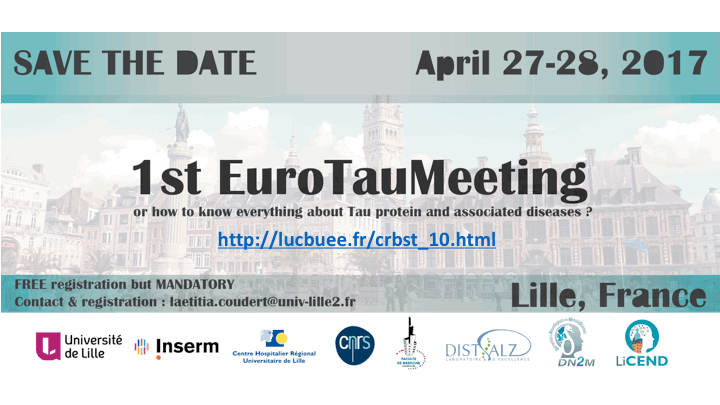 European scientists involved in Tau research will gather in Lille to exchange new ideas and hypotheses on physiological and pathological roles of tau proteins.
European scientists involved in Tau research will gather in Lille to exchange new ideas and hypotheses on physiological and pathological roles of tau proteins.
Informations pratiques
Lieu
LILLIAD (Univ. Lille, Villeneuve d'Ascq)
(Metro line 1, station Cité Scientifique)
5th Venusberg Meeting on Neuroinflammation
Privileged or not: basic, translational and clinical aspects of immune activation in the brain.
Further information available on the meeting website.
Scientific Committee
Michael Heneka, Markus Kummer, Eicke Latz, Richard Ransohoff, Tony Wyss -Coray, David Morgan, Karl Herrup,Nicolas Bazan, Hugh Perry, Douglas Feinstein.
Informations pratiques
Lieu
German Center for Neurodegenerative Diseases
DZNE lecture hall (ground floor)
c/o University Clinic Bonn
Building #99
Sigmund-Freud-Straße 27
53127 Bonn, Germany
Cours/École d’été « FBP » 2017 – inscriptions
Le Labex Bio-Psy, en collaboration avec l’Institut Pasteur, propose du 3 au 7 Juillet 2017 et pour la troisième année consécutive, le cours intitule « Frontiers in Biological Psychiatry » (FBP), destiné aux jeunes chercheurs et cliniciens (post-doctorants, internes, CCA).
Le Cours réunit des experts internationaux en psychiatrie clinique et en neurobiologie, génétique et développement et est organisé en anglais.
Télécharger le Programme 2017
Inscriptions ouvertes :Cours FBP 2017
Date limite pour le dépôt des candidatures : 11 Mai 2017
Informations pratiques
Lieu
Institut Pasteur
25/28 rue du Dr Roux
75724 Paris Cedex 15, France
and
Centre de recherche Neurospin
Centre d’Etudes de Saclay
91191 Gif-sur-Yvette, France
Public cible
jeunes chercheurs et cliniciens
NeuroFrance 2017, Bordeaux
Le colloque de la Société des Neurosciences fait peau neuve et devient NeuroFrance !
Le format revisité : deux fois plus de symposiums, la possibilité pour les jeunes chercheurs de présenter leurs travaux dans un symposium, des sessions spéciales, des rencontres avec des philosophes … et bien d’autres initiatives concoctées par la communauté bordelaise !
Informations pratiques
Lieu
Palais des Congrès
Avenue Jean Gabriel Domergue
33300 Bordeaux
5ème CONGRÈS SOFTAL 2017
Mémoire(s) et Apprentissage
Ce 5ème congrès de la SOFTAL entend apporter des éclairages sur le lien existant entre les mémoires et l’apprentissage chez l’enfant porteur d’un trouble. Notamment, les conférenciers invités permettront, par des apports tant théoriques que cliniques, de conduire une réflexion sur cette question au travers de modèles issus de pathologies et de domaines variés, tel que l’autisme, l’épilepsie ou les troubles des apprentissages plus largement.
Avec la participation de :
Francis Eustache (Caen), Michel Fayol (Clermont-Ferrand), Patrice Gillet (Tours), Isabelle Jambaqué (Paris), Steve Majerus (Liège) & Emm anuel Barbeau, Maëlle Biotteau, Mélody Blais, Mélanie Jucla (Toulouse)
Informations pratiques
Lieu
GRAND AMPHITHÉÂTRE DE L’UNIVERSITÉ TOULOUSE III PAUL SABATIER
118 ROUTE DE NARBONNE - 31062 TOULOUSE
6e meeting de la Mediterranean Neuroscience Society
70 symposia et mini-symposia à travers des sessions parallèles étalées sur 4 journées.
Consultez le site pour de plus amples renseignements
Informations pratiques
Lieu
Malte
CONFÉRENCE JACQUES MONOD
Glial cells at the crossroads of innate immunity and brain functions
(Organized by: Etienne Audinat, Melanie Greter)
Deadline for registration: March 7, 2017
The total number of participants is limited to 115
Information on the program and instructions for abstract submission and registration at : www.cnrs.fr/insb/cjm/2017/Audinat_e.html
Informations pratiques
Lieu
Roscoff, France
47th European Brain & Behavior Society Meeting – Abstract submission
The next biennial EBBS Meeting will put together European scientists interested in the relationship of brain mechanisms and behaviour and will be held in Bilbao from Sept. 8 to Sept. 11.
Registration open : http://www.ebbs-meeting.com/conference/registration/registration/
DEADLINES
Abstract submission : 15 June 2017
Early registration fee (lower registration fee) : 30 June 2017
Information regarding travel awards is available here.
Informations pratiques
Lieu
Bizkaia Aretoa
Avenida Abandoibarra, 3
48009 Bilbao
Spain
Cours/École d’été « FBP » 2017
Le Labex Bio-Psy, en collaboration avec l’Institut Pasteur, propose du 3 au 7 Juillet 2017 et pour la troisième année consécutive, le cours intitule « Frontiers in Biological Psychiatry » (FBP), destiné aux jeunes chercheurs et cliniciens (post-doctorants, internes, CCA).
Le Cours réunit des experts internationaux en psychiatrie clinique et en neurobiologie, génétique et développement et est organisé en anglais.
Télécharger le Programme 2017
Inscriptions ouvertes :Cours FBP 2017
Date limite pour le dépôt des candidatures : 11 Mai 2017
Informations pratiques
Lieu
Institut Pasteur
25/28 rue du Dr Roux
75724 Paris Cedex 15, France
and
Centre de recherche Neurospin
Centre d’Etudes de Saclay
91191 Gif-sur-Yvette, France
Public cible
jeunes chercheurs et cliniciens
IMMUNE CELLS AND THE CNS
ISN satellite meeting on immune cells and the CNS seeks to gather scientists interested in the impact of immune cells during development of the CNS and over the course of neurological diseases. The involvement of immune cells is at the source of fine developmental modeling of the brain and the trigger of the autoimmune disease Multiple Sclerosis but they also actively contribute to the evolution of chronic neurodegenerative diseases such as Alzheimer’s disease, Parkinson’s disease or Amyotrophic Lateral Sclerosis. The development of high throughput screening of genes and RNA, opens new opportunities for discoveries of interactions between specific neuroimmune pathways linked to development or implicated in neurological diseases.
The satellite meeting will consist of the five following symposia:
(1) Genetic studies unravels immune cell implication in neurological diseases,
(2) Microglial cells activation states,
(3) From injury to repair, role of immune cells,
(4) When immunity takes part in neurodegeneration
(5) Challenges of human microglial cells
Each symposium will consist of two 30 minute presentations from established scientists followed by three 15 minute talks from young investigators, selected on their abstract. Poster presentations during the two evenings and a free afternoon with a visit to the nearby Fontainebleau castle will increase the opportunities for scientific interactions.
With this satellite meeting we intend to bring together scientists working with different technological approaches on different topics: development, autoimmune or neurodegenerative diseases for their common interest of neuroimmunology and with this program, to attract a hundred scientists working in this field.
Please connect to the meeting website for further information.
Informations pratiques
Lieu
Château de Cély
77930 Cély-en-Bière
2017 ISN-ESN Meeting
Submission of Proposals opens on 1 February, 2016
For the 2017 ISN-ESN Meeting in Paris, August 20 – August 24, 2017, we are pleased to invite you as member of the ISN to submit proposals for Symposia, Workshops and Satellite Meetings, and Young Investigator Colloquia. Proposal can be submitted from February 1 until February 29, 2016.
Informations pratiques
Lieu
Paris
13th International Congress of Polish Neuroscience Society
On-line registration open.
For further information, please visit the meeting website.
Informations pratiques
Lieu
Warsaw, Poland.
30th ECNP Congress
ECNP Congress
The annual ECNP Congress is Europe’s premier scientific meeting for disease-oriented brain research, annually attracting between 4,000 and 6,000 neuroscientists, psychiatrists, neurologists and psychologists from around the world.
Registration open
DEADLINES
1 April 2017
Abstract submission
Free registration for junior scientists in Europe
15 April 2017
Early registration fee
Register on or before this date to profit from a lower registration fee.
15 August 2017
Standard registration fee 30th ECNP Congress
After this date you can register on-site only
Program – abstract submission – registration
Informations pratiques
Lieu
Paris
47th European Brain & Behavior Society Meeting
The next biennial EBBS Meeting will put together European scientists interested in the relationship of brain mechanisms and behaviour and will be held in Bilbao from Sept. 8 to Sept. 11.
Registration open : http://www.ebbs-meeting.com/conference/registration/registration/
DEADLINES :
Abstract submission :15 June 2017
Early registration fee (lower registration fee) :30 June 2017
Program :http://www.ebbs-meeting.com/scientific-information/programme/
Travel awards :http://www.ebbs-meeting.com/conference/registration/travel-grants/ or contact Antonis Stamatakis : astam@nurs.uoa.gr
Informations pratiques
Lieu
Bilbao
47th European Brain & Behavior Society Meeting
The next biennial EBBS Meeting will put together European scientists interested in the relationship of brain mechanisms and behaviour and will be held in Bilbao from Sept. 8 to Sept. 11.
Further information: http://www.ebbs-meeting.com/
Informations pratiques
Lieu
Bizkaia Aretoa
Avenida Abandoibarra, 3
48009 Bilbao
Spain
42e colloque de la Société de Neuroendocrinologie
Le prochain colloque de la Société de Neuroendocrinologie aura lieu à Dijon, du 18 au 21 septembre 2017.
Consulter le site internet pour toute information complémentaire.
S’inscrire
Informations pratiques
Lieu
Faculté de Médecine - Centre des Sciences du Goût et de l'Alimentation
Dijon, France
Les maladies de la vision: origines et traitements
A l’occasion de la Journée Mondiale pour la Vue du 12 octobre 2017 et dans le cadre d’un partenariat entre l’UNADEV et Aviesan (Alliance nationale pour les sciences de la vie et de la santé) pour soutenir la recherche dans le domaine de la vision, l’UNADEV et l’Institut Thématique Multi-Organisme Neurosciences, sciences cognitives, neurologie, psychiatrie organisent un colloque :
« Les maladies de la vision: origines et traitements »
Au cours de ce colloque, seront présentés les résultats obtenus par plusieurs équipes lauréates de projets de recherche financés en 2015 et 2016.
En 2015, l’association UNADEV (Union Nationale des Aveugles et Déficients Visuels) a signé un partenariat avec Aviesan/ ITMO Neurosciences, sciences cognitives, neurologie, psychiatrie pour une durée de 5 ans afin de soutenir la recherche dans le domaine de la vision. Ce colloque s’adresse à tout public intéressé par les maladies de la vision : acteurs de la recherche, patients, membres d’association…
S’inscrire (inscription gratuite mais obligatoire)
Informations pratiques
Lieu
Espace Van Gogh
62 Quai de la Rapée
75012 PARIS
Colloque Frontières en neurophotonique – FINS 2017
Organisé par les départements de neurosciences et de photonique et les centre d’imagerie de Bordeaux et de Québec, FINS 2017 (pour Frontières en neurophotonique / Frontiers in Neurophotonics) est la cinquième édition d’une série de conférences à succès dédiées aux nouvelles frontières en microscopie et en neuroscience.
Le symposium rassemble des développeurs de premier plan et des utilisateurs d’approches optiques avancées permettant d’étudier la fonction du cerveau, de la dynamique des récepteurs dans les synapses au traitement sensoriel dans les cerveaux intacts.
FINS 2017 réunira les leaders mondiaux des domaines de la photonique et des neurosciences et mettra en vedette les dernières avancées technologiques qui repoussent les limites des neurosciences expérimentales, pré-cliniques et cliniques.
Il s’agit d’un occasion exceptionnelle d’explorer les dernières découvertes et avancées conceptuelles du domaine, dans une atmosphère décontractée de discussion ouverte.
Les sujets traitées sont les suivants :
- Microscopie optique à super-resolution
- Analyse d’image et approches computationnelles
- Optogénétique et photomanipulation
- Imagerie non-linéaire In vivo
- Techniques à une seule molécule
- Imagerie moléculaire et spectroscopie intrinsèque
- Sondes de fibre pour la détection, l’imagerie et la stimulation
La date limite de dépôt des abstracts est fixée au 1er septembre 2017 (lien).
http://frontiersneurophotonics.org/fr/
Informations pratiques
Lieu
Bâtiment Neurocampus
Université de Bordeaux - Domaine de Carreire
146 Rue Léo-Saignat
33077 Bordeaux
The Gut Brain Axis & CNS Disorders
(RE)-VISITING (PATHO)PHYSIOLOGICAL MECHANISMS
Neurex Workshop
Informations pratiques
Lieu
Museum Kleines Klingental,
Unterer Rheinweg 26
Basel, Switzerland
Bridging Pain and Depression Research
Neurex Workshop
Informations pratiques
Lieu
Nouveau Patio
Amphithéâtre Alain Beretz
20a, rue René Descartes
Strasbourg
Congrès 2017 « la barrière hémato-encéphalique dans tous ses états »
La prochaine journée d’animation scientifique en Neurosciences du Centre INRA de Nouzilly se déroulera les jeudi 16 et vendredi 17 novembre 2017 dans l’amphi A à l’université François-Rabelais, 3 rue des Tanneurs à Tours et sera consacrée à la « barrière hémato-encéphalique dans tous ses états ». Cette manifestation est fortement soutenue et organisée avec la SFR4226 de Neuroimagerie Fonctionnelle, et en collaboration avec la Société d’Etude des Interfaces Sang-Cerveau.
Participation gratuite. Inscription obligatoire : cliquez ici
avant le 27 octobre prochain.
Informations pratiques
Lieu
Tours
Amphi A à l'université François-Rabelais
3 rue des Tanneurs
MINI-SCHOOL & MEETING
Technical and conceptual advances for the Study of Neural Networks
GDR Neuralnet
Neurocampus Event
Mini-school : November 20th-22nd, 2017
Meeting : November, 22th-24th, 2017
Informations pratiques
Lieu
Strasbourg
Collège Doctoral Européen
46 Boulevard de la Victoire
LE CONGRÈS DU SOMMEIL®
LE CONGRÈS DU SOMMEIL® est organisé par la Société Française de Recherche et Médecine du Sommeil, et la Société de Pneumologie de Langue Française (Groupe Sommeil) en collaboration avec la Société Française des Techniciens du Sommeil.
Il met en avant la nécessaire complémentarité des équipes et la transversalité de cette discipline récente.
Avec plus de 2 900 participants en 2016 à Strasbourg Le Congrès du Sommeil® reste l’évènement de référence de cette discipline transversale et confirme sa place incontournable de lieu d’échanges et de rencontres entre professionnels de la santé, chercheurs, décideurs publics, associations de patients, prestataires de soins à domicile, industriels et fournisseurs de matériel…
Le contenu du programme scientifique, pluridisciplinaire, fait une part importante aux troubles respiratoires du sommeil mais consacre également des sessions aux aspects neurologiques, psychiatriques et chronobiologiques du sommeil…
Consulter le site internet pour plus d’informations.
Informations pratiques
Lieu
MARSEILLE CHANOT, PALAIS DES CONGRÈS ET DES EXPOSITIONS
Rond Point du Prado
13008 Marseille
Neurofluidics: Neuroscience & Microfluidics
Neurofluidics is a unique conference at the frontiers of Neuroscience, Computational neuroscience, Microfluidics and Microtechnologies.
The format is a two days conference with speakers from each community and open debates. The purpose is to present the latest available technologies and to share their potential applications in neuroscience.
All participants are invited to submit an abstract for oral or poster presentation. Authors of selected abstracts will be invited to write a full paper for consideration in a special issue of IET Nanobiotechnology (subject to peer review).
Registration is mandatory until November 13th and fees to be due until the conference opens.
Details at http://neurofluidics.org
Preliminary program:
1 – Molecular analysis in compartmentalized devices
2 – Intracellular trafficking using microfluidic devices
3 – Recording and stimulating: Recording and stimulating neuronal activity
4 – Structuring neural networks: Chemical and physical approaches
5 – Structuring neural networks: Computational and pharmacogenetic approaches
6 – Activity recording: devices and network analysis
Keynote speakers:
Meriem Lamghari, INEB, Portugal; Yoonkey Nam, KAIST, Republic of Korea; Anne M. Taylor, University of North Carolina, USA; Janos Vörös, ETH, Switzerland, Jonathan James West, Univ. Southampton, UK.
Organizing committee:
Thibault Honegger, Frédéric Saudou and Benoit Charlot.
Informations pratiques
Lieu
Minatec Campus
Grenoble
EARLY SIGNS OF MEMORY DECLINE: OBJECT OF PLACE FIRST?
Neurocampus Meeting
Informations pratiques
Lieu
Strasbourg
MISHA
5 Allée du Général Rouvillois
OF GLIA AND MICROGLIA
Neurex Meeting
Contact
Informations pratiques
Lieu
Strasbourg
Maison Interuniversitaire des Sciences Humaines d'Alsace (MISHA)
5 Allée du Général Rouvillois
24e Rencontres en Toxinologie (RT24) de la Société Française d’Etude des Toxines (SFET)
English version below.
Les 24e Rencontres en Toxinologie (RT24) de la Société Française d’Etude des Toxines (SFET) se dérouleront autour d’un thème au cœur de la recherche actuelle en toxinologie : « Toxines : Biodiversité, Environnement et Evolution ».
Nous vous invitons vivement à y présenter vos résultats, sous forme de communication orale ou par affiche.
Voir http://sfet.asso.fr/
et http://sfet.asso.fr/international/
The 24th Meeting (RT24) of the French Society of Toxinology (SFET) will focus on a theme at the heart of the current research in toxinology: « Toxins: Biodiversity, Environment and Evolution ».
We invite you to present your results, as an oral communication or a poster.
See http://sfet.asso.fr/
and http://sfet.asso.fr/international/
Informations pratiques
Lieu
Institut Pasteur de Paris
Proteinopathies and Neurodegenerative Disorders (NDD) Symposium
The symposium is organized by 4 institutions – Tech Transfer Consortium (CVT) of AVIESAN, ITMO NNP, PMND and ARIIS – which are highly involved in emerging scientific and medical aspects of this hot topic.
The symposium aims to provide a unique opportunity to bring together leading scientists, clinicians and companies interested in proteinopathies to discuss the latest discoveries and developments of its application in neurodegenerative disorders.
There is a limited number of seats and on-line registration is required. Seats will be granted on a « first come, first served » basis. Do not wait to register!
Join the NDD SYMPOSIUM, and get the great opportunity to exchange, learn, interact and network with colleagues from all over the world!
Visit the congress website for updates and posts
KEY DATES
– Open registration & Abstracts submission: 4 October 2017
– Early registration fees deadline: 26 November 2017
– Conference Opening: 18 December 2017
Informations pratiques
Lieu
Cité internationale universitaire de Paris
17 Boulevard Jourdan
75014 Paris
France Cerebellum kick-off meeting
Keynote speaker : Nathaniel Sawtell (Columbia University).
Informations pratiques
Lieu
Collège de France, Paris
Oxytocin – The new love potion?
Its true role as a hormone and neuromodulator and clinical use.
Organizers:
P. Pévet (Strasbourg, France)
M.J. Freund-Mercier (Strasbourg, France)
Informations pratiques
Lieu
Collège Doctoral Européen
46 Boulevard de la Victoire
Strasbourg
IBRO – Call for Symposia Proposals: 10th IBRO World Congress
The Call for Symposia is open until 30 April 2018 for the 10th IBRO World Congress that will take place in Daegu, Korea, from 21-25 September 2019.
Congress registration and 5-night accommodation will be covered for the selected applicants.
Proposal submission information
Informations pratiques
Lieu
--
BNA2019 – what neuroscience would you like to see featured at the festival?
Submission deadline = 12th March 2018
The British Neuroscience Association (BNA), with Neuroscience Ireland (NSI) and the British Society for Neuroendocrinology (BSN) as our Festival Partners, is excited to launch the call for proposals for sessions at the 2019 Festival of Neuroscience, being held in Dublin 14-17 April 2019.
What topics, speakers, research and techniques do you want featured at BNA2019? What did you feel was missing from BNA2017?
The Festival is THE chance to celebrate and share the latest thinking in neuroscience today – and submitting symposia and workshop proposals is YOUR way to influence what it contains!
For full information, guidelines and online submission
Informations pratiques
Lieu
Dublin, Ireland
FENS-KAVLI NETWORK OF EXCELLENCE CALL FOR APPLICATIONS – 2018
The FENS-Kavli Network of Excellence is a prestigious network of 30 outstanding young
European neuroscientists who represent the most talented researchers among their peers.
In collaboration with the Kavli Foundation, the Federation of European Neuroscience Societies
(FENS) established in 2014 a high-level, multidisciplinary network of excellent early to midcareer
European neuroscientists. The FENS-Kavli Network of Excellence (FKNE) is selforganised
and aims to improve Neuroscience in Europe and beyond through scientific exchange,
providing opportunities for young scientists, and facilitating dialogue between scientists, policymakers,
and society.
Check here to find out more about the current FENS-Kavli Scholars and some of FKNE’s
scientific, outreach, and policy activities.
We are aiming for:
•Neuroscientists at early and mid-career stages with successful and independent research
lines – as evidenced by outstanding publications as main authors – who have won
prestigious personal prizes, fellowships, or grants (e.g. ERC grants or comparable
national grants) and lead their own group;
•Neuroscientists who typically completed their PhD work 4-12 years ago (though there is
no strict timing rule);
•Neuroscientists with strong leadership and communication skills who are motivated to
actively participate in Network activities;
•To allow optimal group dynamics, a good spread over disciplines, geography and gender
will be strived for.
The FENS-Kavli Scholars:
•will be selected based on the above criteria;
•will actively serve two terms, each of 2 years’ duration (i.e.: 2018-2022).
Selection of 15 new FENS-Kavli Scholars will take place in 2018.
Application Procedure:
•Only candidates who have independent PI positions in a FENS member country are
eligible;
•Candidates are encouraged to apply directly;
•Additionally, each FENS member society may nominate up to two candidates. These do
not have to be members of the nominating society. Gender balance is encouraged;
•In all cases, the application should be supported by two letters from internationally
renowned neuroscientists;
•All applications and nominations should be submitted via the online application form.
http://www.fenskavlinetwork.org/
Candidates should be available for maximum 20-minute Skype interview on 5 July 2018.
Applicants will be informed about the outcome of the selection procedure just before the FENS
Forum 2018 (Berlin, 7-11 July). The newly selected FENS-Kavli Scholars are kindly invited to
attend the business meeting of the FENS-Kavli Network of Excellence taking place at the FENS
Forum 2018, on 9 July, from 11:15 am to 12:30.
Apply/Nominate now
Deadline for applications: May 10th (23.00 o’clock, Brussels time).
Selection Committee:
In 2018, the Selection Committee consists of:
•Megan Carey (Chair) FKNE Chair
•Gaia Novarino FKNE Vice-Chair
•Carmen Sandi FENS President-Elect
•Thomas Mrsic-Flogel FENS Forum 2018 Program Committee Chair
•Panayiota Poirazi Former FKNE Chair
•Filippo Del Bene FKNE Scholar
•Patrik Verstreken FKNE Scholar
•Tim Vogels FKNE Scholar
Informations pratiques
Lieu
-
Réunion Francophone sur la Maladie d’Alzheimer et Syndromes Apparentés
APPEL A COMMUNICATION
Chers collègues,
Nous nous permettons de vous rappelez que la prochaine Réunion Francophone sur la Maladie d’Alzheimer et Syndromes Apparentés se tiendra du 11 au 14 juin prochain à Lille.
Vous êtes cordialement invités à soumettre vos travaux pour des présentations orales ou poster pour le 26 mars au plus tard.
Vous pouvez déposer votre résumé à abstract@rfmasa2018-lille.fr
Au programme de cette édition 2018, nous vous proposons les thématiques suivantes.
Le rôle essentiel des patients et des aidants dans la recherche (en partenariat avec les associations de familles et de patients) ;
Les spécificités des patients jeunes de la maladie d’Alzheimer ;
Les stratégies innovantes pour une approche transdisciplinaire de la maladie d’Alzheimer (en association avec le Labex DISTALZ) ;
Les facteurs de risque vasculaires ou métaboliques et les troubles cognitifs (en association avec le FHU VasCog) ;
La stratification et nosographie en recherche clinique et thérapeutique ;
Le « Big Data » et les nouvelles technologies ;
L’actualité en recherche fondamentale ;
Le diagnostic précoce au travers de cas clinico-pathologiques.
Une table ronde sur l’évolution du champ d’action des Centres Mémoire et Centres Mémoire de Ressources et de Recherche, un débat/controverse sur le lien entre diabète et maladie d’Alzheimer et une demi-journée de formation continue sur les démences fronto-temporales validant le parcours de Développement Professionnel Continu sont également proposés. Une large place sera laissée aux communications libres orales et affichées.
Nous vous serions reconnaissants de bien voir transmettre cette information autour de vous,
Au plaisir de vous recevoir à Lille !
Le comité d’organisation de la RFMASA 2018
Informations pratiques
Lieu
Lille
Recherche thérapeutique et modèles animaux
L’Académie des sciences et l’Académie nationale de médecine sont heureuses de vous convier à la conférence-débat Recherche thérapeutique et modèles animaux qui se tiendra le mardi 10 avril 2018 de 14h30 à 17h00 dans la grande salle des séances.
A cette occasion, Angela Sirigu, Bernard Meunier, Xavier Montagutelli et Pierre Corvol, évoqueront les aspects réglementaires et éthiques de l’utilisation des modèles animaux ainsi que les progrès médicaux qu’ils ont permis.
Les inscriptions sont ouvertes au public dans la limite des places disponibles. Si vous souhaitez y assister, nous vous prions de vous inscrire en remplissant notre formulaire en ligne.
Informations pratiques
Lieu
Grand salle des séances
Institut de France
23, quai de Conti
75006 Paris
French Club of Glial Cells – Annual Meeting, October 9th, 2018
The annual meeting of the French Club of Glial Cells will be held on October 9th, 2018 in Paris at the Brain & Spine Institute. This meeting will highlight the most recent findings in the glial field and promote scientific exchanges and collaborations among the neuroscience community.
Keynote speakers
Gonçalo Castelo-Branco, Karolinska Institute, Sweden
Transcriptional and epigenetic states of oligodendrocyte lineage cells in the central nervous system
Giles Hardingham, University of Edinburgh, UK
Signalling to and from astrocytes in health and disease
Call for Oral/ Poster presentations
We welcome submissions of oral and poster presentations from researchers and students. The basic criteria for selection are the scientific quality, the ability of the speaker to present their work to a broad and multidisciplinary audience. Abstracts should include title, list of authors, affiliations and a summary that should not exceed 500 words in length. The scientific committee of the CCG 2018 will review abstracts and notification of acceptance will be sent by June 30th, 2018.
Deadline for abstract submission: June 1st, 2018.
Abstracts should be sent to Thierry Amédée.
Informations pratiques
Lieu
Institut du Cerveau et de la Moelle Epinière – ICM, Paris
Brain Research in Europe: Shaping FP9 and Delivering Innovation to the Benefit of Patients
On the 23rd-24th April, the European Brain Council will hold a two-day event at the University Foundation in Brussels. The two days will include three separate but complementary sessions on “FP9 and Missions”, “The Value of Innovation”, and “Brain Research: Shifting Gears and Going Global”.
Investments into research and innovation have delivered unprecedented results for patients across Europe. Publicly and privately funded innovation schemes in the EU empowered researchers to accelerate scientific discovery, increase the understanding of non-communicable diseases and improve healthcare services. Yet despite the progress that was achieved in recent decades, there is currently no effective treatment to cure a wide range of mental and neurological conditions. What is more, the complexity of many brain disorders hinders researchers in their efforts to develop innovative healthcare interventions.
In 2018, the European Commission is expected to submit proposals for a mission-oriented and impact-focused 9th Framework Programme. In view of the preparations for the forthcoming EU research scheme, the European Brain Council (EBC) aims to bring attention to issues that affect therapeutic innovation and facilitate an exchange of views on how the post-2020 Framework Programme can make a real difference for patients living with brain disorders.
The event will allow leading healthcare stakeholders and policymakers to address key questions in the domain of research, such as: how can the 9th Framework Programme accelerate brain research across Europe? What measures can be taken in order to stimulate the development of new central nervous system drugs for treating brain disorders? What can be done to address the concerns of patients?
23 April 2018, 14:30-18:00
FP9 & Missions
24 April 2018, 10:00-14:00
The Value of Innovation
14:00-17:00
European Brain Research: Shifting Gears and Going Global
Please confirm your attendance by filling in the online registration form.
Additional information can be found on the EBC website.
Informations pratiques
Lieu
European Brain Council
University Foundation
Rue d’Egmont 11
BE-1000 Brussels
Appel à bénévoles « Jardins ouverts » / FRC
La FRC organise une opération « Jardins ouverts » du samedi 5 mai au mardi 8 mai 2018 : une centaine de jardins ouvrent leurs portes au profit du Neurodon. Pour chaque entrée, 2€ sont reversés à la recherche sur le cerveau.
La FRC est à la recherche d’étudiants/chercheurs en neurosciences désireux de partager leurs connaissances, d’informer et de communiquer avec les visiteurs sur les neurosciences. Ce sera l’occasion pour eux de parler de leurs travaux, des neurosciences en général, d’expliquer l’importance de financer la recherche, mais également de répondre aux questions que les visiteurs peuvent se poser sur la recherche ou sur certaines maladies du cerveau.
Plus d’informations sur cette opération.
Informations pratiques
Lieu
Dans plus d’une centaine de jardin de Bretagne, Normandie, Pays de la Loire, Centre-Val de Loire, et aussi Île-de-France, Alsace, Picardie, Aquitaine et PACA
Eighth International Symposium on Biology of Decision-Making (SBDM)
The Eighth International Symposium on Biology of Decision Making will take place on
May 21-23, 2018 in Paris, France. The objective of this three-day symposium will be
to gather people from different research fields with different approaches
(psychology, economics, ethology, psychiatry, neural, behavioral, computational and
robotics approaches) to decision making.
The symposium will be a single-track, will last for 3 days and will include 6 sessions:
« Learning about the structure of the world to make decisions » (Chair: Chris
Summerfield) ;
« Constructing and deconstructing subjective value » (Chair: Lesley Fellows) ;
« The neuroscience of moral decision-making » (Chair: Miriam Teschl) ;
« Decision-making across cultures and species » (Chair: TBD) ;
« Dealing with uncertainty: exploration and curiosity » (Chair: TBD) ;
« Development and decision-making » (Chair: TBD) ;
IMPORTANT DATES
April 15, 2018 Deadline for Poster Submission
May 01, 2018 Notification of Poster Acceptance
May 08, 2018 Deadline for Registration
May 21-23, 2018 Symposium Venue
CONTACT INFORMATION
Website, registration, poster submission and detailed program
Téléphone : 01 44 27 28 85
Informations pratiques
Lieu
Paris
ICM + ENS + Sorbonne Université + UPMC
THE ARCUATE NUCLEUS: SENSOR OF TIME AND METABOLISM
Organizer Paul Pévet (NEUREX, Strasbourg, France)
REGISTRATION & MORE INFO: www.neurex.org or contact@neurex.org
>>> Thursday, May 31ST
09.00 – 09.30 Registration & Welcome Coffee
09.30 – 09.40 Welcome: Paul Pévet, Strasbourg, France
SESSION 1
CHAIRMAN: E. CHALLET (Strasbourg, France)
09.40 – 10.20 J.N. BETLEY (Virginia, US)
« THE ARCUATE NUCLEUS SENSES THE METABOLIC AND HORMONAL CHANGES OF THE BODY »
10.20 – 11.00 R.M. BUIJS (Mexico, Mexico)
« SUPRACHIASMATIC NUCLEUS TIMES THE ARCUATE NUCLEUS: ESSENTIAL FOR ORGANIZING PHYSIOLOGICAL RHYTHMS »
11.00 – 11.30 Coffee Break
11.30 – 12.10 A. KALSBEEK (Amsterdam, The Netherlands)
« GLUCOCORTICOID SIGNALING IN THE ARCUATE NUCLEUS MODULATES DAILY HEPATIC INSULIN SENSITIVITY »
12.10 – 12.50 V. PRÉVOT (Lille, France)
« FLIPPING THE TANYCYTE SWITCH: HOW CIRCULATING SIGNALS GAIN DIRECT ACCESS TO THE METABOLIC BRAIN »
12.50 – 13.50 Lunch break
SESSION 2
CHAIRMAN: V. PRÉVOT (Lille, France)
13.50 – 14.30 M.V. KOKOEVA (Montreal, Canada)
« ANATOMY OF THE LEPTIN SENSING »
14.30 – 15.10 S.G. BOURET (Lille, France)
« DEVELOPMENTAL PROGRAMMING OF THE ARCUATE NUCLEUS »
15.10 – 15.40 Coffee Break
15.40 – 16.20 M.T. TSCHÖP (Munich, Germany)
« ASTROCYT GLUCOSE SENSING IN ARCUATE NUCLEUAS INVOLVED IN POMC SIGNALING »
16.20 – 17.00 P. MOLLARD (Montpellier, France)
« DYNAMIC OF THE DIALOG BETWEEN THE ARCUATE NUCLEUS AND PORTAL VESSELS »
>>> Friday, June 1ST
SESSION 3
CHAIRMAN: R.M. BUIJS (Mexico, Mexico)
09.00 – 09.40 V. SIMONNEAUX (Strasbourg, France)
« A KISS IN THE ARCUATE NUCLEUS TO ADAPT REPRODUCTION TO SEASON »
09.40 – 10.20 P. MORGAN (Aberdeen, UK)
« PHOTOPERIODIC REGULATION OF TANYCYTES »
10.20 – 10.50 Coffee Break
10.50 – 11.30 H.W. KORF (Frankfurt, Germany)
« MELATONIN, MELATONIN RECEPTORS AND ARCUATE NUCLEUS »
11.30 – 12.10 P. PÉVET (Strasbourg, France)
« A MELATONIN INDEPENDENT PHOTOPERIODIC RESPONSE WITHIN THE ARCUATE NUCLEUS»
Informations pratiques
Lieu
Collège Doctoral Européen
46, Boulevard de la Victoire
STRASBOURG
Spain & French Ms Meeting – Paris 2017 – Conference on Multiple Sclerosis
Organized by Fondation ARSEP and Esclerosis multiple España
- 08:30 Registration
- 09:00 Welcome address by Jean-Frédéric DE LEUSSE
- 9:10 Actualities in MS predictive markers
- Chairs: Jean PELLETIER and Alfredo ANTIGÜEDAD
- 09:20 Hélène ZEPHIR (Lille, France): Clinical markers
- 09:40 Lucia ROMERO PINEL (Barcelona, Spain): Biological markers
- 10:00 Aurélie RUET (Bordeaux, France): MRI markers
- 10:20 Coffee break
- 11:00 Actualities in progressive MS
- Chairs: Catherine LUBETZKI and Oscar FERNANDEZ
- 11:10 José Carlos ÁLVAREZ-CERMEÑO (Madrid, Spain): Physiopathological aspects of MS progression as seen by a clinician
- 11:40 Bruno STANKOFF (Paris, France): Mechanisms of disability worsening in MS: insight from imaging
- 12:10 Posters teaser – all themes are welcome!
- 13:30 Lunch & posters session
- 15:00 Actualities in neurobiology & immunology
- Chairs: David LAPLAUD & Manuel COMABELLA
- 15:10 Luisa María VILLAR GUIMERANS (Madrid, Spain): Physiopathological aspects of MS progression as seen by a clinician
- 15:40 Violetta ZUJOVIC (Paris, France): Interplay of innate and adaptive immune system to promote demyelination
- 16:10 Prizes of the best poster and the best teaser
- 16:30 End of the meeting
TRAVEL GRANTS FOR YOUNG RESEARCHER
Deadline for abstract submission : April 4, 2018
A quick presentation of the abstract will be done by each presenting author during the POSTER’S TEASER.
Deadline for registration (free but mandatory) : May 25, 2018
Informations pratiques
Lieu
Institut des Cordeliers
Paris
6th conference of the Association for Research in Neuroeducation
The 6th conference of the Association for Research in Neuroeducation will be held on June 6-8, 2018, at the Sorbonne in Paris, France, and organized by the Laboratory for the Psychology of the Child Development and Education (LaPsyDÉ) at the CNRS and the Paris Descartes University. The first day will consist of general public conferences (in French only) around the topic of « Neuroeducation: a new science for school? », and will aim to share and discuss the latest progress in the field of neuroeducation with students, teachers and other experts in education. The goal of this day will be to strengthen the links between the members of the educational community by facilitating the exchange of ideas and expertise and the dialog between the lab and the school. In addition to conferences given by several researchers in developmental psychology, education sciences and developmental cognitive neuroscience, round table sessions will allow to reflect on the future school.
The scientific symposium will be held over the following two days (Day 2 and 3), and will aim at presenting the findings of researchers who manage to reconcile the constraints of the cognitive neuroscience techniques with the investigation of questions in the field of education at school and at the university. Our keynote speaker will be Bert de Smedt, Associate Professor of Neuroscience at the Katholieke Universiteit Leuven (KUL).
For the scientific symposium, we welcome oral presentations submissions and poster submissions from researchers and students working in developmental psychology, education sciences and developmental neuroscience.
The online abstract submission is open until February 28th, 2018.
Abstracts should not exceed 300 words in length. The full abstract will be reviewed by the conference scientific committee and the result of this review will be communicated on March 28th, 2018.
For more information, visit the ARN 2018 conference website.
Informations pratiques
Lieu
Grand Amphithéâtre de la Sorbonne
75005 Paris
Ethique et neurosciences – L’interface homme-machine
En partenariat avec la Société des Neurosciences
Les enjeux des recherches en neurosciences sont de 2 ordres, étroitement liés. Il s’agit d’une part, de relever le défi de dévoiler l’organisation et le fonctionnement de l’organe complexe que représente notre cerveau et plus généralement de notre système nerveux, à toutes les étapes de la vie et dans ses nombreuses fonctions, ouvrant une fenêtre sur la connaissance du soi et de nos comportements. Cette connaissance, en dehors de tout contexte pathologique, permet d’envisager une amélioration de certaines de nos facultés pour favoriser l’épanouissement de la personne (mieux apprendre, communiquer, interagir avec notre environnement, etc.), sans pour autant chercher à dépasser nos limites biologiques comme le prône le transhumanisme. D’autre part, les neuroscientifiques tentent de répondre à des besoins thérapeutiques non satisfaits, avec la nécessité d’apporter de nouvelles options pour combattre les nombreuses atteintes et maladies qui affectent le système nerveux. Les conséquences entravent souvent l’autonomie relationnelle de la personne et altèrent sa qualité de vie. S’y ajoutent les coûts induits par le suivi médical, évalués dans la Communauté Européenne à près de 800 milliards d’Euros, soit plus d’un tiers des dépenses de santé. Devant l’afflux des données issues de la recherche en neurosciences, le développement d’outils permettant d’appréhender et de modifier le fonctionnement du système nerveux, et les implications sociétales de ces avancées, notre responsabilité de neuroscientifique est de soulever les nombreux questionnements éthiques qui se posent. Il convient de faire la part entre utilisation thérapeutique et cosmétique des données, les possibilités effectives et les fantasmes.
L’évocation de ces quelques aspects de la recherche développée dans le champ des neurosciences justifie une approche éthique appropriée. Il convient d’anticiper les conséquences et l’impact sociétal d’évolutions technologiques qui parfois peuvent être considérées intrusives, voire de nature à mettre en cause les libertés individuelles, faute d’un encadrement approprié. L’acceptabilité de ces avancées dont l’intérêt en termes de prévention et de traitements s’avère évident, est conditionné par le souci d’éviter tout risque de dérive ou d’usage inconsidéré. Les États généraux de la bioéthique peuvent favoriser une concertation indispensable entre chercheurs, praticiens, usagers de la santé et société, dans la perspective de développer une approche responsable de l’innovation en neurosciences.
Informations pratiques
Ouverture
de 09 h à 17 h 30
Lieu
Ministère de l’Enseignement supérieur, de la recherche et de l’Innovation
Amphithéâtre Poincaré, 1, rue Descartes 75005 Paris
Avec la Société des Neurosciences
Réunion Francophone sur la maladie d’Alzheimer et Syndromes apparentés
Date limite d’inscription 31 mai 2018 (pour s’inscrire : cliquer ICI)
Le rôle essentiel des patients et des aidants dans la recherche (en partenariat avec les associations de familles et de patients) ;
Les spécificités des patients jeunes de la maladie d’Alzheimer ;
Les stratégies innovantes pour une approche transdisciplinaire de la maladie d’Alzheimer (en association avec le Labex DISTALZ) ;
Les facteurs de risque vasculaires ou métaboliques et les troubles cognitifs (en association avec le FHU VasCog) ;
La stratification et nosographie en recherche clinique et thérapeutique ;
Le « Big Data » et les nouvelles technologies ;
L’actualité en recherche fondamentale ;
Le diagnostic précoce au travers de cas clinico-pathologiques.
Une table ronde sur l’évolution du champ d’action des Centres Mémoire et Centres Mémoire de Ressources et de Recherche, un débat/controverse sur le lien entre diabète et maladie d’Alzheimer et une demi-journée de formation continue sur les démences lobaires fronto-temporales validant le parcours de Développement Professionnel Continu sont également proposés. Une large place est laissée aux communications libres orales et affichées.
Au plaisir de vous recevoir à Lille,
Le comité d’organisation de la RFMASA 2018
Informations pratiques
Lieu
Lille
The cognitive thalamus
Neurex meeting
Organizers:
Jean-Christophe Cassel & Anne Pereira de Vasconcelos (LNCA, Strasbourg)
The thalamus – the largest diencephalic structure with its about 60 nuclei – has long been considered a structure bidirectionnally relaying information between subcortical and cortical regions. Over the two last decades, some of its nuclei have been recognized as having a major role in various aspects of cognition. Indeed, thalamic lesions are associated with a panel of cognitive dysfunctions including amnesia, aphasia, alterations in executive functions, attention, perseveration… in both neurological patients and animal models. Over the last five years, research in both humans and laboratory animals has provided new support (e.g., 136 research articles and reviews in 2017) pointing to a specific role of some of these thalamic nuclei in the dynamic interactions between limbic structures and cortical areas implicated in cognitive functions (e.g., hippocampus, prefrontal cortex). There will be a particular emphasis on processes underlying functions encompassing, for instance, behavioural flexibility, working memory, memory persistence… Data and arguments presented will come from MRI studies in humans and experimental approaches in animal models, including non human primates.
Detailed programme and registration
Informations pratiques
Lieu
Bâtiment Atrium
16 rue René Descartes
67081 Strasbourg
Workshop in Integrative Approaches in Neurodegeneration
The Workshop in Integrative Approaches in Neurodegeneration is organized in the frame of the FlySMALS consortium, funded by the 2013 JPND Transnational call for “European research projects for Cross-Disease Analysis of Pathways related to Neurodegenerative Diseases”, which come to an end this year. The workshop aims to disseminate and integrate the results of the research consortium with state-of-the-art research in the field, promoting the joint presentation and discussion of relevant research topics by a panel of international experts, including members of other consortia funded through the same JPND call.
The program targets a broad audience of basic, experimental, computational and clinical scientists, in the spirit of the JNPD Cross-Disease Analysis call, aiming to:
promote the analysis of diseases across traditional clinical boundaries
combine fundamental, pre-clinical and clinical experimental approaches with computational approaches
re-define clinical phenotypes and new approaches in the treatment of neurodegenerative diseases
identify commonalities and differences molecular pathways underlying neurodegenerative diseases.
The workshop will bring together 20 invited speakers and 50 registered participants, providing an ideal environment for dynamic interactions promoting the exchange of expertise across areas, supporting the conceptual development of novel integrative research approaches that will contribute to the future progress in neurodegenerative disease research. Participants will be able to present their work at a poster section and through short talks from selected abstracts.
Join us in the wonderful city of Lisbon for an exciting inter-disciplinary program at the forefront of neurodegenerative disease research.
Informations pratiques
Lieu
Lisbon
Portugal
École Thématique CNRS
Les canaux et transporteurs ioniques
du fondamental à l’appliqué : approches méthodologiques et concepts émergents
Cette école, ouverte à tous, a pour objectif d’aborder (en théorie et en pratique) concepts émergents et approches multi-méthodologiques pour l’étude des fonctions cellulaires associées aux canaux ioniques, de leurs rôles physiopathologiques et du criblage pharmacologique et phénotypique pour leur ciblage thérapeutique.
Le programme de l’école thématique sera articulé autour de trois grands axes organisés par journée et que les participants, répartis en trois groupes, suivront dans un ordre quelconque. Des séminaires scientifiques sur les applications des concepts et techniques abordés dans chaque axe auront lieu le vendredi matin.
Chaque axe comprendra des présentations des techniques abordées, suivis des ateliers pratiques sur les installations expérimentales.
Ces trois axes se définissent de la façon suivante :
- AXE 1 – Le canal dans son environnement membranaire : courants ioniques, flux et criblage
- AXE 2 – Le canal dans son environnement cellulaire : localisation et dynamique
- AXE 3 – Le canal et ses impacts : migration/prolifération cellulaire et communication intercellulaire
Pour de plus amples informations, consulter le site internet de l’école.
Informations pratiques
Lieu
Laboratoire Signalisations et Transports Ioniques Membranaires (STIM)
CNRS - ERL 7003
Pôle Biologie Santé, Université de Poitiers
1 Rue Georges Bonnet
POITIERS
Communicating Animal Research: Challenges and Opportunities
Dans le cadre du Forum FENS 2018, le FENS Committee on Animals in Research (CARE) et la European Animal Research Association (EARA) invitent les personnes impliquées dans la recherche animale en neurosciences à participer à la session « Communicating Animal Research: Challenges and Opportunities », dimanche 8 juillet, de 12h30 à 13h30.
Cette session sera présidée par Suliann BEN HAMED, membre CARE-FENS et correspondante CARE-Société des Neurosciences.
Informations pratiques
Lieu
CityCube Berlin
Berlin ExpoCenter City
Messedamm 26, 14055 Berlin, Germany
41st Annual Meeting of Japan Neuroscience Society (Neuroscience 2018)-Call for Travel Award Application
The 41st Annual Meeting of Japan Neuroscience Society (Neuroscience 2018) will be held at Kobe Convention Center in Hyogo, Japan, from July 26th to 29th, 2018.
Neuroscience 2018 offers Travel Awards to enthusiastic leading non-Japanese neuroscientists traveling from abroad to present high quality papers at the meeting. Applications of young principal investigators and senior postdoctoral fellows are especially encouraged. The funding for travel will be between 40,000-150,000 JPY per award depending on the travel distance. The awardees will also be exempt from the registration fee of the meeting. Those from Asian-Pacific countries are particularly encouraged.
Please be advised that persons from the following countries must apply for the Travel Award through their home Neuroscience Affiliations: China, South Korea, India, and Iran.
– The Japan Neuroscience Society (JNS) was founded in 1974. Since then, the membership has increased steadily. With more than 6,300 members in 2017, JNS is now a representative academic society in neuroscience in Japan.
– Neuroscience 2018 under the theme of “New Horizon of Neuroscience” provides a unique opportunity to forge closer links between researchers in different fields and to develop next-generation neuroscientists endowed with a wide perspective.
– Top international and domestic researchers will take this as an opportunity to elucidate the mechanisms of the brain and mind through promotion of a wide range of neuroscience research fields, across clinical medicine and psychology, and to the molecular and cellular biological levels.
– We will also focus our efforts on promoting interaction with relevant professional neuroscience societies in neighboring Asia-Pacific countries, the United States and Europe by organizing joint symposia and providing a financial assistance program to cover travel costs.
– All travel award winners are invited to the International Exchange Meeting for Young Researchers and a get-together party to be held on July 25th, 2018 to facilitate interaction among young researchers from abroad and Japan. In addition, they will be invited to a reception on DAY 2 of the Annual Meeting.
– The Annual Meeting aims at fostering young scientists and promoting collaboration across the globe and various scientific fields including clinical neuroscience. We expect approximately 4,000 participants, including 400 people from overseas.
– The Meeting will be held at Kobe Convention Center, Hyogo.
Application deadline: January 9th, 2018.
Informations pratiques
Lieu
Center in Hyogo, Japan
FENS Regional Meeting 2019, Belgrade – Call for Symposia
CALL FOR SYMPOSIA by September 1st, 2018
The Serbian Neuroscience Society, National Neuroscience Society of Romania and Neuroscience Society of Turkey come together for the first time with the aim of boosting the development of neuroscience in the entire region by organising a meeting with an exciting programme reflecting the latest discoveries and technological developments.
Informations pratiques
Lieu
Belgrade, Serbia, July 10-13, 2019
Viral Manipulation on Monkeys conference
Applying all the recent rodents opto and chemogenetics advances to primates holds great promises for neurophysiology, behavior and preclinic researches. This two days conference will gather worldwide specialists to share their latest results and discuss about the realistic future applications of this new promising field.
All info on http://vimamo.fr
Informations pratiques
Lieu
ICM Institut du Cerveau et de la Moelle épinière
Hôpital Pitié Salpêtrière
47 Boulevard Hôpital
75013 Paris
France
Aging of memory functions: where are we now?
BORDEAUX NEUROCAMPUS CONFERENCES
The Bordeaux Neurocampus Conferences are a series of Neuroscience meetings, organized in Bordeaux, France.
The purpose of the conferences is to present and discuss recent findings in a topic field in Neuroscience, bringing together leading international experts and young researchers. The maximum number of participants is 250, including invited speakers. The scientific program is organized jointly by members of Bordeaux Neurocampus and the LabEx Brain.
About 20 presentations are given by invited speakers, and the schedule encourages lively discussion, in particular during the poster sessions.
The next congress « Aging 2018 » will be held at the Domaine du Haut Carré in Talence from September 26 to 28, 2018. It will gather members of the international neuroscience community around a central theme: cognitive aging in the absence of AD and the existence of interindividual differences in memory impairment during age.
Informations pratiques
Lieu
Espace AGORA, Domaine du Haut Carré
Campus de l'Université de Bordeaux
43 rue Pierre Noailles
Talence
1er congrès des CoEN (Center of Excellence on Neurodegeneration)
Le premier congrès des CoEN (Center of Excellence for Neurodegenerative disorders)
aura lieu à Montpellier les 18-19 octobre 2018
Comité Scientifique : Sylvain Lehmann, Audrey Gabelle-Deloustal, Joël Bockaert, Yves Dauvilliers, Carole Crozet, Philippe Amouyel, Joël Ankri, Erwann Bezard, Olivier Blin, Michel Clanet, Bruno Dubois, Etienne Hirsch, Rolland Liblau, Florence Pasquier, Olivier Rascol, Frédéric Saudou, François Tison, Bruno Vellas, Xavier Roucou, Aroa Relano-Gines, Laura Auboyer
Comité d’organisation : Carole Crozet, Sylvain Lehmann, Audrey Gabelle-Deloustal, Lydie Mathevet, Natalia Del Campo, Julie Erraud, Georges Khalil, Marylin Vantard, Maximilien Vanleene, Joan Torrent i Mas, Aroa Relano-Gines Pierre André Lafon, Laura Auboyer, Charlotte Caillot
Informations pratiques
Lieu
Salle PAGEZY
Montpellier
Dialogues entre chercheurs et lycéens
Declics fait dialoguer des chercheurs avec des lycéens cet automne dans une quinzaine de villes de France pour leur faire découvrir la science en train de se faire.Tous les personnels de recherche académique, femmes et hommes, sont encouragés à participer, qu’ils soient francophones ou anglophones, statutaires ou non statutaires, dans toutes les disciplines (directeur de recherche, chargés de recherches, doctorants, post-doctorants, personnels ITA, maîtres de conférence, professeurs d’université…).
Il n’y a rien à préparer (il ne s’agit pas d’une conférence, mais d’une discussion).
Plus de détails sur le dispositif
Inscription
Symposium Ion Channels and Channnelopathies
9:00 Reception
9:20 Introduction Massimo Mantegazza (IPMC)
9:30 William Catterall (University of Washington, Seattle, USA) Sodium channelopathies in epileptic encephalopathies.
10:10 Holger Lerche (Tubingen, Germany) Mutations and variants of ion channels in monogenic and polygenic epilepsies.
10:40 Coffee Break
11:00 Massimo Mantegazza (IPMC) Differential mechanisms of Epilepsy and Migraine Caused by mutations of sodium channels.
11:20 Martin Krupa (UNS-UCA, Nice, France) Modeling/mathematical analysis of pathological mechanisms of sodium channels’ migraine mutations.
11:40 Pietro Baldelli/Fabio Benfenati (IIT & Univ. Genoa, Italy) Synaptic-axonal crosstalk: PRRT2-Nav pathologies.
12:10 Ana Rita Pereira (IPMC) A two-hit story: seizures and genetic mutation interaction sets phenotype severity in SCN1A/NaV1.1 epilepsies (young speaker).
12:25 General discussion
12:35 Lunch (13:30 Live demo from Nanion)
14:00 William Catterall (University of Washington, Seattle, USA) Defects of protein structure in channelopathies.
14:40 Michael Pusch (CNR, Genoa, Italy) Regulation of volume-sensitive anion LRRC8 channels by oxidation.
15:10 Eric Lingueglia (IPMC) ASIC channels in pain diseases.
15:30 Bruno Cessac (INRIA, Sophia Antipolis, France) Ion channels and properties of large neuronal networks: a computational study of retinal waves during development.
15:50 Coffee Break
16:10 Philippe Lory (IGF, Montpellier, France) Calcium channels’ dysfunctions in ataxia and epilepsy.
16:40 Florian Lesage (IPMC) Pathophysiology of two-pore domain potassium channels.
17:00 Guillaume Sandoz (IBV, Nice, France) Two-pore domain potassium channels in migraine.
17:20 Marc Borsotto (IPMC) Modulation of Trek1 channels by the peptide spadine: novel therapeutic strategies in pathologies of the nervous system.
17:40 Young Speaker (to be announced) (IPMC)
17:55 General discussion
18:10 End of the symposium
Informations pratiques
Lieu
Institute of Molecular and Cellular Pharmacology (IPMC)
Valbonne - Sophia Antipolis, France
Le Congrès du Sommeil
Avec le parrainage de la Société des Neurosciences
La Société Française de Recherche et Médecine du Sommeil et la Société de Pneumologie de Langue Française (Groupe Sommeil) organisent chaque année Le Congrès du Sommeil®.
Ce Congrès accueille et rassemble des experts d’horizons disciplinaires variés pour débattre et échanger sur les innovations en matière de recherche sur le sommeil normal et pathologique, de diagnostic, de prise en charge et de thérapeutiques. Le contenu du programme scientifique, pluridisciplinaire, fait une part importante aux troubles respiratoires du sommeil mais consacre des sessions aux aspects neurologiques, psychiatriques et chronobiologiques du sommeil.
Cette année, 3 symposia de Recherche Fondamentale :
– Modulations des instabilités respiratoires au cours du sommeil.
– Vieillissement, maladies neurodégénératives, et sommeil : le cercle vicieux ?
– Oscillations : sommeil versus éveil.
Le Congrès du Sommeil®, c’est :
– Un programme scientifique complet (conférences, symposia, des ateliers, une conférence de consensus, une journée de 7 formations pré-congrès, etc.).
– Plus de 2700 participants (Techniciens du sommeil, Cliniciens, Chercheurs, Médecins, etc.).
– Un espace d’exposition et des partenaires fidèles !
– Un village du sommeil institutionnel et associatif.
Nouveauté 2018 : la création d’un Village des Start-up !
Informations pratiques
Lieu
LILLE GRAND PALAIS
1 boulevard des Cités Unies
59777 EURALILLE - LILLE
25e Rencontres en Toxinologie (RT25) de la Société Française d’Etude des Toxines
The 25th Meeting (RT25) of the French Society of Toxinology (SFET) will focus on a theme at the heart of the current research in toxinology: “Toxins and health : from molecules to organisms”.
We invite you to attend the meeting, or better: present your results as an oral communication or a poster.
and http://sfet.asso.fr/international/
Informations pratiques
Lieu
Auditorium François Jacob
Institut Pasteur
Paris
1st annual meeting – At the frontiers of neuroscience and psychiatry meeting
Registration is free but mandatory.
Places are limited to 200, so register now here to make sure you don’t miss out!
As there is a maximum seating capacity at this facility, attendance must be confirmed here no later than October 15, 2018.
Your confirmation should be e-mailed to AFNP Meeting2018.
Informations pratiques
Lieu
Institute of Psychiatry and Neuroscience
102-108 Rue de la Santé
75014 Paris
13th Göttingen Meeting of the German Neuroscience Society 2019
Deadline for Late Posters:
November 30, 2018
We all look back to a record breaking FENS Forum 2018, and we hope that your society’s members have enjoyed their stay in Berlin.
The next, although smaller event is already under construction: the 13th Göttingen Meeting of the German Neuroscience Society 2019 (March 20 – 23). This neuroscience meeting with more than 1,500 participants is one of the largest in Europe, with a worldwide participation.
Although the deadline for early registration has passed, we exceptionally accept late poster submissions until November 30, 2018. The number of poster submission for 2019 has slightly decreased compared to former years which might be an effect of the FENS Forum. Many of the 1,933 participants from Germany have presented their findings there and may not have enough new data for a new poster. Therefore, there is still some space for posters which we would like to offer to the members of the Societé des Neurosciences to submit late posters. The option of applying for a students’ oral presentation is no longer available.
As FENS members, your society’s members can register at the members rate, i.e. 85 Euro for students and 140 Euro for seniors. Registration fee includes coffee breaks and cold buffets in the evening.
You will find the scientific program and more information at the meeting’s website
Sincerely,
Prof. Dr. Eckhard Friauf
President German Neuroscience Society
Informations pratiques
Lieu
Göttingen (Germany)
BNA2019
FAST APPROACHING – abstract submission & earlybird reg deadline this
FRIDAY 30TH NOVEMBER…ensure your members DON’T MISS OUT!
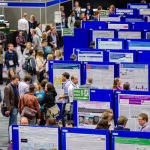 Abstract deadline: 30th November
Abstract deadline: 30th November
Just 4 days away! Please make sure your members don’t miss it
Spread the word.
 Earlybird reg deadline: 30th November
Earlybird reg deadline: 30th November
Save £55 by registering for BNA2019 by 30th Nov, it’s a no-brainer!
Register now.
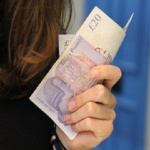 Reduced fees for your members
Reduced fees for your members
As a partering organisation YOUR members can save up to £125 on registration
How to get reduced fees.
SUBMIT YOUR ABSTRACT Deadline 30th November!
See the BNA2019 programme
Watch the Festival trailer
Full details: bna2019.org
Neuralnet2018 – Understanding neural networks: from dynamics to functions
Interested in understanding neural networks?
Electrophysiology – Photonics – Computational Neurosciences
Do not miss NeuralNet2018,
the next meeting of the GDR NeuralNet, 5-7 December 2018, 29 rue d’Ulm, in the heart of Paris
- a high-level conference with 16 high-profile invited speakers,
- posters and oral presentations selected on abstract,
- an intense and friendly meeting of our community,
And of course, the GDR minischool (3-5 December 2018):
Everything your students and postdocs wanted to know about
- spike sorting,
- multi-neuronal data analysis,
- new!: analysis of calcium imaging of neural networks.
More information at the conference website
Registrations have started! Submit your abstract to be a selected speaker!
Invited speakers:
Suliann Ben Hamed (ISC, Lyon) Cyril Herry (Neurocampus, Bordeaux)
Francesca Cacucci (UCL, London) Sonja Hofer (UCL, London)
Marco Dal Maschio (MPIN, Munich) Thomas Klausberger (MedUni Wien)
Georges Debregeas (UPMC, Paris) Gilles Laurent (MPI Frankfurt)
Stéphane Dieudonné (ENS, Paris) Christian Machens (Champalimaud, Lisbon)
Valentina Emiliani (U Paris Descartes, Paris) Olivier Marre (IDV, Paris)
Michael Halassa (MIT, Cambridge, MA) Matt Nolan (U Edimburgh)
Guillaume Hennequin (Cambridge, UK) Lisa Roux (Neurocampus, Bordeaux)
Informations pratiques
Lieu
Ecole Normale Supérieure
29 rue d’Ulm
75005 Paris
14e journée annuelle du Club de Neuroprotection
Cette journée sera consacrée à la Neuro-réparation, Neuro restauration, avec des interventions d’actualité et de haut niveau, et à quelques communications orales libres.
Télécharger la fiche d’inscription
Informations pratiques
Ouverture
9h-17h30
Lieu
Amphithéâtre de l’Institut de Myologie
Hôpital de la pitié Salpêtrière
PARIS 13e
XXXIIèmes Journées du GRAL
Les XXXIIèmes Journées du GRAL se tiendront les 25 et 26 janvier 2019 à l’Hôpital d’Instruction des armées de Laveran, à Marseille.
Le thème de cette année est « Traumatisme crânien léger et maladies neurodégénératives »
Inscription : https://www.eventmanager.fr/crm-1/www/event.do?idref=96&db=24&init&p=subscribe&iframeSubscribe
Informations pratiques
Lieu
Hôpital d'Instruction des armées de Laveran
Marseille
Concours Beautiful Science
En partenariat avec la Société des Neurosciences
Ouverture du concours d’images & sons
Beautiful Science
Parce que la science rime aussi avec beauté, créativité et émerveillement, redécouvrons le monde magnifique et mystérieux qui nous entoure à l’occasion du concours Beautiful Science, le concours d’images & sons lancé par la Société Française de Physique à l’occasion de son prochain Congrès Général.
Parrainé par le collectif OBVIOUS (ces 3 jeunes français à l’origine de la première peinture générée par intelligence artificielle), le concours est ouvert à tous et à toutes les sciences. Son thème « Montrer la science dans ce qu’elle a de plus beau et de plus élégant, de l’infiniment petit à l’infiniment grand ! »
Les meilleures œuvres (photos, vidéos, dessins, pistes audios etc.) seront exposées à la Cité des Congrès de Nantes du 8 au 12 juillet 2019 et publiées sur les sites et dans les revues partenaires.
Pour les lauréat(e)s de nombreux cadeaux sont à gagner : prix spéciaux offerts par la Fondation Nanosciences, l’AFM et l’UdPPC ; places de spectacles, livres, abonnements et plein d’autres surprises !
> Pour participer : rdv sur le site www.beautifulscience.fr <
Date limite du concours : 19 mai 2019
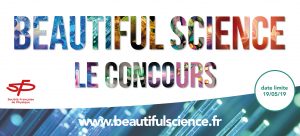
Cerebellum-Striatum-Hippocampus network
France Cerebellum Club, Ecole Neurosciences, Paris Sorbonne Université
Cerebellum-Striatum-Hippocampus network : bridging the gap between basic Science and Clinical Research.
Speakers
Peter Strick (University of Pittsburgh)
Denis Hervé (Institut du Fer à Moulin, Paris)
Kamran Khodakhah (A. Einstein College of Medicine, New York)
Daniela Popa (Ecole Normale Supérieure, Paris)
Samantha Kee (A. Einstein College of Medicine, New York)
Traian Popa (Ecole Polytechnique Fédérale de Lausanne)
Cécile Gallea (Institut du Cerveau et de la Moelle épinière, Paris)
Esther Krook-Magnuson (University of Minnesota, Minneapolis)
Laure Rondi-Reig (Sorbonne Université, Paris)
Marie Vidailhet (GH Pitié-Salpêtrière, Paris)
Tom Otis (University College London)
Organizers
Sabine Meunier
Laure Rondi-Reig
Daniela Popa
Marie Vidailhet
Registration is free but mandatory.
Fill out the registration form on https://form.jotformeu.com/90063488177363 before February 10th.
Seats are limited (150-170) and will be attributed on a « first come, first served » basis.
You are more than welcome to present your own work at the poster session.
Informations pratiques
Lieu
Pitié Salpêtrière hospital
Paris
Art of Neuroscience competition
The Art of Neuroscience is an international competition open to scientists and artists worldwide. We are looking for striking visualizations related to the field of neuroscience in its broadest sense. Submissions can include images or videos representing actual neural data or tissue, but also more abstract visualizations, sculptures or even musical scores that are in some way related to concepts about nervous tissue, the brain or cognition.
The deadline for this year’s competition is May 15th, 2019.
The winner will be awarded €1000.
Four runners up (honorable mentions) will be selected and awarded a €250 prize.
To submit your work, please register on the website. After registration is validated, you can login to submit your work.
- For more information please visit our website.
- For questions please send an E-mail to aon@nin.knaw.nl.
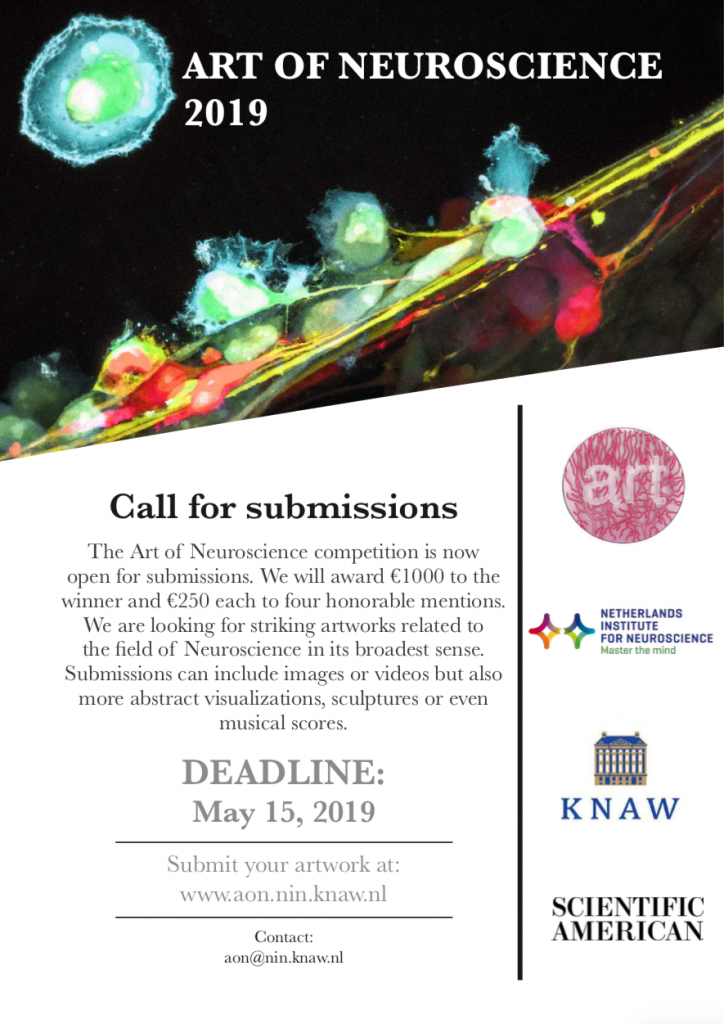
Colloque de la SCMC (Société Cerveau et Maladies Cérébro-Vasculaires)
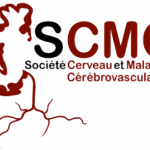 Date limite de réception des résumés : 1er février
Date limite de réception des résumés : 1er février
Date limite de réception des dossier pour le prix de thèse : 18 janvier 2019
Que vous soyez chercheur ou étudiant, si vous travaillez sur une thématique liée au cerveau, ce colloque est fait pour vous ! Le congrès annuel de la SCMC aura lieu à la Faculté de Médecine, Pôle Recherche les jeudi 28 et vendredi 29 mars prochains. Les étudiants sont vivement invités à proposer des communications orales. Il aura pour thème cette année le développement et la maturation du système cérébrovasculaire, en conditions physiologiques et pathologiques.
Le programme est divisé en trois demi-journées thématiques : la première est consacrée au développement et à la maturation du système cérébrovasculaire, la deuxième aura pour sujet le vieillissement cérébral pathologique et la dernière les effets du mode de vie sur le vieillissement cérébral. Téléchargez notre pré-programme !
Le prix de l’inscription à la réunion est de 30 euros pour les adhérents étudiants (sur justificatif) et 50 euros pour les adhérents chercheurs, et comprend l’accès à la réunion, les pauses-café et le repas du jeudi midi. Un dîner de gala est organisé le soir du jeudi 28 mars (+ 30 euros). Vous pouvez adhérer lors de l’inscription en ligne.
La réunion sera l’occasion d’écouter les différentes communications orales (10 minutes de présentation – 5 minutes de discussions) et présentations flash (3 minutes, 2-3 diapositives) qui auront été retenues. Cette année, nous permettrons également l’affichage de posters ! Vous trouverez en pièce jointe le fichier pour la rédaction de vos résumés.
Le conseil d’administration de la SCMC offrira en 2019 : deux prix de communication (présentation orale et poster), en plus du prix de thèse. La date limite de réception des résumés est fixée au 1er février 2019.
Le prix de thèse annuel de la Société d’un montant de 600 euros sera également attribué à une personne dont les travaux auront contribué à développer les connaissances sur le cerveau et les maladies cérébrovasculaires. Les conditions de candidature sont les suivantes :
• Avoir moins de 35 ans
• Être membre de la SCMC, à jour de sa cotisation
• Être doctorant(e) inscrit(e) en dernière année de thèse ou thèse soutenue depuis 1 an maximum
• Présentation des travaux lors de la journée du 29 mars 2019
Date limite de réception des dossier pour le prix de thèse : 18 janvier 2019
Les résumés et les candidatures pour le prix de thèse sont à envoyer à l’adresse suivante : secretariat@scmc.asso.fr (merci d’indiquer comme objet du mail : « Résumé SCMC 2019 » et « Prix de thèse 2019 », respectivement).
L’assemblée générale de la Société sera ouverte à tous les membres à jour de leur cotisation 2019.
La date-limite d’inscription au colloque est fixée au vendredi 14 mars 2018, sur le site internet uniquement : http://www.scmc.asso.fr/index.php/agenda/a_venir/17.
Informations pratiques
Lieu
Faculté de Médecine, Pôle Recherche, Lille
L’Homme Cérébral
 La Fondation pour l’Étude du Système Nerveux, avec le soutien de TRB Chemedica et de Magnoglia, a le plaisir et le privilège de présenter au public monégasque un plateau exceptionnel de grands médecins et chercheurs spécialistes du cerveau, qui présenteront leurs travaux sur le fonctionnement et les maladies du système nerveux au l’après-midi du Samedi 30 Mars.
La Fondation pour l’Étude du Système Nerveux, avec le soutien de TRB Chemedica et de Magnoglia, a le plaisir et le privilège de présenter au public monégasque un plateau exceptionnel de grands médecins et chercheurs spécialistes du cerveau, qui présenteront leurs travaux sur le fonctionnement et les maladies du système nerveux au l’après-midi du Samedi 30 Mars.
Orateurs :
- Pierre Magistretti, Pierre Magistretti, médecin et neurobiologiste est actuellement Doyen de la Division de Biologie et Sciences de l’environnement à King Abdullah University of Science and Technology en Arabie Saoudite. Il est également Professeur Emérite à l’Université de Lausanne et à l’Ecole Polytechnique Fédérale de Lausanne au sein de laquelle il a dirigé le Brain Mind Institute de 2005 à 2012. De 2004 à 2013, il a été le Founding Director du Centre de Neurosciences Psychiatriques de l’Université de Lausanne et du CHUV.
- Bruno Dubois, Bruno Dubois est professeur de Neurologie à Sorbonne Université à Paris.
- Richard Frackowiak, Neurologue et ancien doyen-directeur de l’Institut de Neurologie, Queen Square à l’University College London, spécialiste de l’imagerie cérébrale et de la maladie d’Alzheimer. Codirecteur du Human Brain Project.
- François Ansermet, Professeur honoraire à l’Université de Genève et de Lausanne, après avoir été directeur du Département Universitaire de Psychiatrie à la Faculté de médecine de l’Université de Genève, professeur ordinaire de pédopsychiatrie et chef du Service de psychiatrie de l’enfant et de l’adolescent aux Hôpitaux Universitaires de Genève.
- Grégoire Courtine, Ecole Polytechnique Fédérale de Lausanne, spécialiste de l’étude et des approches réparatrices des lésions de la moëlle épinière
Modératrice : Nancy Cattan, Journaliste scientifique, Nice Matin.
Informations pratiques
Ouverture
14h - 20h
Lieu
Grimaldi Forum, Monaco
Public cible
Conférence gratuite et public. Médecins et opérateurs de Santé sont également les bienvenus. La conférence se tiendra en français avec une traduction simultanée en langue anglaise.
BNA2019 FESTIVAL OF NEUROSCIENCE
The largest event of its kind throughout Europe in 2019, the British Neuroscience Association – in partnership with Neuroscience Ireland (NI) and the British Society for Neuroendocrinology (BSN) – is excited to be bringing the international Festival of Neuroscience to Dublin, a city of culture, excitement and neuroscience!
In April 2019, at the Convention Centre Dublin (CCD), the British Neuroscience Association will host its fourth Festival of Neuroscience.
The first Festival (BNA2013, London) set the template for a completely novel forum, where other organisations with an interest in brain research were invited to join the BNA to create a cross-disciplinary and celebratory neuroscience event, bringing together fundamental research with clinical expertise and public engagement as well. Subsequent Festivals (BNA2015 in Edinburgh; BNA2017 in Birmingham) confirmed the success and popularity of this innovation; each one has attracted 1150-1500 delegates, a remarkable thirty partner organisations have taken part to date, and each has created a genuinely diverse and stimulating mix of neuroscientific interests.
In 2019 the festival will be held in the Republic of Ireland.
The French Neuroscience Society will be associated to this event and present a joint symposium entitled « Brain network development ».
Informations pratiques
Lieu
Dublin, Ireland
Réunion du Club des Ganglions de la Base
• 8h30 – 8h50h : Accueil des participants
• 8h50 – 9h : Présentation du CGB par sa présidente, Véronique Sgambato
• 9h – 10h : Présentation par de jeunes scientifiques de leur travaux de doctorat ou post-doctorat (chaque présentation : 5 minutes + 5 minutes de questions)
Modérateurs : Eric Burguière & Nicolas Mallet
9h – 9h10: Emilie Faggiani (Bordeaux) “Controlled neural organoids grafting promotes functional recovery in experimental parkinsonism”.
9h10 – 9h20 : Cassandre Vielle (Marseille) “ Role of STN in the behavior of intracranial auto-stimulation”.
9h20 – 9h30 : Sirenia Lizbeth Mondragon (Paris) “Closed-loop optogenetic excitation of striatal parvalbumin interneurons to prevent compulsive behaviors”.
9h30 – 9h40: Arnaud Pautrat (Grenoble) “ Processing of nociceptive information in the parabrachial nuclus, SNr and STN in parkinsonian rat models”.
9h40 – 9h50 : Margaux Teil (Bordeaux) “Zinc dyshomeostasis and effect of zinc ionophore Clioquinol in models of Parkinson’s Disease”.
9h50 – 10h : Gisela Zalcman (Grenoble) “Procedural memory and dynamics of striatal networks”.
• 10h – 10h30 : Pause-café
• 10h30 – 11h30 : Suite des présentations (chaque présentation : 5 minutes + 5 minutes de questions)
Modérateurs : Elodie Fino & Benjamin Dehay
10h30 – 10h40 : Lorena Delgado (Bordeaux) “Cellular and synaptic alterations of SNr neurons in experimental models of Parkinson’s disease”.
10h40 – 10h50 : Gwenäelle Laverne (Marseille) “Modulation of corticostriatal transmission by striatal cholinergic interneurons in normal and parkinsonian conditions: electrophysiology and optogenetics approaches ex vivo”.
10h50 – 11h : Thibault Dufourd (Grenoble) “MicroRNAs in impulsive behaviors as potential markers for impulse control disorders in Parkinson’s disease”.
11h – 11h10 : Eliana Lousada (Paris) “Characterization of cortico-striatal myelination in the context of pathological repetitive behaviour”.
11h10 – 11h20 : Marie-Laure Arotçarena (Bordeaux) “TFEB-driven expression prevents neurodegeneration in a multiple system atrophy mouse model”.
11h20 – 11h30 : Jonathan Pesce (Marseille) “Role of striatal cholinergic interneurons in the striatal microcircuitry”.
• 11h30 – 12h30 : Assemblée Générale et Clôture de la réunion
Contact : veronique.sgambato@inserm.fr
Informations pratiques
Ouverture
8h30 - 12h30
Lieu
Casino Municipal
1 avenue Edouard VII
Biarritz
FRANCE
The spinal cord: basic research to clinical practice
8h30 – 9h00 : Registration / Check in
9h00 – 9h10 : Welcome and Introduction
Keynote Speakers:
- 9h10 – 9h50 : Gareth Miles (University of St Andrews)
« Functional analyses of human iPSC-based models of ALS reveal potential pathogenic mechanisms »
- 9h50 – 10h30 : John Martin (City College of New York)
« Modulating neural activity to repair the corticospinal system after spinal cord injury »
Motor session
- 10h50 – 11h15 : Nicolas Wanaverbecq (Marseille, INT)
« Do CSF contacting neurons modu- late spinal motor network in the mouse? »
- 11h15 – 11h40 : Patrick Decherchi (Marseille, ISM)
« Biomaterials for spinal cord repair »
- 11h40 – 12h05 : Pierre Hugue Roche (Marseille, APHM)
« Early management of spinal cord injury – where do we stand »
- 12h05 – 12h30 : Marjorie Kerzoncuf (Marseille, INT)
« Management of spasticity after spinal cord injury: current techniques and future directions ».
Imaging session
- 14h00 – 14h25 : Christophe Leterrier (Marseille, INP)
“The nano-architecture of the axonal cytoskeleton revealed by superresolution imaging»
- 14h25 – 14h50 : Hervé Rigneault (Marseille, Institut Fresnel)
“Coherent Raman imaging: tech- niques and applications in neurosciences.”
- 14h50 – 15h15 : Franck Debarbieux (Marseille, INT)
”Intravital dynamic imaging of neuroinflamma- tory cellular events following implantation of a neuroprosthesis in the traumatized spinal cord”
- 15h15 – 15h40 : Guillaume Duhamel (Marseille, CRMBM)
“In vivo measurement of the myelin by inhomogeneous magnetization transfer (ihMT)”
Sensory session
- 16h10 – 16h35 : Cyril Rivat (Montpellier, Institut des neurosciences)
« Functional interaction between μ opioid and FLT3 receptors in sensory neurons produces analgesic tolerance and hyperalgesia »
- 16h35 – 17h00 : Emmanuel Bourinet (Montpellier, IGF)
« Low threshold voltage gated calcium channels regulates pathologi- cal integration of neuropathic pain in spinal dorsal horn circuits »
- 17h00 – 17h25 : Matilde Cordero-Erausquin (Strasbourg, INCI)
« Implication of the cortico-spinal pathway in sensory- motor control »
- 17h25 – 17h50 : Aziz Moqrich (Marseille, IBDM)
« Functional significance of primary sensory neurons diversity: A focus on chronic pain »
18h00 : Wine & Cheese
> Registration contact: julie.peyronnet-roux@univ-amu.fr
> Scientific committee: Frédéric Brocard, Virginie Callot, Aziz Moqrich and Geneviève Rougon
Informations pratiques
Ouverture
8h30 - 18h00
Lieu
Institut Neurosciences Timone
27 boulevard Jean Moulin
Marseille
MS 2019 : conference on multiple sclerosis
50 years of international & collaborative research
Organized by Fondation ARSEP
08:30 Registration
09:00 Jean-Frédéric DE LEUSSE (President of ARSEP Foundation): Welcome address
9:10 Catherine LUBETZKI (Paris, France) : 50 years of actions of ARSEP Foundation
9:30 Immunology
Chair: Hartmut WEKERLE (Martinsried, Germany) – An introductive presentation to 50 years of immunology
9:45 Roland LIBLAU (Toulouse, France) & Britta ENGELHARDT (Bern, Switzerland): Focus on T cell: endothelial cell interactions in neuroinflammation
10:25 Coffee break
10:55 Clinical Research
Chair: Sandra VUKUSIC (Lyon, France) – An introductive presentation to 50 years of clinical research
11:10 Emmanuelle LERAY (Rennes, France) & Elaine KINGWELL (Vancouver, Canada): Effect of beta-interferon treatment on survival with MS: A France – Canada collaborative study
11:50 Posters teaser*
Chair: Jean PELLETIER (Marseille, France) & Pierre-Olivier COURAUD (Paris, France)
12:50 Lunch & posters session
14:50 Neurobiology
Chair: Bernard ZALC (Paris, France) – An introductive presentation to 50 years of neurobiology
15:05 Fabian DOCAGNE (Caen, France) & Diego CLEMENTE (Toledo, Spain): From Blood-brain barrier protection to remyelination: French-Spanish connection in MS research
15:45 Imaging
Chair: Isabelle BERRY (Toulouse, France) – An introductive presentation to 50 years of imaging
16:00 Bruno STANKOFF (Paris, France), Bertrand KUHNAST (Orsay, France) & Federico TURKHEIMER (London, UK): PET imaging of neuroinflammation and remyelination in MS: from methodological optimizations to a novel conception of disability worsening
16:40 Prizes for the best poster and the best teaser
16:50 End of the meeting
Organizing committee : Scientific Committee of ARSEP Foundation
TRAVEL GRANTS FOR YOUNG RESEARCHERS
ARSEP Foundation offers meeting « travel grants » to help young researchers to defray the costs of their travel expenses to reach Paris and their accommodation for one night.
Applicants must submit a poster as first author and presented it on the day of the meeting.
See all the requirements on the website.
POSTER TEASER
This short presentation is for doctoral & post-doctoral researchers only. The presentation will last from 60 to 120 minutes (time for each presentation will be the same but the duration will be indicate later).
Person interested in doing such a presentation have to indicate on the website when they put on their abstract.
Even if the researcher participates to the teaser, he/she has to present a poster during the posters’ session
Deadline for abstract submission : March 26, 2019
Deadline for registration (free but mandatory) : May 20, 2019
Information & Registration (on line) : visit our website.
Informations pratiques
Ouverture
8h30 - 16h50
Lieu
Institut des Cordeliers
Paris, FRANCE
The International Neuromodulation Society’s 14th World Congress
The International Neuromodulation Society’s 14th World Congress will be held in gorgeous Sydney, Australia on 25 – 30 May 2019, so start making your own plans to join us down under. If you have ever dreamt of visiting Australia, this is your opportunity. Following the INS 2017 congress in Edinburgh, our most successful congress to date, we have received much positive and constructive feedback that our congress and scientific committees will take to heart while developing the program for Sydney. We thank everyone who has made the effort to complete attendee evaluations, as your input is critical to improving upon our organization’s educational offerings. With enthusiastic support from The Neuromodulation Society of Australia and New Zealand, our local host chapter who is very excited to welcome you, we assure you this is an event not to be missed and we invite you to Save the Date!
- Visit the INS 2019 website to learn more about the congress and register
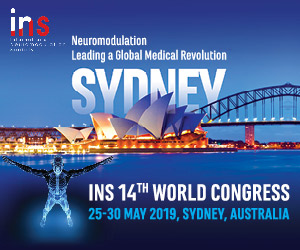
Informations pratiques
Lieu
The Sydney Convention and Exhibition Centre (ICC Sydney)
Address: 14 Darling Dr, Sydney NSW 2000, Australia
Tel: +61 2 9215 7100
Dynamics of the brain: temporal aspects of computation
The brain is an extraordinarily complex dynamical system whose critical operations run over timescales ranging from the sub-millisecond (e.g., auditory perception), to the circadian (e.g., sleep and homeostatic phenomena), to weeks and years (e.g., learning and memory). Brain circuits express collective properties that can be detected macroscopically, such as traveling waves or oscillations, but recent developments also reveal, through large scale recordings of neuron populations, smaller-scale spatiotemporal phenomena such as transient dynamics (spatio-temporal multi-neuronal activation patterns in response to odours, in preparation for action, in “replay » during sleep). Those dynamics suggest strong constraints on the orchestration of activity in brain circuits. This conference will explore experimental and theoretical approaches to understand the underpinnings of such dynamics and their relevance for computation in the brain.
Organised by FENS in collaboration with Lundbeck Foundation, awarder of The Brain Prize, these bi-annual conferences bring together outstanding researchers in key areas of contemporary neuroscience to discuss current concepts and define challenges for future research.
- Start your application
Early application deadline: 19 February 2019
Regular application deadline: 14 March 2019 - Preliminary Programme
- Check here the Application Overview
Co-chairs:
Gilles Laurent, MPI Brain Research, Frankfurt, Germany
Ila Fiete, MIT, USA
Contact:
For enquiries and press registration, please contact: brain@fens.org.
Informations pratiques
Lieu
Rungstedgaard, Denmark
4th Eurogenesis Meeting
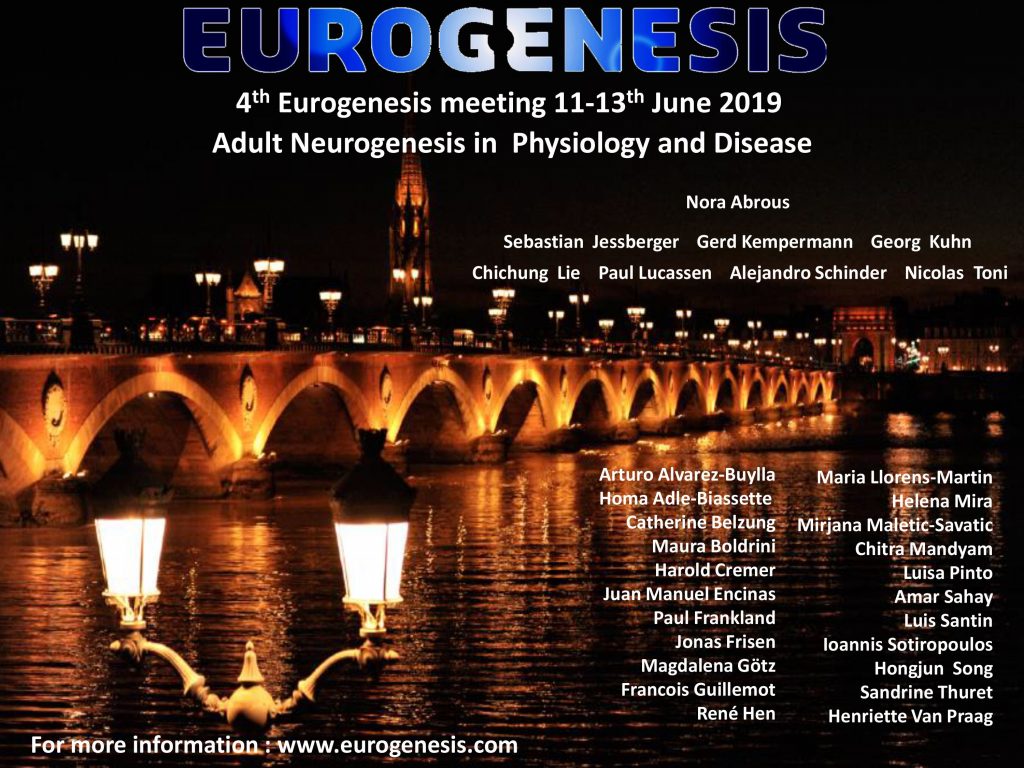
-
Scientific Program
Hosted in the historic heart of Bordeaux, the full of light and bewitching capital of wine, 4th Eurogenesis conference will cover several aspects of adult neurogenesis function and its related pathologies. It aims to highlight the benefits of interdisciplinary research for gathering innovative knowledge in adult neural stem cells biology, and will promote new opportunities for cross-border disciplines interactions.
> Click here to see the program
-
Registration & Abstract Submission
Please see the website for registration fees, abstract guidelines and to access the online forms.
> Click here to submit your abstract
-
Key Date to Remember
Registration and abstract submission deadline : 30 April 2019.
Visit the 4th Eurogenesis website for details & further updates.
In case of any questions, contact us!
Informations pratiques
Lieu
Pôle juridique et judiciaire
35 Place Pey Perland
Bordeaux, France
28th International Conference on Neuroscience and Neurochemistry
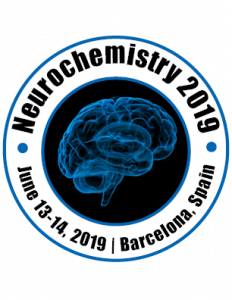
28th International Conference on Neuroscience and Neurochemistry scheduled during June 13-14, 2019 in Barcelona, Spain is a unique forum where the global researchers share their leading research work in neuroscience and it’s interdisciplinary for the better health care of the society.
The conference is systemized on the theme « Dynamic Challenges and Approaches in Neuroscience and Neurochemistry » that covers – Neuroscience and Neurological Disorders, Neurochemistry, neurology, neurosurgery and many more.
The deadline for early bird would be March 21, 2019 and final registration would be June 13, 2019.
- More information on the conference website.
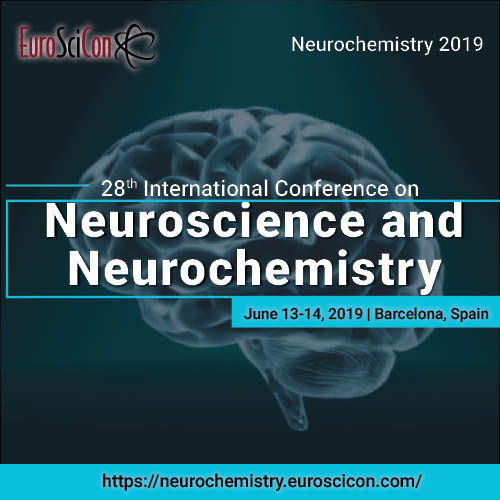
Informations pratiques
Lieu
Barcelona, Spain
Neurosciences in Intensive Care International Symposium 2019 (NICIS)
Neuro-prognostication in the ICU:
from basic neuroscience to medical decision
The vision of Neurosciences in Intensive Care International Symposium (NICIS) is to accelerate transformative advances in the care and science of patients with critical illness and neurological injury. Participants are clinicians and scientists who have a common aspiration to translate discoveries in the neurosciences into better patient-centered outcomes. Since 2017, two NICIS events are offered, one in Washington (NICIS.America) and the other in Paris (NICIS.Europe), held respectively in March and June.
The 2019 edition of NICIS-Europe is titled Neuro-prognostication in the ICU: from basic neuroscience to medical decision. It will be held on June the 20th-21st 2019 at the Institut Pasteur in Paris.
NICIS-Europe 2019 builds on the success of previous editions, which were devoted to “The Neurosciences of critical illness and acute CNS infection” (2018); « Critical illness: Ageing, frailty and resilience » (2017), « Neuro-inflammation in Critical illness: From brain signalling to brain insult » (2016), « Neuroscience of repair, regeneration and recovery from critical illness » (2015), and « Neurobiology of stress » (2014).
All conference participants are invited to submit abstracts of original data for consideration at our Poster Presentation Session.
We look forward to welcoming you in June for NICIS-EUROPE 2019 !
> More information on our website
> Discover the scientific program
Informations pratiques
Lieu
Institut Pasteur
Paris - France
7th Mediterranean Neuroscience Conference
La 7th Mediterranean Neuroscience Conference se tiendra à Marrakech au Maroc. Après Malte en 2017, Pula en Sardaigne en 2015, Istanbul en 2012 et Alexandrie en 2009, la Société Méditérranéenne de Neurosciences (MNS) a décidé de nous confier l’organisation de cet évènement dans un pays sud-méditerranéen afin de faciliter la participation des Neuroscientifiques du Sud et d’Afrique. Ce congrès international attire de plus en plus de participants du monde entier puisque nous avons reçu 71 propositions de symposiums avec des orateurs de 33 pays différents.
Informations pratiques
Lieu
Marrakech, Maroc
ENCODS 2019
Neuroscience is one of the fastest-growing disciplines, which has reached unprecedented size and diversity. Given the interdisciplinary nature of neuroscience, interaction between different sub-disciplines is a key to advance the field.
ENCODS 2019 aims to offer a unique platform for early-career neuroscientists from different backgrounds to interact with both international renowned scientists and fellow students. We believe that bringing together neuroscientists around the world will foster discussions, collaborations, and to prepare early-career researchers to embrace future opportunities and challenges. ENCODS 2019 features talks by world-leading neuroscientists, workshops on transferable skills, PhD talks, poster sessions, and career talks.
Application deadline extended: 15 March 2019
The main target participants are PhD students in neuroscience-related disciplines from around the world, although people with strong interests in neuroscience from other early-career stages are also encouraged to apply. We strongly encourage students from underrepresented backgrounds to apply, and would like to offer travel grants and fee waivers for those in need.
- Start your application
- Download here the ENCODS 2019 poster
The event will take place at The Francis Crick Institute, London, United Kingdom on 24th-25th June 2019.
For enquiries, please contact: 2019@encods.eu.
Follow ENCODS 2019 on social media ![]()
![]()

Informations pratiques
Lieu
The Francis Crick Institute, London, United Kingdom
Summer School 2019: « Experimental Models for Neurodegenerative Disease: From Cells to Model Organisms »
L’objectif de la LiCEND Summer School 2019: « Experimental Models for Neurodegenerative Disease: From Cells to Model Organisms » est de présenter un large panel de modèles expérimentaux et d’applications technologiques dédié à l’étude des maladies neurodégénératives.
Dans l’esprit d’ouvrir la formation aux participants internationaux, l’ensemble de la formation sera assurée en anglais.
La majorité des sessions s’articuleront autour d’un modèle expérimental avec 2 à 4 interventions par session effectuées par des experts reconnus. La règle des 3R a été mise en compte dans l’organisation des sessions afin de “remplacer” en présentant des modèles alternatifs aux animaux et afin de “raffiner ” les expérimentations en choisissant les modèles les plus pertinents pour l’investigation des maladies neurodégénératives:
Modèles cellulaires;
Modèles invertébrés (C. Elegans, Drosophile);
Modèle poisson-zèbre;
Modèles petits mammifères (souris, rat);
Modèles gros mammifères;
Des sessions plus transversales s’y joindront: sessions sur les thématiques actuelles en clinique, session éthique sur la communication au sujet de l’expérimentation animale, et conférence grand public sur le développement de nouveaux traitements.
Il est à noter que le nombre de place est limité à 60 participants.
Un tarif préférentiel est appliqué jusqu’au 30 avril.
LiCEND Summer School 2019: Experimental Models for Neurodegenerative Disease: From Cells to Model Organisms
The objectives of the LiCEND Summer School are to present a large selection of experimental models and technological applications dedicated to the investigation of neurodegenerative diseases.
The LiCEND Summer School 2019 is based on the expertise of the Lille neuroscientists’ teams as well as highly-skilled international and French specialists. Gathering of such experts allows to propose an attractive and innovative training to the (future) researchers on neurodenegerative diseases.
Objectives: to present a large selection of experimental models and technological applications dedicated to the investigation of neurodegenerative diseases.
Currently, different experimental models are used to study the neurodegenerative mechanisms and associated processes, such as normal ageing, and to investigate a large variety of parameters: genetic and environmental factors, impact of metabolism, interaction with the immune system, cellular and molecular mechanisms, molecular screening, evaluation of therapeutic strategies… It is crucial to keep this in mind and to choose accordingly for each research project, which model(s) would be the most appropriate to fulfill the needs but also to know their limits (scientific relevancy, available tools and technologies, costs…).
The LiCEND Summer School 2019 “Experimental approaches to study neurodegenerative disorders in biology: from the cell dish to the model organisms” aims to provide students and professionals, a global view of experimental models of neurodegeneration with their respective “pro” and “cons” aspects.
Each session will be organized around one type of experimental models with 2 to 4 talks given by recognized specialists. The 3R rules have been considered while building those sessions, presenting alternative models to replace animals or allowing researcher to refine their experimentation by choosing the most efficient models to explore neurodegenerative diseases.
- Cellular models
- Invertebrae models (C. Elegans, drosophila)
- Zebrafish model
- Small mammals models (mouse and rat)
- Large mammals models
Application open until the 26/06/2019 _ Early bird fee until the 30/04/2019
Limited number of application: 60
> More information on our website
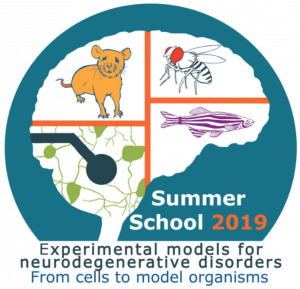
Informations pratiques
Lieu
Faculté de Médecine de Lille – “Pole Formation”
2 Avenue Eugène Avinée
59120 - Loos
France
CONGRESS BRAIN & BRAIN PET 2019
On behalf of the ISCBFM President and the Local Organizing Committee, we invite the members of the French Neuroscience Society to join us at YOKOHAMA BRAIN & BRAIN PET 2019, the 29th International Symposium on Cerebral Blood Flow, Metabolism and Function and the 14th International Conference on Quantification of Brain Function with PET to be held in Yokohama, Japan from July 4th – 7th 2019. Following the tradition of previous meetings, BRAIN & BRAIN PET 2019 will cover numerous aspects within the area of neuroscience research, particularly those related to brain function and metabolism, cerebral blood flow, the function of the neurovascular unit and the blood-brain barrier, brain imaging, brain repair, and cerebrovascular pathology.
Our goal is to present the state-of-the art and novel discoveries that will increase our understanding of brain function under physiological and pathological conditions through basic, translational, and clinical investigation. Leading scientist in these fields, members of the International Society for Cerebral Blood Flow and Metabolism (ISCBFM, http://iscbfm.org) and other exceptional scientists will participate as in our previous biannual meetings. The program committee is actively working to create an engaging scientific program that will be of interest to scientists working in all fields of neuroscience, from basic to clinical and applied research.
Yokohama, the second largest city in Japan, is located next to Tokyo along the coastline of the Pacific Ocean. The city has long prospered as an international port city trading with foreign countries that opened to the world in 1859, as it had favorable facilities to host ships from abroad. Since that time, Yokohama has been vigorously acquiring new cultures and information from other countries, and it developed a reputation as the source for new information from abroad that was disseminated around Japan, hence its nickname as the birthplace of Japan’s modern culture.
For full information, guidelines and online submission: http://brain2019.jp/index.html
Informations : E-mail
Informations pratiques
Lieu
Yokohama, Japan
2019 Neurodynamics Symposium
First Edition of Neurodynamics Symposium in Grenoble !!
Recent technologies have made it possible to study the in-vivo physiology of neurons, the dynamics of large scale neuronal ensembles and the neural circuits that connect different structures…
but how do these give rise to different brain functions?
This symposium aims to link three components: conceptual expertise, computational modeling and state-of-the-art methodologies, to advance our understanding of brain functions related to cognition and motivation.
The program will enclose poster sessions, oral presentations selected on abstract and oral talks of invited speakers (preliminar program to be announced soon!).
When? 4-5 July, 2019
Where? Maison Minatec Conference Center, Grenoble, France
REGISTRATION OPENING and ABSTRACT SUBMISSION : 1st February 2019 – May 15th 2019
Informations pratiques
Lieu
Grenoble
FENS Regional Meeting 2019
Jointly organized by the Neuroscience Societies of Serbia, Romania and Turkey,
the FRM 2019 will take place in Belgrade, Serbia, from 10 to 13 July 2019
It is our great pleasure to announce that the next FENS Regional Meeting, FRM2019, will be in Belgrade, the capital of Serbia. The meeting will be jointly organised by the Neuroscience Societies of Serbia, Romania and Turkey.
These three societies come together for the first time with the aim of boosting the development of neuroscience in the entire region by organising a meeting with an exciting programme reflecting the latest discoveries and technological developments.
The last FENS regional meeting was held in Pécs, Hungary, 20-23 September 2017 and organised by the Hungarian Neuroscience Society. Its excellent mix of scientific, social and outreach events attracted nearly 900 participants.
FENS Regional Meetings are national or regional scientific meetings organised by FENS member societies with strong FENS support. FRMs are biennial meetings and alternate with the FENS Forums.
Deadline for abstract submission and early registration extension – 1 May 2019
> Discover the preliminary programme
> More information on our website

Informations pratiques
Lieu
The Crowne Plaza Belgrade
Vladimira Popovica 10
11070 Belgrade, Serbia
Advanced Photonic Imaging in Neuroscience 2019
Au cours des dernières décennies, l’imagerie photonique et ses différentes applications ont connu des développements importants qui en font aujourd’hui des outils indispensables à la recherche en neurosciences, que ce soit pour l’exploration anatomique ou fonctionnelle sur des modèle in vitro ou in vivo. L’objectif premier du Colloque « Advanced Imaging in Neuroscience (APIN 2019) » est de présenter à la communauté des neurosciences les dernières avancées et applications dans le domaine et de réunir des chercheurs nationaux et internationaux autour d’un événement majeur et ainsi permettre des échanges et la mise en place de collaboration future. L’événement s’adresse également à des jeunes chercheurs (Doctorants et Postdoctorants) en leur permettant de présenter leur travaux, d’élargir leur réseau et de rencontrer de futurs employeurs.
Inscription au Congrès APIN du 18 mars 2019 au 17 mai 2019
sur Azur Colloque : cliquez ici
> Découvrez le programme du colloque.
> Plus d’informations sur notre site web.
> Contact : nicolas.wanaverbecq@univ-amu.fr.
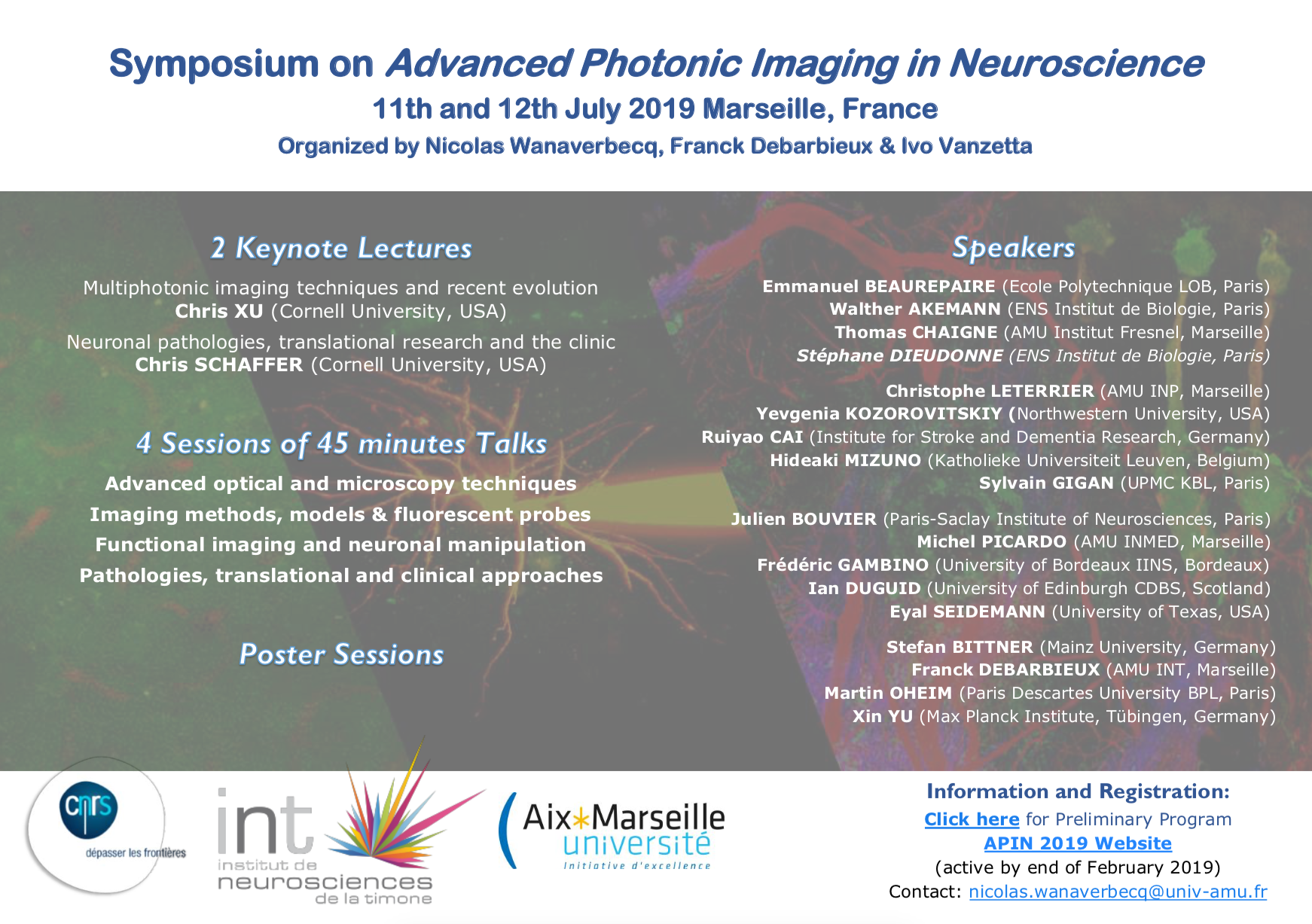
Informations pratiques
Lieu
Institut de Neurosciences de la Timone
Campus Timone
Marseille
FRANCE
IBPS Summer School on Endocrine Disruptors
The Institut de Biologie Paris-Seine organizes an international summer school targeted primarily, but not exclusively, at PhD students and post-docs on the topic of endocrine disruptors.
Targeted primarily to PhD students and post-docs, this summer school will present the theory and practice on Endocrine Disruptors. During 5 days of lectures and practival work, participants will acquire a better approach and visibility on the endocrine disruption research.
Deadline for application: April 30, 2019
APPLY NOW!
Invited lecturers:
- Jean-Philippe Antignac (Laberca, Nantes)
- Nicolas Cabaton (INRA, Toulouse)
- Nicolas Chevalier (Université Nice Sophia Antipolis)
- Barbara Demeneix (Muséum d’Histoire Naturelle, Paris)
- Jean-Baptiste Fini (Muséum d’Histoire Naturelle, Paris)
- Fabien Jourdan (INRA, Toulouse)
- Laura Maxim (Sorbonne Université, Paris)
- Sakina Mhaouty Kodja (IBPS, Sorbonne Université, Paris) Cécile Michel (Anses, Paris)
- David Siaussat (Sorbone Université, Paris)
- Catherine Viguié (INRA, Toulouse)
Organizing committee:
- Sakina Mhaouty-Kodja, Sorbonne Université, CNRS, Inserm, IBPS, Neuroscience Paris-Seine
- Catherine Viguié, Toxalim INRA/ENVT/INP/UPS, Toulouse
- Jean-Baptiste Fini, CNRS, Muséum National d’Histoire Naturelle, Evolution des Régulations Endocriniennes, Paris
- Hervé Chneiweiss, Sorbonne Université, CNRS, Inserm, IBPS, Neuroscience Paris-Seine
- Hélène Hardin-Pouzet, Sorbonne Université, CNRS, Inserm, IBPS,Neuroscience Paris-Seine, IBPS
- Héloïse Hervé, Sorbonne Université, CNRS, IBPS, Chargée de communication de l’IBPS
- Françoise Commercy, Sorbonne Université, CNRS, IBPS, gestionnaire
- Isabelle Tratner, Sorbonne Université, CNRS, IBPS, Déléguée aux affaires scientifiques de l’IBPS
> More information on our website
> Flyer IBPS Summer School on Endocrine Disruptors
Informations pratiques
Lieu
Institut de Biologie Paris-Seine, Pierre et Marie Curie Campus, Sorbonne University
7-9, quai Saint Bernard, 75005, Paris, France
Public cible
Limited to 16 participants
Moyens de paiement
180 € (includes costs of accommodation, breakfast and lunch, as well as the gala dinner)
XVI European Biological Rhythms Society Congress
This year’s congress will bring together the top chronobiologists and sleep experts from around the world. They will tell us all about their most recent findings and best scientific stories, and what to expect in the future, in chronobiology and chronomedicine. The topics will cover molecular biology, non-visual photobiology, chrononutrition, chronomolecules, metabolism, imaging, mathematical modelling, big data, machine learning, shift work, cancer… And more!
The meeting will also be a unique opportunity to share your ideas, benefit from exchanges and discussions with colleagues, and disseminate your own results on a worldwide stage. Trainees and early-career researchers will be offered a five-star Trainee Day with the best researchers in the field!
Where is this happening? In beautiful Lyon, France’s second city, an energetic metropolis and an ancient capital with a superb old town.
We look forward to seeing you in beautiful Lyon in August 2019!
Claude Gronfier, Congress Chair
Debra J. Skene, EBRS President
Yoshitaka Fukada, JSC President
> More information on our website
Informations pratiques
Lieu
Université Claude Bernard Lyon 1
Domaine de la Buire – Site Laennec
7 rue Guillaume Paradin
69008 Lyon
France
32nd ECNP Congress
The annual ECNP Congress is Europe’s premier scientific meeting for disease-oriented brain research, annually attracting between 4,000 and 6,000 neuroscientists, psychiatrists, neurologists and psychologists from around the world.
Programme and further information available on the meeting website.
Informations pratiques
Lieu
Bella Center Copenhagen
Center Boulevard 5
2300 Copenhagen
Denmark
NeuroBridges2019 summer school
NeuroBridges2019 is a summer school which will take place between September 8 and September 19, 2019 in Cluny, France. The school will provide an overview of theoretical and experimental frameworks used to study a variety of decision making processes. It will cover a different model systems from rats to humans and a plethora of decision making mechanisms.
Another objective of Neurobridges is to bring together Mediterranean and Middle Eastern scientists, in order to promote scientific cooperation between young researchers from these countries. The organizers of NeuroBridges are convinced that such scientific collaborations can lead to personal relations, which eventually may alleviate the political distress in the Middle East.
For more information and application: visit our website.
NeuroBridges is co-organized by Ahmed El Hady (Princeton Neuroscience Institute, USA), Yonatan Loewenstein (Hebrew University of Jerusalem, Israel) and David Hansel (CNRS, Paris, France).
Faculty:
Merav Ahissar (Hebrew U.)
Rafal Bogacz (Oxford)
Thomas Boraud (CNRS)
Mathew Diamond (SISSA)
Ido Erev (Technion)
Mehdi Khamassi (CNRS)
Najib Majaj (NYU)
Contact us: neurobridges2019@gmail.com
Informations pratiques
Lieu
Le Centre de Conférences Internationales de Cluny (CCIC)
71 250 - Cluny
FRANCE
Public cible
The school is intended for graduate students and postdocs, primarily (but not only) from the Middle East and the Mediterranean region either working in their home countries or abroad.
Applicants should have some background in related fields in neuroscience or cognitive psychology.
Moyens de paiement
All costs of registration and accommodation will be covered by the organizers.
30th Ion Channel meeting
Since 1989, the « Association Canaux Ioniques » organizes a yearly meeting which aims at gathering the international scientific community working on all aspects of Ion channels. This meeting allows academics, students, as well as scientists from the pharmaceutical industry to share their latest advances in a relaxed but nonetheless studious atmosphere.
The 2019 meeting will also be the occasion to celebrate the 30th anniversary of the association.
We hope that many of you will be able to attend the 30th ion channel meeting that will take place in Sète, from 8th to 11th September 2019.
Important dates:
• Registration and Abstract submission opening: April 5th, 2019
• Registration and Abstract submission deadline: June 30th, 2019
• After this date an extra fee of 30% will be applied
• No registration will be accepted after July 30th, 2019
Check the meeting website for further information.
Informations pratiques
Lieu
Le Lazaret
La Corniche
223 Rue Pasteur Benoît
34200 Sète
FFAB-R Research Congress on ED
Le groupe de recherche de la FFAB (Fédération Française Anorexie Boulimie) organise le 12 septembre 2019 une journée thématique dédiée à la recherche sur les Troubles du Comportement Alimentaire, journée adossée au congrès international de l’ECED (European Council of Eating Disorders).
La journée s’articulera autour du thème : »Early factors of vulnerability to eating disorders: environment, genes and other risk factors ».
Vous trouverez ci joint le website: https://sites.google.com/view/ffab-research-congress-2019/ où figurent toutes les informations pratiques en lien avec ce congrès (programme de la journée, inscription, soumission d’abstracts). Si vous souhaitez davantage d’informations, n’hésitez pas à envoyer un mail à ffab.research@gmail.com
Informations pratiques
Lieu
Paris
International inauguration Conference of the Institut de l’audition
September 16 and 17, 2019 at the Collège de France, in central Paris.
This conference will formally mark the birth of the Institut de l’Audition, a new Institut Pasteur research center aiming to promote an integrative approach to auditory neuroscience and to develop innovative strategies for the diagnosis and treatment of hearing impairment.
In line with these ambitions, the program of the conference includes a broad range of excellent speakers, covering the field of auditory neuroscience in particular but also of sensory neuroscience in general.
Registration can be done at https://ida2019.sciencesconf.org/ (Registration tab), where you will find additional information about the conference. The registration fee is 280 Euros (200 Euros for students) including lunches, coffee breaks and a gala dinner on September 16, at the famous La Coupole restaurant in Montparnasse. Abstracts for poster communications are welcome and can be submitted via the website (« Abstract Submission » tab).
Speakers:
May-Britt Moser (NTNU, Norway)
Jean-Julien Aucouturier (IRCAM, Paris)
Karen Avraham (Tel Aviv Univ., Israël)
Volker Bormuth (Sorbonne Univ., Paris)
Steve Brown (MRC Harwell, UK)
David DiGregorio (Institut Pasteur, Paris)
Robert Fettiplace (Univ. of Wisconsin, USA)
Paul Fuchs (J. Hopkins Univ., USA)
Stefan Heller (Stanford Univ., USA)
Ingeborg Hochmair (MED-EL, Austria)
James Hudspeth (Rockefeller Univ., USA)
Andrew King (Oxford Univ., United Kingdom)
Charles Liberman (Harvard Univ, USA)
Brigitte Malgrange (Liège Univ., Belgium)
Tobias Moser (Uni-Goettingen, Germany)
Israel Nelken ( Hebrew Univ. of Jerusalem, Israël)
Nicolas Renier (ICM, Paris)
Botond Roska (FMI, Switzerland)
Shihab Shamma (ENS, Paris)
Carla Shatz (Stanford Univ., USA)
Christoph Schmidt-Hieber (Institut Pasteur, Paris)
Robert Zatorre (McGill Univ., Canada)
Fan-Gang Zeng (Univ. of California Irvine, USA)
Christine Petit (Institut Pasteur, Institut de l’Audition)
Luc Arnal (Institut Pasteur, Institut de l’Audition)
Brice Bathellier (Institut Pasteur, Institut de l’Audition)
Aziz El Amraoui (Institut Pasteur, Institut de l’Audition)
Pascal Martin (Institut Curie, Institut de l’Audition)
Yann Nguyen (Institut Pasteur, Institut de l’Audition)
Said Safieddine (Institut Pasteur, Institut de l’Audition)
Hung Thaï Van (Institut Pasteur, Institut de l’Audition)
Organizing committee:
Prof. Christine Petit – Director of the Hearing Institute
Prof. Paul Avan – Head of CERIAH, Hearing Institute
Dr. Brice Bathellier – Team leader, Hearing Institute
Dr. Nicolas Michalski – Team leader, Hearing Institute
Informations pratiques
Lieu
Collège de France, Paris
7th International Conference on Brain Disorders and Therapeutics
7th International Conference on Brain Disorders and Therapeutics
September 19-20, 2019 | Brussels, Belgium
The conference will gather 50+ researchers, scientists, students, and business delegates and will consists of talks about the concept and developments of treatments and therapies of neurological disorders.
The conference theme is « Discovering methods to combat against brain complications ». Our current plan is to host this conference for 2 days with around 40 presentations of scientific value along with delegate participation. We welcome all the researchers/doctors/academicians/students to join us and share your knowledge and views of your current research within the scope of this area.
Oral presentations, poster competition, YRF, symposiums/workshops are the hallmarks of our event.
> Discover the scientific program
> More information on our website

Informations pratiques
Lieu
Brussels
BELGIUM
10th IBRO World Congress
Mark your calendars!
Hosted by the Korea Brain Research Institute (KBRI) and the Korean Society of Brain and Neural Science (KSBNS), IBRO’s next Congress will represent the best neuroscience worldwide supported by strong inter-regional cooperation.
Further information on the congress Website.
Informations pratiques
Lieu
Daegu, South Korea
48th Meeting of the European Brain and Behavior Society
-
Scientific Programme
By attending EBBS 2019, you will meet carefully selected, top class scientists who have been influencing Behavioral Neuroscience, as well as emerging young investigators who will shape the future of the field.
With exciting scientific plenary sessions, the meeting will focus on the relationships between brain and behaviour in health and disease.
> Click here to see the programme at a glance
> Click here to see the list of plenary speakers
-
Registration & Abstract Submission are now open
Please see the website for registration fees, abstract guidelines and to access the online forms.
> Click here to see the registration fees and guidelines
> Click here to read the abstract submission guidelines
-
Key Dates to Remember
Abstract Submission Deadline : 31 March 2019
Early Registration Fee Deadline : 30 April 2019
> Click here to download the EBBS 2019 brochure
Visit the EBBS 2019 website for details & further updates.
In case of any questions, contact us!
Informations pratiques
Lieu
Prague Congress Centre
5. května 65, 140 00 Prague 4
Czech Republic
Symposium SOFMA – CGB
La Société Francophone des mouvements anormaux (SOFMA) et le Club des Ganglions de la Base (CGB) organisent le 21 septembre 2019 à Nice un symposium SOFMA-CGB.
Inscription gratuite mais obligatoire
Informations pratiques
Lieu
Nice
Westminster Hôtel & Spa - Nice, 27 Prom. des Anglais
CENTURI 2019 scientific meeting
CENTURI 2019 scientific meeting will be an interdisciplinary workshop focusing on « Self-organization in multicellular systems ». It is designed to gather scientists developing experimental, theoretical as well as modelling approaches in the search for principles that underlie the similar spatial and temporal organisation and dynamics across scales and biological contexts.
The meeting will take place in Cargèse (Corsica, France) from September 30 to October 4, 2019. The workshop is a unique opportunity to foster new collaborations and exchange about a wide range of topics in life science, especially cell biology and biophysics, developmental biology, neuroscience and immunology.
The event will tackle the spatial and temporal patterns across scales found in biological systems (such as cell migration and tissue morphogenesis, cell polarization and cell movement) and will try to answer to several questions such as How do such spatial and temporal dynamics arise? What are the respective contributions of biological control and self-organization?
CENTURI 2019 scientific meeting will include talks given by high level invited speakers from all over the world, as well as short talks and poster sessions.
Registrations to CENTURI 2019 scientific meeting are open until July 30, 2019.
To give a short talk or present a poster, please submit your abstracts before May 31, 2019.
> More information on our website
> Registration / abstract submission
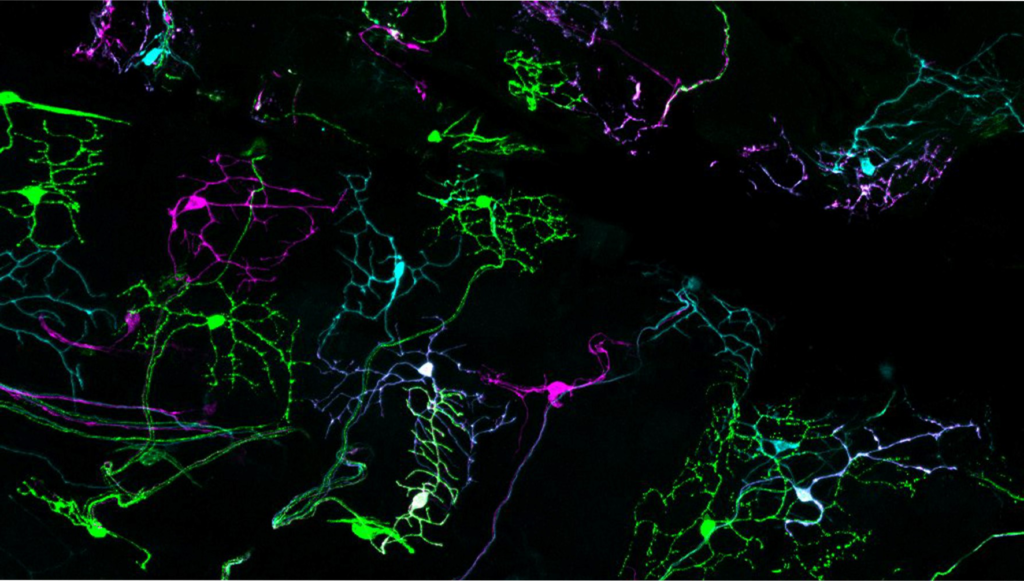
© C. Bertet & T. Lecuit (IBDM)
Informations pratiques
Lieu
Institut d’Études Scientifiques de Cargèse
Menasina D81
20130 Cargèse
Corsica, France
Stratégie nationale pour l’autisme au sein des troubles du neuro-développement
INVITATION
L’Institut Thématique Multi-Organismes Neurosciences, Sciences Cognitives, Neurologie, Psychiatrie vous convie à assister au colloque de lancement du GIS Autisme et Troubles du Neuro-Développement :
Stratégie nationale pour l’autisme au sein des troubles du neuro-développement
Lancement des actions « réseau national de recherche » pour changer la donne
En présence de Mme Sophie CLUZEL, secrétaire d’Etat auprès du Premier Ministre, chargée des personnes handicapées et de Mme Claire COMPAGNON, déléguée interministérielle à la stratégie autisme et TND.
Informations pratiques
Lieu
Bibliothèque nationale de France
Quai François Mauriac, Paris XIIIème
Reward – 6th Bordeaux Neurocampus conference
The Bordeaux Neurocampus Conferences are a serie of Neuroscience meetings, organized in Bordeaux, France.
The purpose of the conferences is to present and discuss recent findings in a topic field in Neuroscience, bringing together leading international experts and young researchers. The maximum number of participants is 250, including invited speakers. The scientific program is organized jointly by members of Bordeaux Neurocampus and the LabEx Brain.
The Bordeaux Neurocampus Conferences are 3-day meetings that take place in autumn at Bordeaux University, France. About 20 presentations are given by invited speakers, and the schedule encourages lively discussion, in particular during the poster sessions.
NEXT CONFERENCE : 2-4 OCTOBER, 2019
Normal and pathological reward processing: from synapse to behavior
Essential feature of the human as well as the animal brain is its ability to process information on-line in order to efficiently adapt behavior to a changing environment. The brain constantly integrates new sensory information and adjusts its behavioral responses to maximize reward and / or minimize unpleasant and even dangerous consequences for the organism. The question here is to highlight brain regions that share the ability to “reward” the performance of vital functions such as feeding, exploration of new environments, initiation of new social interactions, reproduction and appropriate reaction to threat? The mesocorticolimbic dopaminergic system was the first neural circuit to be described in this context and is closely related to the whole reward system. Are there other brain reward systems? What happens in the brains of patients with autism spectrum disorders, addiction to drugs or sports, anxiety or depressive symptoms, Parkinson’s disease, whose reward system is altered? Answers to these questions do not reach consensus and will be debated during the three days of this conference.
Registration and abstract submission
Informations pratiques
Lieu
Domaine du Haut-Carré
Talence
Brain and metabolism – 4th EGID Thematic School
The 4th EGID Thematic School will take place in Bruges from October 2 to 4, 2019. This Thematic School is intended for PhD students, Post-doctoral fellows and young investigators from different backgrounds.
Invited speakers:
Philippe FROGUEL (Lille,France) ; Giles YEO (Cambridge, UK) ; Vincent PREVOT (Lille, France) ; Bernard THORENS (Lausanne, Switzerland) ; Jens BRÜNING (Cologne, Germany) ; Daniela COTA (Bordeaux, France) ; David VAL-LAILLET (Rennes, France) ; Kadiombo BANTUBUNGI-BLUM (Lille, France) ; Markus SCHWANINGER (Lübeck, Germany) ; Ruben NOGUEIRAS POZO (Santiago de Compostella, Spain) ; Julie DAM (Paris, France), Gilles MITHIEUX (Lyon, France).
As the number of participants is limited, a selection will be made by the Scientific Committee. Registration, round travel from Lille and accommodation will be free for those selected.
You will have to send a short letter of expression of interest, for first year PhD students, or an abstract of personal ongoing study for others (250 words abstract in English; title and names are not considered as words) in an unique PDF file titled (EGID + Name + First name).
Deadline for application and abstract submission : September 2, 2019.
Informations pratiques
Lieu
Bruges, Belgium
Le Congrès du Sommeil
Palais des congrès de Lille accueillera du 21 au 23novembre, le Congrès du Sommeil®.
Le programme préliminaire est maintenant disponible sur les site du congrès : http://www.lecongresdusommeil.com
Manifestation parrainée par la Société des Neurosciences
Informations pratiques
Lieu
LILLE GRAND PALAIS
1, Boulevard des Cites-Unies
59777 EURALILLE
26th Meeting (RT26) of the French Society of Toxinology (SFET)
The 26th Meeting (RT26) of the French Society of Toxinology (SFET) will take place on December 4-5, 2019, in the François Jacob auditorium of the Pasteur Institute in Paris, and will focus on a theme at the heart of the current research in toxinology: “Bioengineering of Toxins”.
We warmly invite you to attend the meeting, or better: present your own data as an oral communication or a poster!
Key dates:
Early bird registration: September 30, 2019
Submission of an abstract for an oral presentation: October 15, 2019
Submission of an abstract for a poster presentation: October 30, 2019
Informations pratiques
Lieu
Auditorium François Jacob, Institut Pasteur
Paris
16th INTERNATIONAL SYMPOSIUM ON CHOLINERGIC MECHANISMS
16th INTERNATIONAL SYMPOSIUM ON CHOLINERGIC MECHANISMS
2nd MISRAHI SYMPOSIUM ON NEUROBIOLOGY
Welcome to the XVIth International Symposium on Cholinergic Mechanisms (ISCM-XVI), scheduled for December 8th-13th, 2019. The symposium will be held in the Lopatie Conference Center on the campus of the Weizmann Institute of Science, in Rehovot, Israel.
The first International Symposium on Cholinergic Mechanisms (ISCM) was organized by the late Edith Heilbronn. It took place in Skokloster, Sweden, in 1970. The ISCMs have been held triennially since then, the most recent being ISCM-XV, in Marseille, in October, 2016. The principal objective of these conferences is to survey progress in the understanding of the molecular, cellular, pharmacological, toxicological, behavioral and clinical aspects of the cholinergic system, and to bring fundamental and applied scientists together so as to survey and discuss the most recent developments in cholinergic research. It has also been a tradition to publish the proceedings, so as to provide a comprehensive picture of the cholinergic field at the time of the symposium.
http://www.weizmann.ac.il/conferences/ISCM-XVI_2019/
Informations pratiques
Lieu
The David Lopatie Conference Centre, on the campus of the Weizmann Institute of Science, Rehovot, Israel.
Journée scientifique organisée par le Club « Moelle épinière et ses pathologies »
Journée scientifique « du liquide Cérébro-Spinal aux activités du CMEP
Inscription gratuite mais obligatoire avant le 20/11/2019
Informations pratiques
Lieu
Faculté de Médecine de la Timone
27 Bd Jean Moulin
Marseille Institut des Neurosciences
Amphithéâtre Gastaut
15e Rencontre annuelle du Club de Neuroprotection
La 15e journée annuelle du Club de Neuroprotection sera consacrée à LA PHYSIOPATHOLOGIE ET LE TRAITEMENT DES MALADIES NEURODEGENERATIVES à la lumière de la GENETIQUE . (programme ci-joint), et à quelques communications orales libres ( à vos candidatures).
Informations pratiques
Lieu
Amphithéâtre de l'Institut de myologie
Hôpital de la Pitié Salpêtrière
Paris XIII
NeuroFrance 2021 – Appel à propositions de symposiums
Le prochain colloque biennal de la Société des Neurosciences aura lieu à Strasbourg en mai 2021.
L’appel à propositions de symposium débutera le 13 janvier 2020.
Réfléchissez dès à présent aux propositions que vous souhaitez soumettre !
Consultez le site web du colloque
Informations pratiques
Lieu
Palais de la Musique et des Congrès
Place de Bordeaux
67000 Strasbourg
XV European Meeting on Glial Cells in Health and Disease
Dear Glia Community,
The XV European Meeting on Glial Cells in Health and Disease will be held in Marseille, France on July 7 – 10, 2021.
We encourage members of the glial community to propose Symposia, Special Trainee Symposia or Technical workshops on all aspects of CNS and PNS glial biology. The guidelines for symposium proposals and the web form for submitting proposals can be found on the meeting’s website. The deadline for submission is
Wednesday, April 1, 2020, 12.00 p.m. / midnight (CET)
The European Glial Meeting has become the world’s largest and most comprehensive scientific gathering on glial cell biology and medicine. The Glial Meeting series has become a tradition since the first gathering in 1994 at the University of Heidelberg. Subsequent Glial Meetings have been held throughout Europe every second year. After the outstanding success of the Glia Meeting 2019 in Porto with more than 1.500 participants, the conference returns to France after the meetings in Arcachon (1996) and Paris (2009) and it will be hosted in Marseille, the second-largest city in France. Marseille is famous for its seafood and the classic Bouillabaisse. This cosmopolitan city has much to offer, from ancient history and cultural diversity to unique seaside scenery and lovely Mediterranian weather.
Hope to see you there!
Informations pratiques
Lieu
MARSEILLE CHANOT, PALAIS DES CONGRÈS ET DES EXPOSITIONS
Rond Point du Prado
13008 Marseille
Du cerveau aux neurosciences. Itinéraires dans la longue durée
3e journée d’étude du Comité pour l’histoire de l’Inserm
En partenariat avec Sorbonne Université et l’UMR SIRICE
sur une proposition de Yves Agid.
Elle réunira des historiens, des chercheurs en sciences humaines et sociales, des acteurs contemporains et des personnalités de l’Inserm concernés par les neurosciences.
22 janvier 2020 de 9 h à 18 h
Les neurosciences occupent une place croissante au sein de la recherche médicale et scientifique. Plus qu’une discipline, elles articulent un ensemble de champs liés à la connaissance du cerveau et du système nerveux et interrogent les rapports complexes de l’homme à son environnement et à ses semblables. De la recherche biomédicale aux sciences cognitives, acteurs, démarches et organisations qui structurent les neurosciences sont diverses. Souvent convergentes, elles peuvent également s’avérer concurrentes. Alors que les découvertes et les défis des neurosciences sont relayés par les médias, ce domaine entre espoir et inquiétude suscite l’intérêt croissant du grand public. Au prisme des dernières techniques de l’imagerie médicale, le cerveau fascine. De manière désordonnées et, parfois, mal informées, les « neurosciences » semblent partout… Intégrées, parfois sans discernement, dans nombre de débats, elles sont mobilisées à propos des enjeux de société et de santé publique, d’éducation, de vieillissement et nourrissent chez certains les espoirs d’un homme « augmenté ». Un regard plus réfléchi ne serait-il pas dès lors nécessaire ?
C’est par l’histoire que la troisième journée d’étude du Comité pour l’histoire de l’Inserm espère favoriser une réflexion plus sereine. Elle abordera tout d’abord l’évolution de la connaissance, de l’exploration et des représentations du cerveau du xvie siècle aux dernières innovations du xxie siècle. La construction historique de la définition de la maladie et de l’élaboration des thérapeutiques articulée à la mise en place d’un encadrement institutionnel et hospitalier, sera ensuite interrogée, en posant la question de la place et de la représentation des patients au sein du système de santé, et plus largement de la société.
Ce rendez-vous constituera un nouveau temps de rencontre et d’échanges entre historiens, chercheurs en sciences humaines et sociales, témoins, scientifiques et acteurs institutionnels et associatifs. En tournant leur regard vers le passé, ils auront à l’esprit les problématiques actuelles … et porteront ainsi l’espoir de mieux discerner les enjeux des temps futurs.
Entrée libre sur réservation (selon les places disponibles)
Pour s’inscrire, contactez le secrétariat scientifique
Consultez le programme
Télécharger l’affiche
Informations pratiques
Lieu
Amphithéâtre Michelet - Sorbonne
46 Rue Saint-Jacques - Paris 5e
Göttingen Meeting of the German Neuroscience Society – Call for Symposia
The Call for Symposia proposals for the bi-annual meeting of the German Neuroscience Society (NWG) is open. The call is not restricted to our members but addresses neuroscientists from abroad as well, and especially the European neuroscience community. Proposals from any field of neurosciences are welcome, the meeting has no topical focus. The language of the meeting is English.
The meeting takes place on March 24 – 27, 2021. With around 1.500 participants it is one of the largest neuroscience meetings in Europe besides the FENS Forum. The program offers 36 symposia with four speakers each.
For more information please click here.
The NWG cannot offer core funding. However, in the past the German Research Council (DFG) has always supported the meeting with a substantial amount which could be used for travel costs for speakers from outside Germany. This allowed us to reimburse foreign symposium speakers at least partially. The NWG will apply for funding to the DFG for the upcoming meeting again.
Proposals can be submitted via a webform. Please contact central office of the NWG (gibson@mdc-berlin.de) if you have questions.
6th Congress of the European Academy of Neurology – Paris
Dear colleagues and friends,
It is our great pleasure and honour to welcome you to Paris for the 6th congress of the European Academy of Neurology from 23 to 26 May 2020. Paris is a dynamic and cosmopolitan city and one of Europe’s major centres for science, education and arts. Paris also has an unrivalled heritage, with historic sites, picturesque streets, iconic monuments, world-class museums and art galleries. Paris is also famous for gastronomy and fashion, and the city centre is classified as a UNESCO Heritage Site.
France has a longstanding and pioneering tradition of Neurology and Neuroscience (the French Neurological society was founded in 1899, with the Salpêtrière as an historic cradle). Since then, University Hospitals and research centres all over the country have contributed to scientific, clinical and therapeutic innovations, and have fostered strategic and productive international collaborations with many European groups. The EAN is proud to build on this heritage when coming to Paris and is confident that the community of French neurologists will extend their hospitality to make this Congress and your stay a great success and full of great memories.
The overarching theme of the congress is “Time for Action: Predict, Prevent, Repair”. The ‘red thread’ of the congress will show and demonstrate in many sessions with a rich spectrum of high-quality information the novel therapeutic interventions, designed to predict, protect and repair neurodegenerative diseases.
The congress will take place in a newly renovated congress venue, Paris Expo Porte de Versailles, a model of sustainable development, a place to live, as well as the largest French exhibition centre, which is in the heart of Paris and easily accessible by public transportation, scooters or Velib’ bikes.
EAN and the French Neurological community welcome you to an enlightening Congress in Paris. We also hope that you will enjoy the charm of Paris and the gentle lifestyle and culture in an international and friendly atmosphere.
We look forward to welcoming you to Paris!
Claudio Bassetti, President Elect of EAN
Tony Marson, Chairperson of Programme Committee of EAN
Marie Vidailhet, Chairperson of the Local Organising Committee
In order to register to the congress, please log in with your EAN log-in data and update your personal profile OR create a new account in case you do not have one yet.
Click on the « I want to access the individual registration area » button below OR on the « Register now » button in the slider on the top of the page OR go to MyEAN and click on the banner « Congress Registration ». In the registration area you will be able to register to the congress and book hotel accommodation.
Please note that the EAN Membership is connected to the individual EAN account.
If you are registered by a third party, please provide them with your personal MyEAN log-in data. Group registrations are not eligible for the registration fees mentioned below. Detailed information on group registration can be found here.
If you wish to become an EAN Individual member and benefit from reduced registration fees, please apply for membership first and kindly await approval of your application.
Please note, that only those who have submitted their complete membership application before or by 27 March 2020, can benefit from the congress fee for members and one free educational course. Everyone who applies for membership after 27 March, has to pay the full congress registration price
If you need help with your EAN profile, or have questions regarding your membership status please contact headoffice@ean.org.
If you have any queries regarding congress registration, please contact registration@ean.org.
Informations pratiques
Lieu
Paris Convention Centre
1 Place de la Porte de Versailles
75015 Paris
France
Meeting of European Congress of Magnetic Resonance in Neuropediatrics (ECMRN)
Welcome to Marseille for the 2020 meeting of the European Congress of Magnetic Resonance in Neuropediatrics (ECMRN) formely known as European Society of Magnetic Resonance in Neuropediatrics. (ESMRN).
As in previous meetings, the day before the main event will be a precongress day dedicated to fetal, neonatal and infant brain. This educational day adresses basic and advanced topics in this peculiar field.
The congress is intended to provide review and discussion of diseases involving the pediatric brain as well as new trends and clinical applications.
The congress is designed for practicing radiologists whose work includes pediatric neuroradiology and those involved in neurosciences, neurology and/or related fields.
Abstract submission deadline is 26th november 2019
Informations pratiques
Lieu
Marseille
Medical School (Faculté de Médecine)
5 stops by subway from downtown Vieux Port
Neuroplanète – 5e édition
Le Point, partenaire de la Semaine du Cerveau, organise Neuroplanète, les 6 et 7 mars 2020 au Centre Universitaire Méditerranéen de Nice.
Pendant deux jours, des intervenants prestigieux, d’éminents scientifiques, neurologues, psychologues, écrivains, intellectuels et sportifs échangeront avec la volonté de faire partager leur savoir et leurs expériences au grand public, initié ou non, et aux professionnels de santé.
En parallèle des débats et des conférences, les visiteurs seront invités à participer à des ateliers thématiques interactifs.
Neuroplanète, un événement gratuit pour permettre à tous de découvrir les pouvoirs méconnus du cerveau.
CeLyA Summer School “Hearing in noise”
The CeLyA Summer School “Hearing in noise” will take place from June 15th to 17th 2020 in Lyon. In comparison to a conference, the talks will be longer and will introduce the basics before elaborating and finishing up with up-to-date research. The targeted audience is MSc / PhD students and postdoc potentially new to the field, but industrial and senior researchers are of course welcome. Different sessions are organized to cover different aspects of hearing in noise, see the list of sessions and invited speakers below.
The participants and speakers are strongly encouraged to stay for the entire duration of the school to get more opportunities to interact with one another. Specific social activities (meal, barbecue party) are organized on the premises to favour informal interactions. The participants will be able to present their own research during a dedicated poster session (presentation is encouraged but not mandatory to participate in the school).
The school is free from registration fees (which includes all the sessions & social events except accommodation), so we have a finite number of places (around 100). Therefore, we ask the participants to register by sending a short CV (1 page max.) and a few lines explaining their motivations for attending the school. Please fill in the attached registration form and send it along with your CV to : carine.zambardi@ec-lyon.fr.
The deadline for registration is March 31st 2020.
Registration form
Accommodation is not provided, but reservation can be made at a special rate on the premises (using the promo code CELYA20 when booking here: https://www.valpre.com/).
Looking forward to welcoming you in Lyon,
The organizing committee:
Aurélie Bidet-Caulet & Annie Moulin (CRNL),
Mathieu Lavandier (ENTPE),
Carine Zambardi (CeLyA)
Informations pratiques
Lieu
Lyon
Public cible
MSc / PhD students, postdoc, industrial and senior researchers
Paris Computational Psychiatry Symposium
PCP 2020 IS POSPONED
Due to the current COVID-19 pandemic, we regret to inform you that the Symposium is postponed until further notice. We assume that the postponed date will take place sometime in early 2021.
***********************************************
The goal of the first Paris Computational Psychiatry (PCP) Symposium is to provide a broad community of researchers interested in human and animal cognition and its dysfunctions with ongoing work in computational psychiatry and related research fields.
The symposium will take place at the Department of Cognitive Studies of the Ecole Normale Supérieure in central Paris. The event is part of the New Ideas in Decision-Making series, sponsored by the Frontiers in Cognition research program of PSL University and the European Research Council.
Informations pratiques
Lieu
Paris
MDS-ES Basic Science of Movement Disorders
The MDS-ES Basic Science of Movement Disorders course has been postponed to later in 2020. We will announce the new program dates as soon as we are able.
*******************************************************************
Course Directors
Erwan Bezard, PhD; Institute of Neurodegenerative Diseases, University Bordeaux
Wassilios Meissner, MD, PhD; Institute of Neurodegenerative Diseases, University and University Hospital Bordeaux
Course description
The overall aim of this course is to teach young research-oriented neurologists and neuroscientists about fundamental mechanisms underlying movement disorders. The course participants will learn about clinical and genetic characteristics, preclinical models and pathophysiological foundations of movement disorders and their therapies. An important goal is to update clinical neurologists and neuroscientists on the forefront and the latest developments of research of movement disorders. The course will hopefully engage young neurologists and neuroscientists into research on Movement Disorders and promote translational research involving multidisciplinary approaches. The course mainly consists of lectures by international experts on Parkinson’s disease and movement disorders. Local experts will serve as chairs to facilitate discussion after each lecture. There will also be a panel discussion with experts and a “bring your own research” session where course participants will present their own research projects. During breaks and the networking dinner, the participants will also get the opportunity to interact with faculty and peers.
Recommended audience
Young neurologists (residents, movement disorder fellows) and young scientists (PhD students, postdoctoral fellows) interested in the basic science of movement disorders.
Learning objectives
- Describe findings in preclinical models of Parkinson’s disease and other movement disorders
- Discuss the translational value of preclinical models of Parkinson’s disease and other movement disorders
- Recognize clinical implications of recent basic science developments in Parkinson’s disease and other movement disorders
- Identify important clinical aspects of movement disorders where more basic research is needed
Course registration deadline: Monday, April 6, 2020
Informations pratiques
Lieu
Centre Broca Nouvelle-Aquitaine
38 Rue Albert Marquet
33000 Bordeaux
Conférence Jacques Monod
La Conférence Jacques Monod “Génétique, environnement, signalisation et plasticité synaptique dans les maladies du développement du cerveau : du laboratoire à la clinique » se tiendra à Roscoff du 11 au 15 Mai 2020.
Les troubles du développement du cerveau (DBD) comprennent un groupe très hétérogène de pathologies, avec une prévalence d’environ 3% de la population mondiale. Les DBD se caractérisent par des altérations de la cognition, des interactions sociales, du comportement et de la motricité résultant d’un développement cérébral anormal. Les DBD incluent la déficience intellectuelle, les troubles du spectre autistique (TSA), les troubles d’hyperactivité avec déficit de l’attention, les troubles spécifiques de l’apprentissage, les troubles du système moteur, la schizophrénie et l’épilepsie. Plusieurs de ces phénotypes peuvent souvent coexister chez le même patient et caractériser la même pathologie. D’un autre côté, certaines voies (par exemple, Rho-GTPase, mGluRI, AMPc, GABA et neuroinflammation) sont modifiées dans différentes formes de DBD, à la fois d’origine génétique et environnementale. Ces résultats suggèrent que des mécanismes physiopathologiques communs peuvent être considérés comme un continuum de dysfonctionnements du développement cérébral. Partant de ces considérations, nous proposons d’organiser une conférence sur le thème « Génétique, environnement, signalisation et plasticité synaptique dans les troubles du développement cérébral : du laboratoire au lit du patient », basée sur l’idée que les échanges entre spécialistes avec formations différentes pourraient permettre d’aborder le sujet de manière complémentaire et déboucher sur l’élaboration de nouveaux concepts et idées dans le domaine.
La conférence couvrira les sujets suivants :
- Causes génétiques et environnementales des DBD ;
- Thérapies innovantes pour les DBD, avec un accent particulier sur les difficultés à traduire ces traitements du niveau préclinique au niveau clinique ;
- Développement cortical normal et pathologique, avec un accent sur les interneurones ;
- Voies et circuits moléculaires communs dans la physiopathologie des DBD ;
- Plasticité synaptique en développement neurologique normal et pathologique.
Informations pratiques
Lieu
Roscoff
18th International Conference of “Monitoring Molecules in Neuroscience” (MMiN 2020)
In view of uncertainty regarding the projected status of the Covid-19 pandemic at the time of our currently scheduled meeting, we regretably must postpone the meeting. The new dates, chosen in consultation with the Scientific Advisory Board, are June 27th – 30th, 2021.
*************************************************
We are very pleased to announce the 18th International Conference of “Monitoring Molecules in Neuroscience” (MMiN 2020) that will be held from June 28th to July 1st 2020, in Lyon, France.The international MMiN meeting, previously known as « In vivo meeting », initially focused on methodological neurochemistry and continues to expand its scope to include all major techniques, such as voltammetry, microdialysis, pharmacology, electrophysiology, imaging, tomography, optogenetics/chemogenetics, and other manipulations of neural networks. MMiN also provides an excellent platform for presentations on emerging techniques that detect and track neuroactive or neurotransmitter-like molecules.
Over the years, this international MMiN meeting has continued to attract an excellent level of expertise of our regular participants. Importantly, MMiN has a reputation of welcoming new researchers and being an excellent platform for presenting cutting edge technologies.
The venue for the 18th MMiN meeting is at the Catholic University of Lyon (UCLY) in the center of the beautiful city of Lyon situated at the confluence of the Rhône and Saône rivers. Our meeting, hosting 250-300 delegates, is scheduled over three and a half days, including four plenary lectures, a dozen symposia, and two poster sessions. This venue includes a common space for poster presentations, exhibitor booths and coffee/lunch breaks and two amphitheaters for all talks. Similar to past MMiN conferences, this venue facilitates rich interactions between the participants.This 18th MMiN Conference will undoubtedly be an opportunity to establish new connections and forge fruitful and lasting links between the meeting participants, including students, post-doc, young and established researchers, and vendors.
Informations, program and registrations
Sandrine Parrot, PhD
Barbara Ferry, PhD
Co-Chairs of MMiN2020
Informations pratiques
Lieu
Lyon
25ème congrès de l’International Society for the History of the Neurosciences (ISHN)
L’évolution de la situation sanitaire au plan international a conduit le comité organisationnel à décider du report de cet événement à l’année prochaine, aux dates suivantes : 6 – 10 juillet 2021.
*****************************************************************
Le 25ème congrès de l’International Society for the History of the Neurosciences (ISHN) aura lieu à Rennes du 7 au 11 juillet 2020.
Regroupant des cliniciens (neurologues, neurochirurgiens, neuropsychologues, psychiatres ou pharmaciens) et des historiens, l’ISHN vise à promouvoir la recherche en histoire des neurosciences. Elle entend en outre favoriser la communication et la collaboration entre chercheurs, notamment au travers de sa revue, le Journal of the History of the Neurosciences – Basic and Clinical Perspectives et de son congrès annuel. Cet événement rassemble les acteurs internationaux du domaine, autour de communications libres (orales et affichées) et de symposia.
Les chercheurs sont invités à participer à l’évènement en proposant des symposia ou des résumés pour un poster.
Plus d’informations sur le site internet du ISHN
12th FENS Forum of Neuroscience
The FENS Forum of Neuroscience is Europe’s largest international neuroscience meeting. The Forum scientific programme covers all domains in modern brain research. With 56 parallel symposia, more than 3,500 abstracts and 20 plenary and special lectures, the FENS Forum covers neuroscience from basic to translational research.
Early Registration Deadline: 18 February 2020
Full programme available at https://forum2020.fens.org/
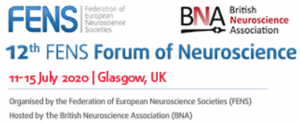
Informations pratiques
Lieu
SEC Centre
Exhibition Way,
Glasgow G3 8YW, UK
ECOLE DE RECHERCHE TRANSLATIONNELLE EN NEUROSCIENCES
L’Institut Thématique Multi-Organisme Neurosciences, Sciences Cognitives, Neurologie, Psychiatrie (ITMO NNP) et le GIS Autisme et Troubles du Neuro-Développement, organisent, du 24 au 27 septembre 2020, à Langon, l’école de l’ITMO NNP dont le thème est la « recherche translationnelle en Neurosciences ».
Cette école est dédiée aux chercheurs récemment recrutés, depuis 2017, dans l’un des organismes de recherche membres d’Aviesan (Inserm, CNRS, Université, CHRU/CHU, INRAE, INRIA, CEA…) ainsi qu’aux internes et chefs de clinique de spécialités en lien avec le cerveau/ système nerveux (neurologie, psychiatrie, neurochirurgie, pharmacie…) désireux de se familiariser avec le monde de la recherche translationnelle.
L’objectif de cette école est de promouvoir la recherche translationnelle en favorisant les liens entre la recherche fondamentale et la recherche clinique. Il s’agit de mieux situer les recherches fondamentales dans une perspective clinique afin de permettre à de jeunes cliniciens de s’initier et comprendre les enjeux de la recherche fondamentale ; et à de jeunes chercheurs issus de la recherche fondamentale de mieux comprendre les enjeux de la recherche clinique et translationnelle.
L’ITMO NNP et le GIS Autisme et Troubles du Neuro-Développement vous invitent à candidater participer à cette école. Vos frais de transport et/ou d’hébergement seront pris en charge par l’ITMO NNP. Si vous êtes sélectionné, vous devrez vous engager à participer/assister à l’ensemble de cette manifestation.
Pour plus de renseignements, consulter le site web.
Informations pratiques
Lieu
Château de Suduiraut, LANGON
Journée scientifique francophone du CALM
Le Club Alzheimer de Montpellier a le plaisir de vous convier à la 4e journée scientifique francophone du CALM du mardi 17 au mercredi 18 Novembre 2020.
Cette journée a pour vocation d’échanger autour des recherches ciblant la maladie d’Alzheimer.
Cette année le colloque sera en format hybride : présentiel à Génopolys, Montpellier (places limitées) et webinaire en distanciel.
•INSCRIPTIONS
Les inscriptions sont gratuites mais obligatoires, avant le 30 octobre, en présentiel (dans la limite des places disponibles) et en distanciel.
•LES DIApALZ (Diapositives pour Alzheimer)
Changement de format également pour les doctorants et postdorants qui souhaitent présenter leurs travaux : à la place d’un poster, ils sont invités cette année, avant le 5 Novembre 2020, à soumettre sur ce lien une synthèse de leurs travaux de recherche sous forme d’une diapositive commentée en 2 minutes : les DIApALZ, les meilleures présentations seront récompensées par des prix. Modalités de soumission
Le Comité d’Organisation CALM 2020
Catherine DESRUMAUX (MMDN) | Laurent GIVALOIS (MMDN) | Véronique PERRIER (MMDN) | Sylvie CLAEYSEN (IGF) | Marie-Laure PARMENTIER (IGF) | Carole CROZET (IRMB)
Communication/Infographie
Muriel Asari (IGF)
En vous inscrivant à ce colloque, vous vous engagez à ne faire aucun enregistrement (vidéo ou photo) des différentes présentations orales sous peine de poursuites.
Plus que jamais nous prenons soin de vous, dans le cadre des mesures sanitaires Covid, le port du masque est obligatoire sur le site de Genopolys et dans l’amphithéâtre ainsi que l’application des gestes barrières et de la distanciation sociale.
Informations pratiques
Lieu
Montpellier
Congrès du Sommeil
Avec le parrainage de la Société des Neurosciences
Le Congrès du Sommeil®, organisé par la Société Française de Recherche et Médecine du Sommeil (SFRMS) et la Société de Pneumologie de Langue Française, se tiendra en mode virtuel du 18 au 21 novembre 2020.
Ce 1er Congrès du Sommeil® virtuel, restera l’évènement de référence de cette discipline transversale et confirmera sa place incontournable de lieu d’échanges et de rencontres entre professionnels de la santé, chercheurs, décideurs publics, associations de patients, prestataires de soins à domicile, industriels et fournisseurs de matériel…
Conférences plénières, symposia, appel à communication, symposia et ateliers satellites, e-exposition, bourses… rien ne manquera à ce 1er Congrès du Sommeil® virtuel. Depuis chez vous, vous pourrez vous former, interagir, échanger, poser des questions, prendre des RDV (…)
Les inscriptions et l’appel à communication ouvriront à partir de fin août 2020.
Consulter le programme scientifique
Informations et inscriptions : www.lecongresdusommeil.com
Journée scientifique en neurosciences
La SFR FED 4226 de Neuroimagerie Fonctionnelle de Tours-Orléans-Poitiers organise chaque année en automne une journée d’animation scientifique en neurosciences. Au cours de cette journée plusieurs conférenciers invités abordent des aspects complémentaires d’un même thème. L’inscription est gratuite mais indispensable pour l’organisation pratique, elle sera prise en compte dans l’ordre d’arrivée « premier reçu premier servi ». Cette journée est soutenue par l’UMR PRC (INRAE-CNRS-Université de Tours- IFCE).
Thème : « Stress, émotions et cognition »
La journée se déroulera selon les règles sanitaires en vigueur à l’Université de Tours : respect des gestes barrières et port du masque. Du gel hydro-alcoolique sera à disposition à l’entrée et à la sortie de l’amphithéâtre.
Inscription gratuite mais obligatoire avant le mercredi 25 novembre 2020 par mail
PROGRAMME
10h00 Introduction, Yves Tillet (FED4226 – UMR PRC, Nouzilly).
10h15 Emotion et cognition chez les oiseaux, Ludovic Calandreau (UMR PRC, CNRS 7247, Centre INRAe Val de Loire, Nouzilly).
11h00 Modification du pattern de rappel mnésique après un stress aigu chez la souris : rôle de la corticostérone hippocampique et corticale, Daniel Béracochéa (Institut de Neurosciences Cognitives et Intégratives d’Aquitaine, UMR CNRS 5280, Bordeaux).
11h45 Rôle of the locus coeruleus-noradrenergic system in resilience against stress, Elsa Isingrini (Integrative Neuroscience and Cognition Center – CNRS UMR 8002, NRS, Université de Paris, Paris).
12h30 Déjeuner libre.
14h00 Facteurs influençant la neurobiologie des comportements socio-émotionnels, Marine Siwiaszczyk (UMR PRC, CNRS 7247, Centre INRAe Val de Loire, Nouzilly).
14h15 Implication de la neurogenèse hippocampique adulte dans la résilience au trouble de stress post traumatique, Barbara Planchez (UMR1253, iBrain, Inserm, Université de Tours).
14h30 Lorsque le soi est une source de stress : Utilisation de l’eye-tracking pour explorer les effets de la honte et de la culpabilité dans l’évitement de la conscience de soi, Jean Monéger (CeRCA, UMR 7295, CNRS Université de Poitiers).
14h45 Influences des émotions incidentes sur la prise de décisions : apport des modèles évaluatifs de l’émotion, Pascal Hot (LPNC-UMR CNRS 5105, Université Savoie Mont Blanc, Chambéry).
15h30 Le « temps s’envole ! » : distorsions du temps psychologique dues aux émotions, Sandrine Gil (CeRCA, UMR 7295, CNRS Université de Poitiers).
16h15 Perturber la mémoire traumatique ! Wissam El-Hage (UMR1253, iBrain, CIC 1415, Centre d’Investigation Clinique, CHRU de Tours, Inserm, Université de Tours).
17h00 Fin de la journée.
Informations pratiques
Lieu
Amphi Pantagruel - Extension de la Faculté de médecine de Tours
10 rue Emile Aron
37520 La Riche
Réunion du Club des Ganglions de la Base
Informations pratiques
Lieu
Réunion en visioconférences
DYRK1A, related kinases & human disease
Après la première édition de la conférence « DYRK1A, related kinases & human disease », organisée en mars 2017, à Saint-Malo, nous avons le plaisir de vous annoncer une deuxième édition de cette rencontre, programmée du 23 au 27 mars 2021, toujours au Palais du Grand Large à Saint-Malo.
Environ 120 chercheurs du monde entier sont attendus à ces trois journées de conférence, animées par une cinquantaine d’interventions scientifiques sur la protéine DYRK1A.
Informations pratiques
Lieu
Palais du Grand Large
Saint Malo
7th National Brain Councils Academy
The 7th National Brain Councils Academy that will be held on 15th April 2021 – from 15:00 to 17:00 PM CET.
This Academy Meeting will be virtual and organised by the European Brain Council (EBC) on Zoom. We will gather representatives from NBCs and National Action Groups (NAGs) across Europe in order to discuss, amongst other issues, the importance of National Brain Councils (NBCs), the impact of COVID-19 on the EU Health Agenda, the involvement of NBCs & EBC in Europe-wide projects and HERA as well as other initiatives. We’ll also have the opportunity to welcome on board Mr. Pierre Delsaux, Deputy Director General for Health – DG Sante.
You are kindly invited to register by filling in the online registration form here & confirming your attendance: https://crm.braincouncil.eu/civicrm/event/register?reset=1&id=50
IMPORTANT NOTE: Please be informed that the entire virtual event will be recorded and widely disseminated through social media and other communication tools.
INTERNATIONAL PRIZE
The Fyssen Foundation is happy to invite you on May 18th at 3 p.m CET for the international award ceremony to the Professor Richard MORRIS on the theme:
Ecological psychology and spatial navigation
The International Prize rewards each year a scientist who has conducted distinguished research in the areas supported by the Foundation. List of laureates.
Since 1979, the Fyssen Foundation has committed to serving the progress of cognitive sciences, by supporting scientific research on biological and cultural components of cognition, by stimulating debate, and by promoting the dissemination of knowledge. More information.
NeuroFrance 2021 – Colloque virtuel international
Le Colloque de la Société des Neurosciences
L’une des missions de la Société des Neurosciences est d’apporter les toutes dernières données scientifiques dans ses différentes disciplines. Le Colloque NeuroFrance est le fleuron de cette mission. Ce Colloque est le vôtre et nous savons tous à quel point il est important pour notre communauté.
Strasbourg devait accueillir NeuroFrance cette année mais en concertation avec le Comité local, compte tenu de la situation sanitaire, notre Conseil d’Administration a décidé de faire de NeuroFrance 2021 son premier colloque virtuel.
Nous avons préparé un programme scientifique de haut niveau avec des tarifs d’inscription des plus attractifs. Alors, n’attendez pas, inscrivez-vous dès maintenant !
Inscription & programme
Journée de Neurologie de Langue Française
Fondées en 1996, les Journées de Neurologie de Langue Française (JNLF) ont pour principaux objectifs de promouvoir et de développer la neurologie, en France et dans les pays francophones, de favoriser les relations et les échanges entre les diverses sociétés et associations s’intéressant au système nerveux, et de contribuer au fonctionnement des différents modes d’exercice de la pratique neurologique.
Depuis sa création, l’Association assure l’organisation annuelle de journées d’enseignement comprenant des cours, conférences, ateliers, communications affichées. Ces journées (« les JNLF ») sont devenues pour les près de 3000 congressistes et partenaires « le rendez-vous incontournable de la neurologie francophone ».
Le congrès e-Jnlf se tiendra – en ligne – du 26 au 28 mai 2021. Profitez, depuis chez vous, du meilleur de la Neurologie francophone !
The 11th International Symposium of the society for Research on Cerebellum and Ataxias
In 2020 we had to postpone the physical SRCA Symposium scheduled in Pilsen, Chech Republic due to the COVID-19 pandemic. Today, the pandemic situation is different in every country but in general we are going in the right direction. But not quickly enough to organise the 2021 edition of the SRCA Symposium in a physical way.
In practice this means that the 11th edition of the International Symposium of the Society for Research on the Cerebellum and Ataxias on the 18 and 19 June 2021 will be a complete Virtual Meeting.
The virtual symposium will run over 2 days and consist of live presentations followed by live discussions, including the F. Rossi Lecture. These will be joined by pre-recorded oral contributions that will be available on the website. To upgrade the poster section, we will introduce the poster-on-demand sessions. In these sessions the pre-recorded presentations of the poster authors’ contribution will be available as video-on-demand on the website together with the abstract related to the poster. That way all posters will be available before, during and after the symposium and will be full presentations.
The symposium Organising committee is currently finishing the faculty of the meeting and as soon as all the titles of the keynote lectures have been finalised we will be able to announce the detailed scientific programme.
Call for abstracts : Online abstract submission
Journées Neurosciences Psychiatrie Neurologie (JNPN)
L’édition 2021 des Journées de Neurosciences, Psychiatrie et Neurologie (JNPN), en juillet prochain à Paris a l’ambition de nous donner l’occasion de nous retrouver, d’échanger, de confronter des perspectives différentes pour nous enrichir… et pas seulement parler de la pandémie… Nous voulons être pluridisciplinaires, nous voulons renforcer les liens entre scientifiques et cliniciens, entre professionnels du cerveau et praticiens de l’esprit.
Pourquoi venir aux JNPN 2021 ?
Parce que vous êtes un clinicien et que la pratique s’enrichit des interactions avec les chercheurs dans les domaines des neurosciences mais aussi des sciences humaines.
Parce que neurologue ou psychiatre, vous êtes persuadés que l’échange et la pluridisciplinarité sont les piliers de la pratique médicale d’aujourd’hui et de demain.
Parce que vous êtes un chercheur et que partager vos travaux et les confronter avec la réalité clinique vous paraît essentiel et fructueux.
Et parce que Paris est depuis toujours un creuset de savoir et de culture !
Le programme : « Le cerveau en partage »
Informations pratiques
Lieu
Paris, Palais des Congrès
Conférence Science Ouverte, Lente, et Durable en langue Française
L’Association Slowpen Science, en partenariat avec le Laboratoire de Psychologie des Pays-de-la-Loire (LPPL, EA 4638), PROGEDO-Loire, et la MSH Ange-Guépin, est heureuse de vous annoncer la toute première édition de la conférence Science Ouverte, Lente, et Durable en langue Française, du 19 au 21 juillet 2021 à la MSH de Nantes.
Cette conférence a pour objectif d’échanger à propos des avancées et défis associés à la science ouverte, à la science lente, et à la science durable dans le cadre de l’étude des comportements, de la cognition et des émotions. De nombreux changements de pratiques de recherche sont apparus dans le paysage scientifique ces dernières années. Comment la communauté scientifique francophone européenne participe-t-elle à ces avancées ? Quels projets peut-elle initier afin d’améliorer la qualité des travaux scientifiques à venir ? Ce sont ces questions qui motiveront les échanges lors de cette conférence.
Les communications orales (format LONG ou ÉCLAIR) et les ateliers (PRATIQUE ou PROJET) seront regroupés dans des sessions thématiques et répartis sur trois jours.
Plus d’informations sur les différents formats.
Pour plus d’information ou pour soumettre votre proposition de communication (possible du 1er mars au 16 avril minuit), vous pouvez vous rendre sur le site de la conférence.
N’hésitez pas à nous contacter d’ici là pour toutes questions sold2021@sciencesconf.org ou sur Twitter @SlowpenScience (#sold21).
Le comité d’organisation
Amélie Beffara Bret, Université de Nantes
Bertrand Beffara, CRNL, CNRS, INSERM, UCBL1, Lyon
Brice Beffara Bret, Université de Nantes
Yseult Héjja-Brichard, CEFE, CNRS, Université de Montpellier, Université Paul Valéry Montpellier 3, EPHE, IRD, Montpellier
Ladislas Nalborczyk, GIPSA-lab, CNRS, Univ Grenoble Alpes, Grenoble INP
Informations pratiques
Lieu
MSH de Nantes
Travel Awards – 44th Annual Meeting of Japan Neuroscience Society
The 44th Annual Meeting of Japan Neuroscience Society will be held at Kobe Convention Center, Hyogo, Japan from July 28 to 31, 2021. We offer Travel Awards to enthusiastic leading non-Japanese investigators traveling from abroad to present high quality papers at the meeting. Applications of young principal investigators and senior postdoctoral fellows are especially encouraged.
Registration: December 1st, 2020 to January 12th, 2021 at noon JST
Informations pratiques
Lieu
Hyogo, Japan
SUMMER SCHOOL « ADVANCED TOOLS FOR DATA ANALYSIS IN NEUROSCIENCE »
Research discoveries are increasingly dependent on the development of new tools and technologies, as well as on the ability to process, manage and analyze the large amounts of data collected with these tools.
In this summer school, we will focus on several aspects of data preparation and analysis, as well as on the use of simulation and modeling tools capable of generating predictions. These tools will be applied to different data acquisition techniques such as electrophysiological recordings (e.g. EEG, intra or extracellular recordings) or image series from brain imaging (e.g. MRI).
Target audience:
Master and PhD students from the University of Strasbourg and other French and foreign universities. Priority will be given to students enrolled in a basic or medical neuroscience program, but students from other specialties will be able to participate as long as places are available.
There is no registration fee.
Scholarships of 500 euros will be offered to non-Strasbourg students to cover travel and accommodation costs.
Students are encouraged to come with their own dataset.
How to apply:
Send your CV, a cover letter and a letter of recommendation to contact@neurex.org
Application deadline: May 15,2021.
Informations pratiques
Lieu
Strasbourg (France)
4th JOINT FRANCO-BRITISH MEETING OF NEUROENDOCRINOLOGY
REGISTRATIONS and ABSTRACT SUMMISSIONS ARE OPEN
The neuroendocrinologists in Bordeaux have the honor to organize in 2021 the 4th joint meeting between the SNE (French Society for Neuroendocrinology) and the BSN (British Society for Neuroendocrinology).
The congress will last 3 full days, from the 22nd to the 24th of September 2021, and will be entirely online. The scientific program elaborated by both the SNE’s and BSN’s scientific committees includes 4 plenary lectures and 4 symposia. The objective of the meeting is to highlight the recent advances in Neuroendocrinology with the best specialists in the field.
Plenary lectures:
Joëlle Cohen-Tannoudji, Waljit Dhillo, Sakina Mhaouty-Kodja, Steve A. Brown
Symposia:
-Development and Plasticity of Neuroendocrine Systems Involved in Metabolic Regulation
-Towards a dynamical understanding of stress, sleep, and metabolism
-Emerging concepts in the central control of fertility or of ovulation
-New insights in the hypothalamic circuitry regulating energy metabolism: physiological and pathophysiological implications
Young researchers will have the opportunity to present their work either through a short oral communication or during one of the three poster sessions of our meeting. The best posters and oral communications will be selected for a special prize. Young researchers will also have the opportunity to discuss with Journal editors, established senior and junior researchers and researchers from private companies through a speed networking event.
All details can be found on the conference website: BSN-SNE 2021
Organizing team:
-MP Moisan, Nutrineuro
-D Cota, NCM
-X Fioramonti, Nutrineuro
-Ph Ciofi, NCM
-M Darnaudery, Nutrineuro
Informations pratiques
Lieu
The congress will be entirely online
Atelier « Cerveau – microbiote »
Les Interactions réciproques entre le Cerveau et le Microbiote suscitent un intérêt croissant dans la communauté scientifique et chez le grand public.
Pour répondre à cette demande, l’Institut Thématique Multi – Organisme (ITMO) Neurosciences, Sciences Cognitives, Neurologie, Psychiatrie, avec la participation des ITMOs Physiopathologie, Métabolisme, Nutrition et Immunologie, inflammation, infectiologie et microbiologie, organise un atelier « Cerveau-Microbiote ».
Cet atelier vise à réunir des scientifiques (chercheurs, étudiants, ingénieurs) de ces champs disciplinaires, déjà impliqués dans ce nouveau domaine de Recherche ou souhaitant développer des travaux dans celui-ci. Il est également ouvert aux personnes ayant un intérêt marqué pour ce domaine.
L’atelier se tiendra à l’amphithéâtre Buffon, à Paris, et sera également retransmis en direct en ligne.
Informations pratiques
Lieu
Amphithéâtre Buffon, à Paris & en direct en ligne
Eurotau2021 meeting
October 25, 2021
Welcome address:
8:30-9:00 – Luc Buée and RCF representative
9:00-11:00 Session 1 (Chairs: A. Rovelet-Lecrux & J. Attems)
9:00 – Johannes Attems (UK) Tau in ageing/ AD/ PART and frontotemporal lobar degeneration
9:15 – Anne Rovelet-Lecrux (France) Clinical and neuropathological diversity of tauopathy in MAPT duplication carriers
9:30 – Ruiqing Ni (Switzerland) High-resolution non-invasive whole brain optoacoustic tomography imaging of tau in P301L tauopathy mice
9:40 – Tiago Gil Oliveira (Portugal) Primary age-related tauopathy (PART) and Alzheimer’s disease show differential magnetic resonance imaging atrophy patterns
9:50 – Eugeen Vanmechelen (Belgium) Two plasma p-tau SIMOA-based assays using a shared synthetic calibrator peptide for detection of AD pathology
10:00 – Roberto Simone (UK) Natural antisense transcripts containing an embedded mammalian-wide interspersed repeat repress MAPT translation and aid proteostasis in neurodegeneration
10:15 – Karine Cambon (France) Neuronal Tau pathology transfers to astrocytes and induces their loss according to Tau aggregation state in mouse models
10:25 – Kevin Richetin (Switzerland) Tau accumulation in astrocytes of the dentate gyrus induces neuronal dysfunction and memory deficits in Alzheimer’s disease
10:35 – Michael Heneka (Germany-Luxembourg) How microglia modulate tau pathology
10:50 – Questions
11:00-11:30 Coffee break
11:30-13:00 Rainwater Prize ceremony
11:30 – Introduction
11:35 – Richard Carmona – Prize overview
11:50 – Philippe Amouyel (Chairperson: L Buée) – JPND & European funding for NDD
12:15 – Celeste Karch, Rainwater Prize for Innovative Early Career Scientist (Chair: Leonard Petrucelli)
12:30 – David Holtzman, Rainwater Prize forOutstanding Innovation in Neurodegenerative Disease Research (Chairperson: Howard Feldman)
12:45 – Todd and Matt Rainwater thank winners, nominators, scientists
12:55 – Amy Rommel – About prize & nominations open
12:59 – Luc Buee closes the Rainwater Ceremony
13:00-14:30 Lunch & Poster exhibition
14:30-16:00 Session 2 (Chairs: A. Rommel & L. Buée)
14:30 – David Holtzman, 2020 Rainwater Prize forOutstanding Innovation in Neurodegenerative Disease Research (USA)
14:50 – Michel Goedert, 2019 Rainwater Prize forOutstanding Innovation in Neurodegenerative Disease Research (UK) Cryo-EM structures of amyloid filaments from human brain
15:10 – Celeste Karch, 2020 Rainwater Prize for Innovative Early Career Scientist (USA) Molecular and cellular drivers of tauopathy
15:30 – Mathieu Bourdenx (France) Chaperone-mediated autophagy: a gatekeeper of neuronal proteostasis
15:40 – Wiep Scheper (The Netherlands) Cell type-specific proteostatic responses to tau pathology
15:50 – Lukasz A Joachimiak (USA) DnaJC7 binds natively forlded structural elements in tau to inhibit amyloid formation
16:00-16:30 Coffee break
16:30-18:00 Session 3 (Chairs: I. Landrieu & Y. Fichou)
16:30 – Illana Gozes (Israel) Novel insights to ADNP/NA/Tau protein interactions dictating brain development and aging
16:40 – Eliana Nachman (Belgium) Disassembly of Tau fibrils by the human Hsp70 disaggregation machinery generates small seeding-competent species
16:50 – François Devred (France) Three zinc binding sites of Tau and their role in tau aggregation
17:00 – Cláudio M. Gomes (Portugal) Dynamic interactions and Ca2+-binding modulate the chaperone activity of S100B preventing tau aggregation and seeding
17:10 – Davide Tampellini (France) Enhancement of synaptic stimulation induces tau clearance via the autophagosomal/lysosomal pathway
17:20 – Marina Rierola (Germany) Tau shapes microtubule-dependent transport in the dendrites
17:30 – Laura Vallés Saiz (Spain) Tau expression in the kidney: cell distribution and physiological function
17:40 – Marie Galas (France) Revisiting the link between tau and the neuronal cell cycle in Alzheimer’s disease: an unexpected role for nuclear tau
17:50 – Mahmoud Maina (UK / USA) The involvement of Tau in nucleolar function and stress response
18:00-20:00 Rainwater Prize reception (OPEN to all Eurotau participants)
October 26, 2021
8:30-9:00 – Plenary lecture
Kenneth Kosik (USA) A Rite of Passage: Tau’s Route Between And Within Cells
9:00-11:00 – Session 4 (Chairs: A. Mudher & I. Ferrer)
9:00 – Eckhard Mandelkow (Germany) Recent insights into Tau seeding and phosphorylation
9:15 – Louise Serpell (UK) The role of the core of tau paired helical filaments in AD and other tauopathies
9:25 – Yann Fichou (France) Tau intertwines with cofactors: how it modulates complex phase separation, oligomerization & aggregation properties
9:35 – Susanne Wegmann (Germany) Condensating the interactions of tau
9:45 – Amrit Mudher (UK) Tau aggregation and spread of pathology in Drosophila
9:55 – Isidre Ferrer (Spain) Importance of host tau in tau seeding and spreading in tauopathies
10:05 – Marie-Ange De Fisenne (Belgium) Alzheimer PHF-tau do not spread tau pathology to the brain via the retinotectal pathway after intraocular injection in mouse models
10:15 – Marc Dhenain (France) Induction of tau lesions in amyloid-bearing mice and in primates after inoculation of Alzheimer brain extracts
10:25 – Evgeni Ponimaskin (Germany) Amelioration of Tau pathology and memory deficits by targeting serotonin receptors
10:35 – Diane Hanger (UK) Truncated tau as a model of human tauopathy
10:50 – Questions
11:00-11:30 Coffee break
11:30-13:00 Session 5 (Chairs: D. Hanger & E. Mandelkow))
11:30 – Selected communication
11:40 – Selected communication
11:50 – Selected communication
12:00 – Selected communication
12:10 – Selected communication
12:20 – Selected communication
12:30 – Selected communication
12:40 – Selected communication
12:50 – Questions
13:00-14:30 Lunch & Poster exhibition
14:30-16:00 Session 6 (Chairs: S. Wegmann & M. Dhenain)
14:30 – Karen Duff (UK) Mechanistic underpinnings of selective cellular vulnerability to tauopathy
14:45 – Elodie Leroux (France) Extracellular vesicles and tau seeding among tauopathies
14:55 – Dirk Beher (Switzerland) OGA inhibitors as multimodal drug candidates for tau- and alpha-synucleinopathies15:30 – –
15:10 Norbert Zilka (Slovakia) Tau vaccine AADvac1 trains immune system to produce therapeutic antibodies against disease tau species in Phase II clinical trial
15:25 – Isabelle Landrieu (France) Single domain antibody fragments: new tools for studying Tau as a target for therapy
15:35 – John Sotiropoulos (Portugal) A novel method of spontaneously-released extracellular vesicles isolation from mouse and human brain
15:45 – Marco Luppi (Italy) Deep hypothermia stimulates a neuroprotective process reversing the accumulation of hyperphosphorylated tau protein in the rat hippocampus
15:55 – Questions
16:00-16:30 Coffee break
16:30-17:00 Session FLASH TALKS (Chairs: to be confirmed)
16:30 – Flash talk – selected poster
16:35 – Flash talk – selected poster
16:40 – Flash talk – selected poster
16:45 – Flash talk – selected poster
16:50 – Flash talk – selected poster
16:55 – Flash talk – selected poster
17:00 Poster prize
Informations pratiques
Lieu
Lille
La Neurogénétique des insectes à l’Homme
AfficheNeuroscience2021-finale
Neurosciences à Tours-Nouzilly
24e Journée
La prochaine réunion se déroulera le mercredi 10 novembre prochain dans l’Amphi C de la faculté de médecine de Tours, 10 boulevard Tonnellé à Tours et aura pour thème : « La Neurogénétique, des insectes à l’Homme ».
La journée se déroulera selon les règles sanitaires en vigueur à l’Université de Tours: respect des gestes barrières, port du masque et contrôle du passe sanitaire. Du gel hydro-alcoolique sera à disposition à l’entrée et à la sortie de l’amphithéâtre.
L’inscription est gratuite mais obligatoire avant le mercredi 5 novembre 2021 par retour de mail
Programme et renseignements complémentaires
Informations pratiques
Lieu
Faculté de Médecine de Tours
Amphi C
10 boulevard Tonnellé
37000 Tours
Grand Prix scientifique 2021 de la Fondation Pour l’Audition
Le Grand Prix scientifique 2021 de la Fondation Pour l’Audition, le Professeur Robert J. Zatorre, de l’Institut Neurologique de Montréal, Université de McGill (Montréal, Canada) tiendra sa conférence magistrale
le mercredi 17 novembre 2021, de 11h à 12h30, à l’Institut de l’Audition (63 rue de Charenton Paris 12ème). La conférence sera suivie d’un cocktail apéritif.
Sa conférence est intitulée « Spécialisation des hémisphères cérébraux dans le traitement de la parole et de la musique : signaux acoustiques et profils de connectivité »
Résumé :
Grâce au travail de Paul Broca sur les troubles de la parole dans les années 1860 à Paris, il est établi que les deux hémisphères cérébraux fonctionnent de manière différente. Une question reste posée, à savoir comment et pourquoi ils se sont spécialisés. Lors de cette conférence magistrale, je me concentrerai sur la latéralisation du cerveau dans le traitement de la parole et de la musique. Je montrerai que les sons liés à la parole sont traités préférentiellement par le cortex auditif gauche tandis que les sons liés à la musique sont analysés de façon plus fine par le cortex auditif droit. Ces différences fonctionnelles pourraient être expliquées par une sensibilité aux signaux acoustiques de la parole et la musique différente. Le cortex auditif gauche est spécialisé dans le traitement des modulations acoustiques rapides nécessaires à la compréhension de la parole. Le cortex auditif droit est, quant à lui, spécialisé dans le traitement de fréquences fines qui est important dans la perception de la musique. Enfin, sur la base de différents modèles de connectivité, je proposerai la base physiologique liée à la spécialisation des cortex auditifs gauche et droit. On peut penser que la spécialisation des hémisphères cérébraux est une adaptation biologique qui permet à l’homme de traiter deux signaux auditifs parallèles, la parole et la musique, afin de partager notre savoir et nos émotions.
Accueil des participants à partir de 10h30
Pass sanitaire, pièce d’identité et masques obligatoires.
Informations pratiques
Lieu
Institut de l'Audition
63 rue de Charenton
Paris 12ème
Congrès du Sommeil
Lille, 24-26 novembre 2021
Diffusé également en mode virtuel
Informations pratiques
Lieu
Lille
Rencontres franco-mexicaines
Une demi-journée de rencontres via Zoom est organisée sur le thème « Pathologic ageing » en coordination avec les deux sociétés mexicaines de neurosciences,
Lundi 6 décembre 2021 à partir de 16h (heure française).
Les interventions seront suivies d’une table ronde entre les 3 sociétés de neurosciences.
Nous vous y attendons nombreux·ses !
Lien Zoom : https://u-pec-fr.zoom.us/j/81035635741
Informations pratiques
Lieu
En distanciel
Call for Symposia proposals open
15th Göttingen Meeting of the German Neuroscience Society
March 22-25, 2023
The Call for Symposia proposals for the bi-annual meeting of the German Neuroscience Society (NWG) is open. The call is not restricted to our members but we explicitly want to encourage neuroscientists from abroad as well, and especially from the European neuroscience community. Proposals from any field of neurosciences are welcome.
Please be so kind to share our call with the members of the Societé des Neurosciences. The meeting takes place on March 22 – 25, 2023, in the town of Göttingen in the heart of Germany. With around 1.500 participants it is one of the largest neuroscience meetings in Europe besides the FENS Forum. The program offers 36 symposia with four speakers each.
While the NWG itself cannot offer core funding for foreign participants, we will apply for funds from the German Research Council (DFG) which has always generously supported the meeting in the past. With these funds, we were able to cover at least parts of the travel costs for speakers from outside Germany.
Proposals can be submitted via a webform at the above mentioned website.
Please contact the central office of the NWG if you have any questions.
Deadline for submission of proposals : February 14, 2022 (midnight CET).
The decision on the proposals is made by the Governing Board of the NWG and can be expected by the end of March 2020.
Prof. Dr. Christine Rose
Chair Program Committee / President of the German Neuroscience Society
Program Committee:
Prof. Dr. Christine Rose (Chair), Prof. Dr. Mathias Bähr, Prof. Dr. Tobias Böckers, Prof. Dr. Ansgar Büschges, Prof. Dr. Veronica Egger, Prof. Dr. Martin Göpfert, Prof. Dr. Sonja Grün, Prof. Dr. Eckart Gundelfinger, Prof. Dr. Ileana Hanganu-Opatz, Prof. Dr. Frank Kirchhoff, Prof. Dr. Albert Christian Ludolph, Prof. Dr. Heidrun Potschka, Prof. Dr. Constance Scharff, Dr. Sophie Seidenbecher, Prof. Dr. Christian Steinhäuser, Prof. Dr. Christiane Thiel
Les 27èmes rencontres en toxinologie
C’est avec grand plaisir que nous vous informons que la SFET organise ses 27ème Rencontres en Toxinologie, intitulées « Toxines : Mr Hyde ou Dr Jekyll? », pour les jeudi 9 et vendredi 10 décembre 2021 en format virtuel.
Nous vous encourageons à participer à ces « e-RT27 » et à renouveler votre adhésion ou devenir un nouveau membre de la société. En étant membre de la SFET en 2021 vous pourrez bénéficier de tarifs préférentiels d’inscription aux e-RT27, ainsi que vous porter candidat(e) et/ou voter pour le renouvellement de 6 des 12 membres du Conseil d’Administration.
NeuroMentoring #3
Le Bureau des Jeunes Chercheur·e·s de la Société des Neurosciences organise la 3e session de NeuroMentoring sur le thème « work-life balance in academia »
Jeudi 9 décembre à 16h
via Zoom: https://cutt.ly/4Ypm58H
Identifiant : 823 5382 4517
Mot de passe : 8kRrdu
Informations pratiques
Lieu
En distantiel
Symposium virtuel « What is Neuroethology? »
Première réunion Scientifique du Club de Neuroéthologie
Symposium Online « What is Neuroethology? »
Nous avons réuni pour celui-ci des leaders internationaux d’Europe, USA et Israël pour parler de recherches de pointe en neuroethologie qui nous paraissent fascinantes et qui – nous l’espérons – seront aussi attirantes pour les membres du club et de la Société de Neurosciences en général.
Les liens zooms pour les différents créneaux suivront prochainement.
Martin Giurfa & German Sumbre
Research Center on Animal Cognition
Center of Integrative Biology
CNRS – University Paul Sabatier – Toulouse III
4R4 Building – 4th Floor
118 Route de Narbonne
31062 Toulouse Cedex 9
Informations pratiques
Lieu
Symposium virtuel
COSYNE 2022
The annual Cosyne meeting provides an inclusive forum for the exchange of empirical and theoretical approaches to problems in systems neuroscience, in order to understand how neural systems function.
The Main Meeting is single-track. A set of invited talks is selected by the Executive Committee, and additional talks and posters are selected by the Program Committee, based on submitted abstracts. The Workshops feature in-depth discussion of current topics of interest, in a small group setting.
Cosyne topics include (but are not limited to): neural basis of behavior, sensory and motor systems, circuitry, learning, neural coding, natural scene statistics, dendritic computation, neural basis of persistent activity, nonlinear receptive field mapping, representations of time and sequence, reward systems, decision-making, synaptic plasticity, map formation and plasticity, population coding, attention, and computation with spiking networks. Participants include pure experimentalists, pure theorists, and everything in between.
Informations pratiques
Lieu
Lisbon & Cascais, Portugal
Formation AUEC Comportement adapté aux modèles physiopathologiques
Vous voulez acquérir des connaissances sur l’exploration comportementale dans les modèles rongeurs de neuropathologies ?
Une formation AUEC Comportement adapté aux modèles physiopathologiques aura lieu à Lille du 4 au 7 avril 2022.
Flyer de la formation et fiche administrative pour l’inscription
Renseignements et inscriptions
Informations pratiques
Lieu
Faculté de Médecine de Lille
Lille
Symposium: From Cortical Microcircuits to Consciousness
The Symposium: From Cortical Microcircuits to Consciousness aims at bringing together the Human Brain Project’s neuroscientists and invited guests to present their latest achievements in understanding neurocircuit dynamics at microscales, meso- and macro-scales, including the emergence of consciousness. Theories of consciousness will be reviewed and challenged by new findings from brain circuits and behavior. The involvement of neuronal and neuroglial cells in brain functioning, memory, learning, cognition and consciousness in health and disease will be discussed from the experimental and theoretical perspective.
The Symposium will offer a hands-on session on The Virtual Brain, the platform of EBRAINS for constructing and simulating personalised brain network models. EBRAINS is the European research infrastructure for gathering, processing and simulating brain data.
Finally, the Symposium will address the recent advances in neuroethics and neurophilosophy in neuroscience research and society.
Registration deadline: 6 April 2022
Informations pratiques
Lieu
Institut Catholique de Paris
21 Rue d'Assas
75006 Paris
France
Symposium: From Cortical Microcircuits to Consciousness
The Symposium: From Cortical Microcircuits to Consciousness aims at bringing together the Human Brain Project’s neuroscientists and invited guests to present their latest achievements in understanding neurocircuit dynamics at microscales, meso- and macro-scales, including the emergence of consciousness. Theories of consciousness will be reviewed and challenged by new findings from brain circuits and behavior. The involvement of neuronal and neuroglial cells in brain functioning, memory, learning, cognition and consciousness in health and disease will be discussed from the experimental and theoretical perspective.
The Symposium will offer a hands-on session on The Virtual Brain, the platform of EBRAINS for constructing and simulating personalised brain network models. EBRAINS is the European research infrastructure for gathering, processing and simulating brain data.
Finally, the Symposium will address the recent advances in neuroethics and neurophilosophy in neuroscience research and society.
Informations pratiques
Ouverture
8:00 - 19:00
Lieu
Institut Catholique de Paris, 21 Rue d'Assas, 75006 Paris
Public cible
Recherche
Moyens de paiement
Registration fees in EUR
| Early Bird Ticket (available until 20/03/2022) |
Regular Ticket (available from 21/03 to 06/04/2022) |
|
| Students | 125.00 | 150.00 |
| Regular participants | 200.00 | 250.00 |
Visioconférence « Jeux vidéo et neurosciences » par l’Union des Savoirs
La notion d’expérience utilisateurs (UX) est encore récente dans l’industrie du jeu vidéo, et constitue un grand défi, les jeux devant être amusants et engageants. Comment les connaissances en sciences cognitives et en ergonomie peuvent aider à atteindre cet objectif ? Quels éléments expliquent le succès d’un jeu ? Comment adopter une approche UX pour n’importe quel autre produit, application, ou service ? Ancienne directrice UX chez Epic Games avec plus de 13 ans d’expérience dans l’industrie du jeu, Celia Hodent répondra à ces questions et celles que vous lui poserez. Elle nous révélera quelques concepts clefs de psychologie cognitive et nous expliquera le cadre de travail qu’elle a développé et notamment utilisé pour le développement du jeu Fortnite, succès planétaire.
Cette conférence d’une heure trente (en comptant les échanges avec le public) aura lieu en ligne. Il est nécessaire de s’inscrire afin d’obtenir le lien pour se connecter. Une fois votre billet pris, nous vous enverrons par mail toutes les informations liées à la connexion un peu avant l’événement. Surveillez vos spams !
Par Célia Hodent :
Détentrice d’un doctorat en psychologie (Paris V), Celia Hodent est experte en UX (expérience utilisateur), spécialisée dans l’application des sciences cognitives afin d’améliorer des produits ou systèmes (ergonomie cognitive), plus particulièrement les jeux vidéo dans le but d’en rendre l’expérience plus intuitive et fun pour les joueurs. Par son travail chez Ubisoft, LucasArts, et en tant que Directrice UX chez Epic Games (Fortnite), elle a contribué à de nombreux projets sur de multiples plateformes (jeux PC, consoles, mobiles, et VR).
Celia est auteure des livres Dans le cerveau du gamer : Neurosciences et UX dans la conception de jeux vidéo et The Psychology of Video Games. Elle travaille depuis 2017 comme consultante indépendante afin d’accompagner les entreprises sur les sujets de l’expérience utilisateurs, l’éthique en tech, les biais inconscients et l’inclusion. Celia est également la fondatrice du Game UX Summit, de l’initiative ethicalgames.org, et est membre du Comité de la Prospective de la CNIL.
Twitter: @CeliaHodent
Blog: celiahodent.com
Informations pratiques
Ouverture
19h - 20h30
Lieu
Événement en ligne
Public cible
Grand public
Moyens de paiement
Tarifs :
Adhérent : Gratuit
Social (RSA/Chômage/Handicap) : Gratuit
Étudiant : 4,5 euros
Plein : 9 euros
FENS Regional Meeting 2023 (FRM2023) – Call for Symposia
Organised by the Portuguese Society for Neuroscience, the FENS Regional Meeting 2023 will take place in person on 3-5 May 2023 in Algarve, Portugal.
Call for symposia
On behalf of the Organising Committee of the FRM2023 and the Sociedade Portuguesa de Neurociências (SPN, Portuguese Society for Neuroscience), we invite all members of FENS, members of associate societies and non-FENS members to submit proposals for scientific symposia.
Proposals should be submitted until 4 September 2022.
Take this opportunity to present your recent findings, get feedback from your peers and engage with the Neuroscience community.
Further information on the call for symposia
Informations pratiques
Lieu
Algarve, Portugal
Neurodevelopmental Disorders: From molecular mechanisms to social inclusion
In this 3 day symposium, experts from different areas of developmental neuroscience, human neuropsychology, epidemiology, brain imaging and genetics & epigenetics as well as clinicians will address the current state of neurodevelopmental disorders research, and its challenges for human health. We hope that by integrating neurodevelopmental perspectives and basic, translational and clinical approaches, this meeting will promote discussions and exchanges, and a new understanding of the complexity of these pathologies.
Informations pratiques
Lieu
Bordeaux
Printemps de l’interdisciplinarité – 1ère édition
Promouvoir le dialogue entre les sciences et sociales et les sciences expérimentales et formelles est l’un des objectifs prioritaires retenu par le Collège des sociétés savantes académiques de France.
Dans ce cadre, le Printemps de l’interdisciplinarité “Sapiens interdisciplinaris : engagé.e.s pour l’avenir” vise à mettre en lumière des expériences de pratiques interdisciplinaires entre champs traditionnellement éloignés. Cette manifestation, en lien avec l’Année internationale des sciences fondamentales pour le développement durable, est organisée du 7 au 9 juin 2022 à Paris, sur le campus Jussieu avec le soutien de Sorbonne Université.
Chaque demi-journée est l’occasion d’explorer la genèse et la mise en œuvre de projets interdisciplinaires. Dans chaque cas, un binôme de chercheuses et chercheurs issus de disciplines éloignées et travaillant ensemble présentera à deux voix les ressorts, les complexités et les apports des projets développés.
Archéologie, écologie, philosophie, science-fiction, environnement, physique, climat, santé, patrimoine scientifique, etc., de grands enjeux de notre époque seront abordés tour à tour au fil des sessions. Les organisateurs ont souhaité conclure ces journées par une table-ronde intitulée « Comment former à l’interdisciplinarité ? »
Ces journées sont destinées aux membres de la communauté de recherche et d’enseignement supérieur ainsi qu’aux étudiant•e•s en Master. L’inscription, obligatoire, est gratuite.
Informations pratiques
Lieu
Campus Jussieu, Amphi 24, Paris
MS Meeting 2022
Congrès sur la Sclérose en plaques – Paris
Programme et inscription: https://www.arsep.org/fr/337-ms-conferences.html
Informations pratiques
Ouverture
9h00 - 17h15
Lieu
Amphitéâtre Sorbonne Université
4 place Jussieu, Paris
Public cible
Professionnels de la recherche et de la santé
Moyens de paiement
Gratuit
Congrès International « Monitoring Molecules in Neuroscience », 29 juin au 2 juillet 2022
Pour la deuxième fois en France, Lyon accueillera le 18ème congrès MMiN après Bruxelles (2010), Londres (2012), Los Angeles (2014), Göteborg (2016) et Oxford (2018). Ce congrès s’intéresse à la compréhension du fonctionnement du cerveau normal et pathologique sur la base de l’étude des divers niveaux de communication chimique. Il représente une excellente opportunité pour les scientifiques de discuter du développement et des applications des outils de pointe émergeants dans la détection des molécules neuro-actives, tels que capteurs, microdialyse, imagerie moléculaire, optogénétique, chémogénétique, microscopie, utilisés dans un contexte de recherche expérimentale et/ou clinique. La transversalité permet ainsi de nombreuses interactions entre les scientifiques internationaux qui présentent leurs résultats.
Informations pratiques
Ouverture
8h - 17h
Lieu
Université Catholique de Lyon
Campus Carnot, 23 place Carnot
69002 Lyon
Public cible
Chercheurs, professeurs, ingénieurs, étudiants post-doc, thèse
Public, privé
Moyens de paiement
http://mmin2022.univ-lyon1.fr/en/pages/mmin-2022-home
Full rate 600 €
Reduced rate 330 €
Accompagnying person 240 €
NEURO2022
NEURO2022 is a joint conference of the Japan Neuroscience Society, the Japanese Society for Neurochemistry, and the Japanese Neural Networks Society. It will be held in Okinawa, Japan from June 30th to July 3rd, 2022.
Further information & programme
Informations pratiques
Lieu
Okinawa Convention Center
City Gymnasium
Laguna Garden Hotel
Okinawa, Japan
The 8th European Neuroscience Conference by Doctoral Students (ENCODS 2022)
The European Neuroscience Conference by Doctoral Students (ENCODS) is an initiative started by graduate students at the Neurocampus Bordeaux in 2013, to offer early-career neuroscientists a context for scientific exchange that suits their needs better than a large scale event. ENCODS in partnership with FENS (Federation of European Neuroscience Societies) is now a consolidated organisation, its programme encompasses plenary talks from both eminent and rising scientist where interaction is a key factor. The event is organised in a retreat-like fashion to help foster interaction in a more relaxed environment. During the event students have the possibility to train and improve skills that are critical during and after their PhD, to receive feedbacks and expand their network, building up new collaborations across borders. Every ENCODS meeting is unique and organised by a different committee of doctoral students internationally located and welcome European PhD students working in all fields of neuroscience.
This year, ENCODS 2022 will be held in Paris on July 7th-8th, before the FENS forum. For this edition, the theme of the conference is « Working Across Scales in Neuroscience ». This theme aim to unite the early-career neuroscience community and remind everyone of the common goals we all share. By emphasizing the different spatial and temporal scales that, as neuroscientists, we aim to integrate, ENCODS 2022 want to promote synergic network, hoping that each attendee can reflect on their own contribution and appreciate that of others.
Informations pratiques
Lieu
Collège de France, Paris
FENS 2022 Satellite meeting – The Neuroarcheology of brain disorders and GABA signals
The core of the program of this satellite meeting is the concept of neuro-archeology that Yéhézkel BEN-ARI developed some years ago and the implications this has on treating brain disorders and of course the GABA polarity shift that is fundamental in brain development and altered by a large variety of brain disorders.
The meeting include speakers from a large range of expertise extending from drug development to clinicians and basic scientists.
Developing neurons generate unique Ionic currents and patterns, these validate the formation of functional brain networks. Early insults deviate these processes leading to misplaced/misconnected neurons that remain immature as extensively shown with the depolarizing/excitatory actions of GABA in immature neurons and many neurodevelopmental (Autism, Rett, FRX, etc.) and neurodegenerative disorders (Huntington’s or Parkinson disease).
This satellite meeting is aimed at bringing together basic scientists, clinicians and experts of drug development to illustrate why understanding brain development is required to treat brain disorders. Undergraduate and postdoctoral researchers are encouraged to submit a 1- page summary of their research. 1 PhD student and 1 Postdoc amongst the proposals will be selected by the scientific committee to present their project during a 10min talk, and receive 2K€ and 3K€ respectively.
Registration is mandatory and a maximum of 150 places are available.
Informations pratiques
Lieu
Paris
FENS Forum 2022 Satellite Symposium in Lille, France
Lifelong effects of early life experiences on brain and behavior
It has been known for more than a century that the early life is a source of adult psychopathologies. However, the mechanisms underlying the enduring impact of early life experiences (such as nutrition, stress, and hormonal prenatal imbalances) on neurodevelopmental disorders still remain largely unknown. This satellite event will give an overview of our current knowledge on the neurodevelopmental, molecular, and epigenetic substrates mediating the effects of perinatal insults on neurobiological and behavioral outcomes ranging from metabolic and reproductive disorders to autism and Alzheimer’s disease.
Registration fees include participation to the whole satellite event, coffee breaks, lunch
To register, please fill the registration form and send it to Sébastien Bouret and send registration fees via the following secured link.
Informations pratiques
Ouverture
9h-17h
Lieu
LILLIAD Learning center Innovation
University of Lille
59000 Lille
Public cible
Scientist, undergraduate and graduate students, postdoc
EBRAINS Research Infrastructure symposium FENS satellite Meeting
The EBRAINS FENS satellite event, « EBRAINS Research Infrastructure Symposium: addressing grand challenges in brain research », aims to bring together experimental, clinical and computational neuroscientists.
We will highlight the connections between basic and clinical neuroscience and computational neuroscience. The program is be structured around four sessions on why, what, how and where to integrate multi-resolution and multi-scale data for neuroscience research.
The symposium will be held on Friday July 8, from 8:30 to 17:30 (standing lunch included).
Registration is free but mandatory (REGISTER NOW).
More information on EBRAINS website.
Informations pratiques
Ouverture
8h30 - 17h30
Lieu
Meet us at the INSPE
10 Rue Molitor
75016 Paris, France
Public cible
Experimental, clinical and computational neuroscientists, both seniors and young scientiists
Moyens de paiement
Registration is free but mandatory : REGISTER NOW
FENS Forum 2022
Get ready to take an active role at Europe’s largest international neuroscience conference, covering all domains in modern brain research from basic to translational research!
Organised by FENS in partnership with the Société des Neurosciences, the event will feature high-quality science from every domain of modern brain research. Over the course of five days, attendees will have unprecedented access to a range of symposia, technical workshops, plenary lectures and poster sessions. There will be multiple occasions throughout the meeting to shape the programme and share your research with your peers. Also on the agenda are a number of social events and networking opportunities to get to know your colleagues in a more casual setting.
Early registration and abstract submission open!
Visit the FENS Forum 2022 website and follow FENS on social media to stay updated (#FENS2022).
Informations pratiques
Lieu
Paris Expo Porte de Versailles
1 Pl. de la Porte de Versailles
75015 Paris, France
Glial Social event at FENS 2022
The Spanish, Portuguese and French Glial Cell Clubs invite you to the Glial Social to gather the European glia community during the FENS meeting. This event will take place at the Institut du Cerveau (ICM) in Paris, and is sponsored by Networkglia and the GLIA Journal.
An interactive historical lecture on myelin will be given by Dr. Boris ZALC (ICM) and followed by glial interactions (games). There will be a buffet with organic, and veggie-friendly food, drinks, and music!
Informations pratiques
Ouverture
The Glial Social will start at 7:30 pm on July 12th 2022.
Lieu
Institut du Cerveau (ICM), Paris.
Women in Neuroscience Symposium 2022
The Women in Neuroscience Symposium 2022, held virtually from 12-14 August 2022 in Georgia. This symposium will be held simultaneously with the Women’s Neuroscience Festival and supported by the International Brain Research Organization (IBRO).
We have considered some special facilities for national neuroscience associations; our center offers a 50% discount on the registration fees to all members of the Société des Neurosciences.
Informations pratiques
Lieu
Online
Summer school: Advanced tools for data analysis in Neuroscience – 2022
Research discoveries are increasingly dependent on the development of new tools and technologies, as well as on the ability to process, manage and analyze the large amounts of data collected with these tools.
In this summer school, we will focus on several aspects of data preparation and analysis, as well as on the use of simulation and modeling tools capable of generating predictions. These tools will be applied to different data acquisition techniques such as electrophysiological recordings (e.g. EEG, intra or extracellular recordings) or image series from brain imaging (e.g. MRI).
Target audience:
Master and PhD students from the University of Strasbourg and other French and foreign universities are welcome to apply.
Priority will be given to students enrolled in a basic or medical neuroscience program, but students from other specialties will be able to participate as long as places are available.
There is no registration fee.
During the school (Sep. 5-10th), accomodation (but not travel) during the school (but not pre-school) will be offered to non-Strasbourg students. Accomodation expenses during the pre-school and travel for the entire event are to be borne with own fundings.
Students are encouraged to come with their own dataset.
How to apply:
1 – Send an email to philippe.isope@inci-cnrs.unistra.fr to express your intention to apply
2 – When ready, send your CV and a letter of recommendation to philippe.isope@inci-cnrs.unistra.fr
Full application deadline: May 15,2022.
Lecturers involved:
Demian Battaglia (LNCA,CNRS,Université de Strasbourg)
Samuel Garcia (CRNL, CNRS, Université de Lyon)
Romain Goutagny (LNCA,CNRS,Université de Strasbourg)
Axel Hutt (MIMESIS,INRIA, Université de Strasbourg)
Philippe Isope (INCI, CNRS,Université de Strasbourg)
Arvind Kumar (KTH, Stockholm, Sweden)
Christophe Pouzat (IRMA, CNRS, Université de Strasbourg)
Informations pratiques
Ouverture
9- 6 PM
Lieu
Université de Strasbourg, France
Public cible
Master and PhD students from the University of Strasbourg and other French and foreign universities are welcome to apply.
Moyens de paiement
Free registration
Sondage pour l’organisation des journées annuelles C-BRAINS
Le DIM C-BRAINS vise à renforcer l’attractivité et la visibilité des neurosciences et sciences cognitives en Ile de France.
Il rassemble plus de 200 équipes de recherche, 41 partenaires industriels et 19 associations.
Pour renforcer les échanges au sein de la communauté C-BRAINS, nous organisons 2 journées de rencontre, en région parisienne, durant la semaine du 06 février 2023.
Afin de définir au mieux le programme de ces journées, nous souhaitons recueillir les attentes de l’ensemble de la communauté C-BRAINS via le formulaire ci-dessous :
https://forms.gle/zUXEQSyWApMUdwdB9
Nous avons probablement oublié des personnes donc nous vous remercions de diffuser le formulaire à l’ensemble des collègues qui portent un intérêt au projet C-BRAINS.
Nous vous joignons également le flyer du projet C-BRAINS.
L’avis de l’ensemble des partenaires compte !
Le formulaire sera clôturé le 30/09 à minuit.
Au nom du comité d’organisation de ces journées.
Sophie Bouton, Valérie Doyère, Grégory Gauvain, Sabir Jacquir
(Le formulaire sera clôturé le 30/09 à minuit).
10th Anniversary Institut de Neurosciences de la Timone – A decade’s Perspective on Integrative Neuroscience
This 5th edition of the international conference of the Institute de Neurosciences de la Timone also marks the 10th anniversary of the INT.
The conference program illustrates the scientific approach pursued since 2012. First, our goal was to promote scientific exchanges between the different levels of approach to the nervous system, from the molecule to behavior, in animals and in humans. Second, our strategy was to put at the heart of these cross-fertilization the functional role of large and small networks, in order to better understand the relationships between the brain and cognition. Finally, our ambition was to put these relationships, with their diversity and variability, into a physiological perspective in order to always remember that neurons do not function alone, that the brain is best understood as being part of an organism and that behavior is always a part of a natural repertoire. These three pillars are at the core of our basic research projects but also our clinical research, as the pathologies of the nervous system keep challenging each of our a priori ideas about how the brain works. The four sessions of the Conference illustrate these different questionings.
Registrations are opened at https://xint.sciencesconf.org
Informations pratiques
Lieu
Campus de la Timone Marseille
Public cible
Neuroscience community
International colloquium « Epi/genetic architecture of psychiatric disorders »

Le colloque international “Epi/genetic architecture of psychiatric disorders” aura lieu le Lundi 3 octobre 2022 dans l’auditorium du campus Pierre et Marie Curie de Jussieu, à Paris.
Ce colloque sera à la fois le colloque de clôture du Labex Bio-Psy (retardé par la pandémie) et un colloque exceptionnel de l’IFM (Institut du Fer à Moulin) et de NPS (Neurosciences Paris Seinte – IBPS) soutenu par la Fondation FondaMental et l’UFR des Sciences de la Vie de la Faculté des Sciences et d’Ingénierie de Sorbonne Université.
Les intervenants présenteront un résumé des avancées récentes et confronteront leurs points de vue sur la contribution des facteurs génétiques et épigénétiques à l’architecture des troubles psychiatriques. Du temps sera également consacré aux présentations de posters et aux échanges.
L’inscription est gratuite et obligatoire (collations incluses). Pour vous inscrire, soumettre vos posters ou toute autre information pratique, rendez-vous sur le site epigenpsy.sciencesconf.org !
> Téléchargez le flyer <
> Téléchargez le programme <
Informations pratiques
Ouverture
09:30 - 19:00
Lieu
Centre International de Conférence Sorbonne Université
Auditorium du Campus Pierre & Marie Curie "Jussieu"
4 place Jussieu, 75005 Paris
Public cible
Psychiatric disorders, Brain development, Genetics, Epigenetics, Neurology
ÉCOLE DE RECHERCHE TRANSLATIONNELLE EN NEUROSCIENCES 2022
En partenariat avec le GIS Autisme et troubles du Neuro-developpement, l’ITMO NNP offre une opportunité unique aux jeunes cliniciens ou chercheurs de s’immerger dans le monde de la recherche translationnelle en Neurosciences.
Cette école est ouverte aux chercheurs récemment recrutés (depuis 2020) dans l’un des organismes de recherche membres d’Aviesan (Inserm, CNRS, Université, etc…), ainsi qu’aux internes et chefs de clinique de spécialités en relation avec le cerveau/système nerveux (neurologie, psychiatrie, …).
Les frais de transport et d’hébergement seront pris en charge par l’ITMO NNP.
Voir le programme.
Retrouvez les détails et le dossier de candidature sur le site de l’ITMO NNP.
Informations pratiques
Lieu
Château de Suduiraut
33210 Preignac
Conférence « Le coeur neuronal : une histoire de Rythme » (Axe Rythmologies de la MSH-Alpes par Philippe Chevalier, Prof de Cardiologie
https://univ-grenoble-alpes-fr.zoom.us/j/95034031803?pwd=bjl3cW5UZElWT3Rkb1lFbnE5YUNjZz09
Informations pratiques
Ouverture
Mardi 11/10 2022 de 11h à 13h (avec discussion)
Lieu
Visioconférence Zoom
Public cible
Conférence destinée à un large public académique.
Conférence Jacques Monod – Protein phase transitions in ageing and age-related diseases: from atomic resolution to cellular solutions
Cells and organisms maintain protein homeostasis in several cooperating ways, which include protein folding, degradation, and sequestration. During aging, the capacity to maintain protein homeostasis declines, which leads to the accumulation of aggregation-prone proteins. These aggregation-prone proteins can accelerate aging and cause age-related diseases like Parkinson’s disease, tauopathies, Alzheimer’s, and Amyotrophic Lateral Sclerosis. How they do so is still not fully understood. Understanding the underlying mechanisms will be important for the development of therapeutic strategies. Recent groundbreaking discoveries have revealed new aspects of protein homeostatic and pathological mechanisms. These include the phenomena of protein phase transitions in membrane-less organelles and the existence of amyloid polymorphisms that are associated with protein toxicity. These phenomena are shared by a range of stress and age-related conditions. This Jacques Monod meeting will highlight these phenomenon, including the biological mechanisms and structural features involved. New findings will be presented by scientists that pioneered the research in these areas. Regulation of both physiological and disease-related transitions will be addressed as well as perspectives on biomedical applications.
The meeting will bring together leading experts in the fields of structural biology, cell biology, physiology and medical biology. It aims to foster exchange of knowledge across these fields and to stimulate interdisciplinary collaboration to further advance the filed.
Registration request and abstract submission deadline: JUNE 13th 2022 (might be postponed)
More information here:
Informations pratiques
Lieu
Station biologique de Roscoff, Place Georges Teissier, Roscoff (Bretagne), France
Moyens de paiement
Registration fee (including board and lodging)
470 € for PhD students
760 € for other participants
8th European Synapse Meeting – Coimbra 2022
The 8th European Synapse Meeting, which will be held in Coimbra on the 20th and 21st of October 2022.
The aim of this meeting is to bring together junior and senior neuroscientists working on synapses and to provide a forum for new directions and ideas in studying synapses in the healthy and diseased brain. The meeting welcomes participation from all scientists within and outside the EU and will combine research lectures by leading neuroscientists, selected talks and poster presentations.
The program will provide multiple opportunities for interaction, during the poster sessions, lunch time and coffee breaks, providing an opportunity for disseminating the latest advances and for cross-disciplinary discussion and collaboration. The meeting will be held at the São Francisco Convention Center in Coimbra, a unique setting that combines history and the best of the Portuguese architecture, and which will certainly contribute to inspire your future research and foster partnerships to address novel and challenging questions.
We look forward to welcoming you in Coimbra for an exciting meeting!
Further information : https://esm-coimbra2022.cnc.uc.pt/
Informations pratiques
Lieu
Convention Center
Coimbra, Portugal
Grand Prix scientifique 2022 de la Fondation pour l’Audition
Le Grand Prix scientifique 2022 de la Fondation Pour l’Audition, le Professeur M. Charles Liberman, professeur d’Otologie et de Laryngologie à la faculté de médecine d’Harvard et au Massachusetts Eye and Ear (Boston, MA, États-Unis), tiendra sa conférence magistrale en langue anglaise le jeudi 20 octobre 2022, de 11h à 12h30, à l’Institut de l’Audition (63 rue de Charenton Paris 12ème).
Sa conférence est intitulée « Surdités liées au bruit et à l’âge : nouveaux éclairages et nouvelles thérapies » avec un focus sur les synaptopathies.
Voici son résumé :
La plupart des déficits auditifs résultent de lésions au niveau des cellules sensorielles et/ou des neurones de l’oreille interne. Dans l’oreille normale, les cellules sensorielles (aussi appelées cellules ciliées) transforment les vibrations induites par le son en signaux électriques, et les fibres nerveuses associées à ces cellules transportent, quant à elles, ces signaux vers le cerveau. Ce processus est connu sous le nom de transduction mécano-électrique. Au cours du vieillissement ou après exposition à du bruit intense, les cellules ciliées dégénèrent, altérant cette transduction mécano-électrique. Pour que les sons soient audibles, l’intensité du stimulus doit être augmentée.
On a longtemps cru que les éléments les plus vulnérables de l’oreille étaient les cellules ciliées et que les fibres nerveuses associées ne mourraient qu’après la perte des cellules ciliées. Nous avons montré, à la fois chez l’homme et l’animal, que les terminaisons des fibres nerveuses, en particulier les synapses où la communication avec les cellules ciliées a lieu, sont les plus vulnérables en cas de surdités liées au bruit ou à l’âge. Cette synaptopathie (ou atteinte des synapses) peut mettre hors service un grand nombre de fibres nerveuses, sans toutefois engendrer des problèmes d’audibilité tant que l’atteinte n’est pas presque complète. Par contre, cette dégénérescence nerveuse altère considérablement l’intelligibilité de la parole, expliquant pourquoi les problèmes d’audition en milieu bruyant sont si répandus.
D’un point de vue thérapeutique, le fait que les cellules ciliées et la plupart des cellules nerveuses restent intactes en cas de synaptopathies est un atout majeur. Nos travaux sur l’animal montrent que des facteurs naturels peuvent régénérer les synapses après exposition au bruit et réduire la perte de synapses liée à l’âge. Si transposable à l’homme, nous pourrions réduire considérablement les dysfonctionnements liés à une perte auditive neurosensorielle.
Accueil des participants à partir de 10h30
L’accès à la conférence se fera sur présentation d’une pièce d’identité.
Inscription gratuite mais obligatoire
Informations pratiques
Lieu
Institut de l'Audition
63 rue de Charenton
Paris 12e
International Congress for FrontoTemporal Dementias
The city of Lille is pleased to host the 12th biennial congress of the ISFTD from November 2 to 5, 2022 in Lille Grand Palais after having been held in the cities of Syndey, Munich or Vancouver.
This congress, preceded by a symposium at the Paris Brain Institute, will be an opportunity to bring together clinicians, researchers, psychologists, nurses and students to advance the understanding of frontotemporal dementia.
This event will also be an opportunity for caregivers to meet on Friday, November 4th, for a day dedicated to them in parallel with the medical-scientific sessions.
For more information, please visit our website.
Informations pratiques
Ouverture
From 8am to 7pm
Lieu
November 2: Paris Brain Institute
November 3 to 5: Lille Grand Palais
Public cible
Doctors, researchers, psychologists, nurses, students, caregivers
Moyens de paiement
Different fees are offered depending on student status, membership in the ISFTD learned society and the choice of attending the conference in person or remotely. For more information, please visit our website.
ISFTD – Lille – Paris – 2022
The International Society for FrontoTemporal Dementias (ISFTD) has selected Lille to host the 12th biennial congress on frontotemporal dementia (FTD), after Sydney in 2018, Munich in 2016 and Vancouver in 2014.
Informations pratiques
Ouverture
8h-19h
Lieu
Lille Grand Palais
Public cible
Doctors, researchers, psychologists, speech therapists, caregivers
Moyens de paiement
Rencontre scientifique GIS – TND : perspectives internationales de recherche
TND : perspectives internationales de recherche
Invités exceptionnels : Eric Courchesne, Karen Pierce (USCD, San Diego)
-Préalablement au troisième anniversaire du Groupement d’Intérêt Scientifique Autisme et Troubles du Neuro-Développement (GIS Autisme et TND), les Professeurs Éric Courchesne et Karen Pierce, éminents neuroscientifiques, spécialistes des TNDs, nous font l’honneur de venir depuis San Diego (USA). Il donneront chacun une conférence dans le cadre prestigieux de la salle des séances de l’Académie nationale de Médecine à Paris.
Inscription gratuite mais obligatoire (dans la limite des places disponibles)
PROGRAMME
Cet évènement sera donné en langue anglaise (sans traduction simultanée)
17h30 – 17h40 : Introduction
17h40 – 18h05 : Mini-conférence / Lecture
Relier la génétique, les mécanismes neurobiologiques et la diversité des situations cliniques des TND / Linking genetics, neurobiological mechanisms and the diversity of clinical situations of NDD – Pr Eric Courchesne (UCSD, USA)
18h05 – 18h15 (6.05 pm – 6.15 pm) : Échanges avec l’auditoire / Discussion with the audience
18h15 – 18h40 (6.15 pm – 6.40 pm) : Mini-conférence / Lecture
Oculométrie, bio-marqueurs et détection précoce / Eye-tracking, biomarkers and early identification – Pr Karen Pierce (UCSD, USA)
18h40 – 18h50 (6.40 pm – 6.50 pm) : Échanges avec l’auditoire / Discussion with the audience
18h50 – 19h00 (6.50 pm – 7.00 pm) : Conclusions
Contact :
GIS AUTISME ET TND
AVIESAN – ITMO NNP
8, rue de la Croix Jarry- 75013 Paris
Informations pratiques
Lieu
Académie nationale de Médecine
16 rue Bonaparte, 75006 Paris
Conférence French American Innovation Days (FAIDs) sur les essais cliniques en thérapie génique
Organisée les 17 et 18 novembre 2022 à San Diego (UCSD, USA), cette conférence vise à réunir des experts français et américains (investigateurs, cliniciens, sponsors et experts réglementaires) pour partager leurs expériences sur les essais cliniques en thérapie génique.
Elle sera divisée en différentes sessions sur les essais cliniques liés aux troubles du métabolisme, aux atteintes neuromusculaires, oculaires, hématologiques et oncologiques.
Pour le programme complet, la liste des intervenants et pour vous inscrire, veuillez consulter le site web de l’événement.
Cet événement est organisé par le Service pour la Science et la Technologie de l’Ambassade de France aux États-Unis, University of California, San Diego (UCSD) School of Medicine et Assistance Publique – Hôpitaux de Paris (AP-HP).
Informations pratiques
Lieu
San Diego (UCSD, USA)
Colloque A2mcl maladie à corps de Lewy
L’A2MCL organise son troisième colloque annuel sur la maladie à corps de Lewy, les 24 et 25 novembre 2022 à Paris en visio-conférence et en présentiel à l’hôpital Necker.
Le colloque réunira le 25 novembre de 9H à 18H chercheurs, soignants, aidants et malades autour de 4 principales thématiques :
- Le diagnostic de la MCL : diagnostic clinique, biomarqueurs (sanguins et céphalo-rachidiens), imagerie nucléaire.
- La recherche médicale : dernières avancées sur les traitements et perspectives d’avenir.
- L’éducation thérapeutique : patients, aidants, et soignants.
- L’accompagnement au quotidien des aidants et des malades : témoignages, solutions et outils.
Le colloque sera précédé par une formation sur la maladie à corps de Lewy le 24 novembre de 17H à 20H en visio-conférence :
- Description générale de la maladie.
- Description des symptômes : troubles du comportement, du sommeil, cognitifs et moteurs.
- Les critères de diagnostic.
- Les traitements symptomatiques.
Gratuit en présentiel et en visio. Inscription obligatoire.
Informations pratiques
Lieu
Hôpital Necker Paris
260 rue de Vaugirard
75 015 Paris
Public cible
Tous professionnels de santé médicaux et paramédicaux, aidants, patients
Rencontres en Toxinologies » (RT28) de la Société Française pour l’Etude des Toxines (SFET)
Informations pratiques
Lieu
Paris
X european autumn school on Multimodal analysis of the development of brain function
With the French Society of Clinical Neurophysiology, the University of Picardie Jules Verne and the Faculty of Medecine develop, in the framework of The neurodevelopment and
neuroscience program (Master II Physiopathologie des Systèmes intégrés), an Autumn School entitled X European autumn school on Multimodal analysis of of the development of brain function.
Informations pratiques
Ouverture
TUESDAY DECEMBER 6
08:30-10:00 AM
Functional background: The neurovascular unit F. Wallois, Amiens
10:00-12:00 AM
Multimodal analysis of brain function (Basics and Instrumentation) S. Moghimi, Amiens
2:00-4:00 PM
Multimodal analysis of brain function (signal processing and application) S. Moghimi, Amiens
4:00-6:00 PM
Brain Networks and Oscillations S. Moghimi, Amiens
6:00-7:00 PM
Working in group S. Moghimi, Amiens
WEDNESDAY DECEMBER 7
8:30-10:00 AM
Predictive coding in the brain S. Moghimi, Amiens
10:00-12.00 AM
EEG NIRS Coupling and neurodevelopment F. Wallois, Amiens
2:00-4:00 PM
Temporal and feature expectation enhance the neural representation of visual objects using cross-frequency phase-amplitude coupling H. Esteky, Tehran, Iran
4:00-6:00 PM
Neonatal olfaction : performance, functions, and clinical applications B. Schaal, Dijon
6:00-7:00 PM
Working in group S. Moghimi, Amiens
THURSDAY DECEMBER 8
8:30-10:00 AM
The link between language, music, and brain rhythms. Anne Kosem, Lyon
10:00-12:00 AM
Neural correlates of music perception S. Moghimi, Amiens
2:00-4:00 PM
A clinical tool to investigate language brain networks A. Gallagher, Montréal, Canada
4:00-6:00 PM
Activity of endogenous generators in the course of development L. Routier, Amiens
6:00-7:00 PM
Working in group S. Moghimi, Amiens
FRIDAY DECEMBER 9
10:00-12:00 AM
"Bilder ohne Worte" - Pictures without words What we can learn about language from people with aphasia H. Obrig, Berlin, Germany
2:00-4:00 PM
EEG-NIRS in Epilepsy E. Bourel, Amiens
Lieu
University of Picardy, Faculty of Medecine, Amiens, France
Public cible
From Master students to well experienced researcher involved in neuroscience or clinical neurophysiology
Moyens de paiement
Inscription is free. A Zoom link will be provided upon request sent to fabrice.wallois@u-picardie.fr
Participation in this autumn school validates 5 ECTS
Neurosciences computationnelles : pour quoi et comment
La recherche en neurosciences progresse très rapidement grâce aux révolutions technologiques. Parmi elles, les approches computationnelles sont devenues indispensables, voire incontournables. Pour mieux éclairer leur apport dans la recherche, l’ITMO neuroscience, science cognitive, neurologie et psychiatrie organise l’atelier « Neurosciences computationnelles : pour quoi et comment » le vendredi 13 janvier 2023 à l’amphithéâtre Buffon à Paris.
Ce colloque en présentiel est ouvert à tous.
L’inscription est gratuite mais obligatoire.
Retrouvez les détails et le formulaire d’inscription sur le site de l’ITMO NNP
2023 edition of the Art of Neuroscience
The 2023 edition of the Art of Neuroscience competition is open for submissions! The deadline for this year’s competition is May 1, 2023. We will award €1000 to the winner and €250 each to four honorable mentions.
The Art of Neuroscience is an international competition open to scientists and artists worldwide. We are looking for striking artworks related to the field of Neuroscience in its broadest sense. Submissions can include images or videos representing actual neural data or tissue, but also more abstract visualizations, sculptures or even musical scores that are in some way related to concepts about nervous tissue, the brain or cognition.
Submit your artworks for the 2023 edition of Art of Neuroscience!
For more information, please visit: https://aon.nin.nl/
For questions, please send an email to aon@nin.knaw.nl
Conférence-débat d’Étienne Klein organisée par C-BRAINS
C-BRAINS a le plaisir de vous inviter à une grande conférence-débat animée par le physicien et philosophe des sciences Étienne Klein le mercredi 8 février 2023 à 18h aux Jardins de Saint-Dominique à Paris 75007.
En compagnie du neuroscientifique Karim Benchenane, de la philosophe Joëlle Proust , et de la chercheuse en neurosciences cognitives Claire Sergent (INS), la table-ronde explorera la question: « Comment nos cerveaux orientent-ils notre savoir ?”
Cet événement en présentiel est ouvert à tous. L’inscription est gratuite mais obligatoire.
Informations pratiques
Ouverture
18h
Lieu
Jardins de Saint-Dominique, 75007 Paris
Call for symposia and technical workshops for the FENS Forum 2024
The Federation of European Neuroscience Society (FENS) and the Host Societies, the Austrian Neuroscience Association (ANA) and the Hungarian Neuroscience Society (MITT), invite you to submit your proposals for symposia and technical workshops for the FENS Forum 2024.
Scientists from around the world are welcome to submit proposals highlighting discovery research on every aspect of the brain and central nervous system.
FENS Forum 2024 will take place between 25-29 June 2024 in Vienna, Austria. This congress will provide the perfect environment to showcase the best in neuroscience today in one of Europe’s most beautiful and dynamic cities.
Please visit the website of the event for more information or to submit a proposal.
2e Webinaire de préparation aux appels à projets européens – GIS Autisme et TND
Le GIS Autisme et TND propose une série de wébinaires d’information consacrés aux appels à projets européens concernant sa communauté de recherche.
A l’occasion de ce 2e webinaire, Morgane Bureau (membre du Point de Contact National Horizon Europe MSCA) et Paul Olivier (chef de projet du GIS) présenteront plus particulièrement les appels à projets Marie Sklodowsdka-Curie Actions.
L’inscription est gratuite mais obligatoire (participation limitée à 250 personnes).
Retrouvez plus d’informations sur le site de GIS Autisme et TND.
Informations pratiques
Ouverture
11h30-12h30
25E ÉDITION DE LA SEMAINE DU CERVEAU
Organisée chaque année au mois de mars depuis 1999, la Semaine du Cerveau est coordonnée en France par la Société des Neurosciences.
Cette manifestation internationale, imaginée par la Dana Alliance for Brain Initiatives et la European Dana Alliance for the Brain, est organisée simultanément dans une centaine de pays et plus de 120 villes en France. Elle a pour but de sensibiliser le grand public à l’importance de la recherche sur le cerveau. C’est l’occasion pour de nombreux chercheurs et chercheuses de rencontrer le public et de partager avec lui les avancées obtenues dans les laboratoires de recherche en neurosciences, d’en présenter les enjeux pour la connaissance du cerveau et les implications pour notre société.
Pendant toute cette semaine, le grand public pourra aller à la rencontre des acteurs et actrices de la recherche pour apprendre à mieux connaître le cerveau et s’informer sur l’actualité de la recherche.
Pour plus d’informations, n’hésitez pas à consulter le site de l’événement.
3e édition de L’Homme cérébral
Thème en 2023 : « Aider le public, à travers des exemples concrets, à faire la distinction entre fiction et réalité, à découvrir la complexité et la variabilité derrière les étiquettes et à s’ouvrir à une compréhension plus complète des nombreuses expressions de notre merveilleux cerveau. »
Informations pratiques
Lieu
Monaco
Grimaldi Forum
Formation Comportement adapté aux modèles physiopathologiques à LILLE
Chaque année l’Université de Lille propose une formation AUEC Comportement adapté aux modèles physiopathologiques à LILLE sur 4 jours.
La prochaine session aura lieu du 3 au 6 avril 2023.
Vous trouverez ci-joint la fiche descriptive de cet AUEC.
Informations pratiques
Ouverture
9h-18h
Lieu
Faculté de Médecine de Lille
Public cible
• Techniciens avec de bonnes connaissances en Neurosciences
• Master 2 ou doctorat
• Être titulaire de l'autorisation d'expérimenter sur l’animal
Moyens de paiement
700 €
22ème édition du Forum des Sciences Cognitives
Cognivence, l’association des étudiant·es et jeunes chercheur·euses en sciences cognitives d’Ile-de-France, organise la 22ème édition du Forum des Sciences Cognitives, qui se tiendra le 16 avril 2023, de 9h30 à 19h, au Centre des Congrès de la Cité des sciences et de l’industrie à la Villette.
Cet événement gratuit de vulgarisation scientifique sera axé sur le thème « Cognition et états modifiés de conscience : les induire, les influencer, les soigner ». Des conférences, des stands d’associations, de formations et d’entreprises en sciences cognitives, des ateliers interactifs et des présentations de thèses seront proposés tout au long de la journée.
Pour plus d’informations, nous vous invitons à consulter le site web de l’événement.
Informations pratiques
Ouverture
9h30-19h
Lieu
Centre des Congrès de la Cité des sciences et de l'industrie, La Villette
FENS Forum 2024 symposia and technical workshops
The FENS Programme Committee welcomes scientists from around the world to submit proposals highlighting discovery research on every aspect of the brain and central nervous system. Accepted symposia and technical workshops will form one of the core components of the Forum’s scientific programme and help foster exchange, debate and discussion about the most current and cutting-edge topics in the field.
Extended deadline: 22 May 2023
Satellite to NeuroFrance 2023 by the French Neuroethology club
Neuroethology refers to the study of animal behaviour and its underlying neuronal mechanisms. It focuses on behaviors with ecological relevance and combines neurobiological analyses (study of the nervous system) and ethological approaches (study of animal behavior) in species, which « champion » in solving specific problems. The neuroethology club represents an initiative of the French Society of Neurosciences to foster interactions between french researchers working on or interested by neuroethological approaches in a variety of animal models.
Informations pratiques
Ouverture
9h-18h
Lieu
Amphithéâtre de l’Institut des Sciences Cognitives
Département Neurosciences Cognitives
67 Boulevard Pinel
69675 BRON
Atelier de recherche translationnelle « Sommeil et Rythmes : de la clinique à la recherche fondamentale »
Dans le cadre du colloque NeuroFrance 2023, nous organisons un atelier de recherche translationnelle intitulé « Sommeil et Rythmes : de la clinique à la recherche fondamentale ».
Cet atelier, organisé par Christelle Peyron, Laure Peter-Derex et Ouria Dkhissi-Benyahya, est destiné aux étudiants et chercheurs en neurosciences, aux internes en neurologie ou en formation de spécialité transversale « sommeil », et aux médecins du sommeil.
L’objectif est de présenter de manière didactique l’état de l’art sur les sujets actuels en neurosciences et de favoriser les interactions entre internes en médecine et jeunes chercheurs de différents domaines. Les conférences seront en français. L’inscription à cet atelier est gratuite mais obligatoire.
Pour plus d’informations, nous vous invitons à consulter le site de l’événement.
Informations pratiques
Ouverture
9h-18h
Lieu
Amphithéatre du Vinatier, Centre Hospitalier Le Vinatier
BP 30039 - 95 bd Pinel 69678 Bron cedex
Atelier de recherche translationnelle sur les troubles de l’attention
Dans le cadre du colloque NeuroFrance 2023, nous organisons un atelier de recherche translationnelle sur les troubles de l’attention, coordonné par Jérémie Mattout.
Cet atelier est destiné aux étudiants et chercheurs en neurosciences et aux internes en neurologie.
L’objectif est de présenter de manière didactique l’état de l’art sur ce sujet et de favoriser les interactions entre internes en médecine et jeunes chercheurs. Les conférences seront en français. L’inscription à cet atelier est gratuite mais obligatoire.
Pour plus d’informations, nous vous invitons à consulter le site de l’événement.
Informations pratiques
Ouverture
9h-18h
Lieu
Amphithéâtre du NeuroCampus, Bâtiment 462
Centre Hospitalier Le Vinatier
BP 30039 - 95 bd Pinel 69678 Bron cedex
SATELLITE TO NEUROFRANCE 2023 : Glial Cell Day for Young Researchers
The Young Researchers of the French Glial Cell Club and the Neuromyogene Institute are happy to organize their first meeting on May 23, 2023 in Lyon, just before the NeuroFrance meeting.
This event is organized by the Young Researchers and for them. So if you are a Phd Student, a Post Doc or an Engineer/Technician we offer you the opportunity to present a talk about your work on glial cells ! You can apply for a talk, a poster presentation, or chair a session. Of course, all Researchers and PIs are welcome and expected to engage in fruitful interactions with students !The program offers a complete coverage of the field of glia research, through 1 plenary lecture, 4 symposia, and 2 poster sessions. Also, at the end of the day a social event will be organized.
Further info and registration.
Informations pratiques
Ouverture
10:00-19:00
Lieu
"Grand Amphithéâtre" 16 quai Claude Bernard, 69007 Lyon
Conférence grand public : Le pari de la recherche participative : créer un dialogue équitable entre personnes autistes et chercheur.es
À l’heure où les financements se font plus rares, il devient primordial que les organismes de recherche inscrivent leurs projets dans des problématiques portées par la société civile et en particulier par les associations de patients dont les attentes sont fortes. Cette nouvelle méthodologie nécessite de lever certains freins, de part et d’autre, pour permettre un dialogue fructueux. Nos deux intervenants partageront leurs points de vue et leurs expériences sur la question.
Les intervenants :
- Josef Schovanec, philosophe, écrivain et personne concernée par un trouble du spectre de l’autisme nous livrera son savoir expérientiel dans la recherche participative.
- Stanislas Lyonnet, professeur de Génétique à la Faculté de médecine Paris Descartes et généticien de l’hôpital universitaire Necker-Enfants Malades à Paris, présentera la façon dont il a impulsé une dynamique de recherche participative au sein de l’institut Imagine qu’il dirige.
Cet évènement organisé dans le cadre du colloque NeuroFrance sera animé par Caroline Demily, chef du pôle HU-ADIS du Centre Hospitalier Le Vinatier et coordinatrice du centre d’excellence iMIND.
Informations pratiques
Ouverture
18h30-20h
Lieu
Palais de la Mutualité
1 Place Antonin Jutard
69003 Lyon
Public cible
Grand public
NeuroFrance 2023
Every two years, neuroscientists from all over France meet up to share their research, discover new ideas and compare viewpoints.
NeuroFrance 2023 will be held in the capital of the Gauls, Lyon. After 2021’s virtual event, Lyon is excited to present a real-live full conference with a varied scientific programme, mentoring sessions for young researchers, interventions from clubs and affiliated research groupings and a trade exhibition that will allow attendees to continue their conversations in a relaxed atmosphere.
Please visit the website of the event for more information.
Informations pratiques
Lieu
Lyon Convention Centre : 50 Quai Charles de Gaulle, 69006 Lyon
25e réunion du Club Exocytose-Endocytose
La 25e réunion du Club Exocytose-Endocytose aura lieu à Lacanau du 1er au 3 juin 2023.
Conference on multiple sclerosis organized by the Fondation ARSEP
The Fondation ARSEP organizes a one-day conference on the theme of multiple sclerosis.
Deadline for abstract submission : April 25, 2023
Deadline for registration (free but mandatory) : June 2, 2023
Informations pratiques
Lieu
Sorbonne Université, 4 place Jussieu 75005 Paris & online
27e Congrès international d’histoire des neurosciences (ISHN 2023)
Comité local d’organisation :
• Dr Manon Auffret (PharmD, PhD), chercheur hébergé au CHU de Rennes et à l’Université de Rennes 1
• Pr Marc Vérin (MD, PhD), CHU de Rennes & Université de Rennes 1
• Pr Erwan Flécher (MD, PhD), CHU de Rennes & Université de Rennes 1
• Dr Pierre Jean Le Reste (MD, PhD), CH de Saint Malo
• Prof. Laurent Tatu (MD, PhD), CHU de Besançon & Université de Franche-Comté
Comité scientifique :
• Dr Manon Auffret (PharmD, PhD), chercheur hébergé au CHU de Rennes et à l’Université de Rennes 1
• Pr Peter J. Koehler (MD, PhD) –Zuyderland Medical Centre, Heerlen, The Netherlands
• Dr Elisabetta Sirgiovanni (PhD) – Sapienza University, Roma, Italy
• Dr Stuart Anderson (BSc MA PhD), London School of Hygiene & Tropical Medicine, London, UK
• Pr Axel Karenberg (MD, PhD) – Institut für Geschichte und Ethik der Medizin, Universität zu Köln, Köln, Germany
• Pr Yuri Zagvazdin (PhD) – Nova Southeastern University, Florida, USA
• Dr Egle Sakalauskaite-Juodeikiene (MD, PhD) – Vilnius University, Vilnius, Lithuania
• Dr Paul Foley (PhD) – University of New South Wales, Sidney, Australia
Liste conférencier.e.s par ordre alphabétique :
Pr Yves Agid (MD, PhD) – INSERM, Institut du Cerveau et de la Moelle, Paris, France (France/France) (sous réserve)
Dr Stuart Anderson (BSc MA PhD), London School of Hygiene & Tropical Medicine, London, UK
Dr Manon Auffret (PharmD, PhD) – Société FDE, Institut des Neurosciences Cliniques de Rennes, CHU de Rennes & Université de Rennes 1, France (France/France)
Dr Julien Bogousslavsky (MD
Dr Paul Eling (PhD) – Donders Institute for Brain, Cognition, and Behaviour, Nijmegen, Netherlands (Néerlandais/Pays-Bas)
Pr Stanley Finger (PhD) – Washington University in St Louis, USA (USA/USA)
Dr Paul Foley (PhD) – University of New South Wales, Sidney, Australia
Dr Mahmoud Hassan (PhD) – MindIg, University of Reikjavicn, Iceland
Pr Axel Karenberg (MD, PhD) – Institut für Geschichte und Ethik der Medizin, Universität zu Köln, Köln, Germany (Allemand/Allemagne)
Demande de par rainage / Sociét é des Neurosc iences
Pr Peter J. Koehler (MD, PhD) –Zuyderland Medical Centre, Heerlen, The Netherlands (Néerlandais/Pays-Bas)
Dr Karen Langer (PhD) – Clinical Professor at NYU Grossman School of Medicine, USA
Pr Douglas Lanska (MD, PhD) – University of Wisconsin School of Medicine and Public Health Madison, Wisconsin, USA (USA/USA)
Dr Pierre-Jean Le Reste (Neurochirurgien) – CH de St Malo, France (France/France)
Pr Andrew Lees (MD, PhD) – UCL Queen Square Institute Of Neurology, London, UK (Anglais/Angleterre) (sous réserve)
Dr Joao C. Tavares (MD) – Institut des humanités en médecine, Lausanne, Suisse / “Unidade de Alcoologia de Lisboa”, Lisbonne, Portugal
Dr Egle Sakalauskaite-Juodeikiene (MD, PhD) – Vilnius University, Vilnius, Lithuania
Dr Elisabetta Sirgiovanni (PhD) – Sapienza University, Roma, Italy
Dr Frank W. Stahnisch (PhD) – The University of Calgary, Canada
Dr Catherine Storey (PhD) – The University of Sydney, Australia
Prof. Laurent Tatu (MD, PhD), CHU de Besançon & Université de Franche-Comté
Pr Nicholas J. Wade (PhD) – Emeritus Professor, University of Dundee, Scotland (Australie/Ecosse)
Dr Olivier Walusinski (MD) – France
Pr Eelco F. Wijdicks (MD, PhD) –Mayo Clinic, USA
Pr Yuri Zagvazdin (PhD) – Nova Southeastern University, Florida, USA
Informations pratiques
Lieu
Rennes
IBRO World Congress 2023
IBRO and the Spanish Neuroscience Society (SENC) are excited to announce that the 11th IBRO World Congress of Neuroscience will be hosted by SENC at the Granada Exhibition and Conference Centre from 9-13 September 2023.
For further information, please visit the website of the event.
RDV LORIER
Quelles questions éthiques pour les technologies émergentes ?
À l’occasion de son webinaire prévu le mardi 12 septembre prochain de 11h à 12h, Hervé Chneiweiss présentera les travaux du centre d’éthique de l’INSERM concernant les questions éthiques soulevées par les diverses technologies émergentes apparues dans le champ du vivant ces dernières années, telles que : médecine génomique, édition du génome, neurotechnologies, données massives, intelligence artificielle, organoïdes et nouveaux modèles expérimentaux, innovation thérapeutique. Comment ces nouveaux outils renouvellent les questions de l’autonomie, de la vulnérabilité, de la justice, de la responsabilité individuelle, du respect de la vie privée, et celles relatives à nos devoirs vis-à-vis de notre environnement et des générations futures ? Comment les travaux menés dans ces domaines au sein des laboratoires de l’Inserm permettent-ils une recherche et une innovation responsables ? Comment, collectivement, pouvons-nous alimenter le débat public autour de l’usage de ces technologies émergentes ?
Informations pratiques
Ouverture
11h-12h
Lieu
En ligne
FENS Forum 2024 Call for Networking and Satellite Events
Submission deadline: 6 December 2023
FENS is delighted to announce that the call for FENS Forum 2024 Networking and Satellite Events is officially open! This is your opportunity to actively shape the scientific programme of Europe’s most prestigious neuroscience congress and maximise your event’s visibility. FENS Forum 2024 promises to be an unforgettable experience where you can connect with peers, institutions and organisations while exploring the latest advancements in neuroscience.
Networking Events: These evening events offer an ideal setting to connect with peers and engage with institutions and organisations in a personal and lively atmosphere.
Satellite Events: If you have innovative event ideas that align with the Forum’s scope, you can host independent events that will be advertised on the Forum website.
Click here to start your application!
The Forum Programme Committee is looking forward to receiving your proposals! Together, we will create an exceptional Forum scientific programme!
Should you have any questions or require assistance, please do not hesitate to reach out to fensforum_scientific@kit-group.org.
Rapport sur la recherche médicale spécialisée dans la maladie d’Alzheimer
Le jeudi 14 septembre 2023, la Fondation Vaincre Alzheimer présentera le tout premier rapport français du monde associatif concernant l’état de la recherche médicale sur la maladie d’Alzheimer et ses perspectives d’espoir.
Le Dr. Frédéric Checler, directeur de recherche de classe exceptionnelle à l’Inserm et le Prof. Julien Dumurgier, professeur agrégé de neurologie à l’hôpital Lariboisière vous présenteront un état des lieux de la recherche médicale sur la maladie d’Alzheimer en France et dans le monde : des pistes de recherche actuelles et futures jusqu’aux derniers résultats prometteurs des nouveaux traitements médicamenteux.
Informations pratiques
Ouverture
A partir de 14h
Lieu
Académie Nationale de Médecine
16 rue Bonaparte, 75006 Paris
« Neuroimmunity, Development & Psychiatry » International Symposium

L’Institut du Fer à Moulin et l’unité de recherche Neurosciences Paris Seine de Sorbonne Université vous invitent le 6 octobre prochain à leur colloque international annuel « Neuroimmunity, Development & Psychiatry ».
Des découvertes récentes montrent que l’interaction des gènes immunitaires et des facteurs environnementaux influençant l’immunité, tels que les infections et le stress, façonne ma formation des circuits neuronaux (prolifération, migration, synaptogenèse) mais aussi contrôle leur raffinement et leur plasticité à des stades postnataux. Les perturbations de ces interactions entre immunité et cerveau au cours du développement ont un impact majeur sur l’apparition des maladies psychiatriques : par exemple, des études épidémiologiques convergentes ont identifié l’exposition prénatale à une infection comme un facteur de risque pour des troubles mentaux majeurs, dont les troubles du spectre autistique et la schizophrénie.
L’objectif du colloque est de présenter les résultats les plus récents et les plus significatifs sur les liens entre immunité, développement du cerveau et pathologies psychiatriques.
Du temps sera également consacré aux présentations de posters et aux échanges.
Participation gratuite (collations incluses) mais inscription obligatoire !
Pour vous inscrire, consulter le programme, soumettre vos posters ainsi que toute autre information pratique, rendez-vous sur le site: https://neuroimpsy.org/
> Téléchargez le flyer <
> Téléchargez le programme <
Informations pratiques
Ouverture
09:00 - 18:00
Lieu
Amphithéatre 25
Centre International de Conférence Sorbonne Université
Campus Pierre & Marie Curie
4 Pl. Jussieu, 75005 Paris
Public cible
Neurosciences, Psychiatric disorders, Brain development, Neurology, Psychiatry, Neuroimmunity
Cajal advanced neuroscience training programme 2023 : Advanced techniques for synapse biology
Studying synapse function and plasticity is key to understanding brain circuits that underlie behaviour, and to identify synaptic malfunction mechanisms underpinning brain diseases. This course will allow students to integrate theoretical and methodological concepts on synapse biology with hands-on experience on state-of-the art imaging, functional and computational methodologies. The course provides an in-depth understanding to many concepts such as synapse formation and maintenance, pre- and postsynaptic mechanisms, structural and functional synaptic plasticity, synaptic integration in neuronal networks and synaptopathies. Hands-on experimental projects conducted in small groups with the support of senior scientists will expose the students to methodologies at the forefront of research in this field.
Application deadline: 15 May 2023
Course directors:
– Ana Luisa Carvalho (CNC, University of Coimbra, Portugal)
– Hey-Kyoung Lee (The Johns Hopkins University, USA)
– Mathieu Letellier (IINS, University of Bordeaux, France)
For more information, please visit the website of the event.
Informations pratiques
Lieu
Bordeaux School of Neuroscience, France
Atelier Virus & Cerveau
Les ITMO I3M, NNP et le comité scientifique vous invitent à assister à l’atelier Virus & Cerveau le 20 novembre 2023 à PariSanté Campus.
Les travaux de recherche des dernières années ont mis en évidence que les conséquences neurologiques des infections vont bien au-delà des encéphalites. Dans ce contexte, les ITMO Immunologie, inflammation, infectiologie et microbiologie (I3M) et Neuroscience, science cognitive, neurologie et psychiatrie (NNP) organisent un atelier de réflexion en invitant des spécialistes de la virologie, de l’inflammation et des pathologies du cerveau au plan fondamental et clinique.
L’objectif de cette journée est de mettre en contact les experts dans ces domaines et d’identifier les axes de recherches d’importance pour l’avenir.
Inscriptions sur le site web dédié.
Vous y trouverez aussi :
Informations pratiques
Ouverture
8h30-17h30
Lieu
PariSanté Campus
2 rue d'Oradour-Sur-Glane, 75015 Paris
Congrès du Sommeil 2023
L’édition 2023 du Congrès du Sommeil organisé par la SFRMS et la SPLF aura lieu à Lille du 22 au 24 novembre.
Ce congrès accueille et rassemble des experts d’horizons disciplinaires variés pour débattre et échanger sur les innovations en matière de recherche sur le sommeil normal et pathologique, de diagnostic, de prise en charge et de thérapeutiques.
Comme chaque année, l’évènement propose : 4 conférences plénières, 11 symposia, 1 séance d’actualités, 3 symposia de recherche fondamentale sur le sommeil, 8 ateliers pratiques, des conférences et ateliers satellites, des réunions thématiques, la remise de plusieurs bourses et prix, plus de 80 exposants dont le Village Sommeil, le Village des Start-up, l’Espace Réseaux et Formations, la matinée de la Société Française des Techniciens du Sommeil (SFTS)…
Nouveautés 2023 : 1 séance sur les dernières recommandations de la SFRMS, 1 séance de Nouveautés en recherche et Jeunes Chercheurs, un lieu dédié de présentations et d’échanges autour des communications orales et e-posters, 1 atelier pour les Jeunes Chercheurs.
LE CONGRÈS DU SOMMEIL® est hybride : 100% présentiel et 100% virtuel. Les participants peuvent y assister en présentiel et/ou à distance et visionner les sessions en différé jusqu’au 31 mai 2024.
En parallèle, se dérouleront, le mercredi 22 novembre, avant l’ouverture du Congrès, les Formations d’Automne de la SFRMS.
Informations pratiques
Lieu
Lille Grand Palais
Online lay lecture on Neuroethics
Prof. Hervé Chneiweiss, renowned Neurologist and Neurobiologist and Chairman of INSERM’s Ethics Committee will talk about Neuroethics.
The lecture is held in lay terms and will include a Question and Answer session.
The webinar is free and open to the public.
Date: November 29, 2023 – 17:30 CET
Join: online via this Zoom-Link
Informations pratiques
Ouverture
17h30
Lieu
Online
19th MRI WORKSHOP – Imaging the optic nerve and the visual system in MS and related disorders – Hybrid
Informations pratiques
Ouverture
8h30-17h
Lieu
Brain Institut (ICM) – 47 boulevard de l’Hôpital – 75013 Paris
Forum des sciences cognitives
L’association Estigma (étudiant.es et jeunes chercheur.euses en sciences cognitives) vous invite à une immersion totale dans l’apprentissage et la mémoire lors de sa troisième édition du Forum des Sciences Cognitives !
Le Forum des Sciences Cognitives de Lyon est une journée gratuite entièrement dédiée à la vulgarisation des sciences de la cognition à travers des stands, des ateliers, des jeux et des conférences se déroulant le samedi 09 mars sur le campus Berges du Rhône de l’Université Lumière Lyon II.
⚠️Réservation gratuite, mais obligatoire (aucune entrée sans billet ne sera possible le jour de l’événement). Les réservations se clôturent 24 heures avant, alors ne tardez pas à réserver !
Stem Cells in Neuroscience
The meeting « Stem Cells in Neuroscience » will be held in Tübingen, Germany, from 11th-13th of March 2024.
The aim of the meeting is to stimulate and expand the interdisciplinary and (inter)national networking of researchers in the neuroscience and stem cell field. Robin Ali (London), Roger Barker (Cambridge), Anna Herland (Stockholm), Florian Merkle (Cambridge), Giorgia Quadrato (Los Angeles), and Marius Wernig (Stanford) will deliver keynote lectures spanning topics from neurodevelopment to neurodegeneration, neurosensory, neuroimmunology, neurovascular and translational neuroscience.
For more information, please visit the meeting website.
Informations pratiques
Lieu
Tübingen, Germany
Semaine du Cerveau 2024
La 26e édition de la Semaine du Cerveau aura lieu du 11 au 17 mars 2024.
Cette manifestation internationale, imaginée par la Dana Alliance for Brain Initiatives et la European Dana Alliance for the Brain, est organisée simultanément dans une centaine de pays et plus de 120 villes en France. Elle est coordonnée en France par la Société des Neurosciences.
Elle a pour but de sensibiliser le grand public à l’importance de la recherche sur le cerveau. C’est l’occasion pour de nombreux chercheurs et chercheuses de rencontrer le public et de partager avec lui les avancées obtenues dans les laboratoires de recherche en neurosciences, d’en présenter les enjeux pour la connaissance du cerveau et les implications pour notre société.
Pendant toute cette semaine, le grand public pourra aller à la rencontre des acteurs et actrices de la recherche pour apprendre à mieux connaître le cerveau et s’informer sur l’actualité de la recherche.
Informations pratiques
Public cible
Grand public
European Alzheimer Academy Workshop
Alzheimer Forschung Initiative (AFI), Alzheimer Nederland (AN), and Fondation Vaincre Alzheimer (FVA) are dedicated to helping early career dementia researchers reach their full scientific potential. One of ways we try to help early career dementia researchers is by organizing the European Alzheimer Academy Workshop or EAAW, held in Bertinoro, Italy from 17-21 March 2024.
The European Alzheimer Academy Workshop aims to provide an overview of the latest developments in the Alzheimer’s Disease research field. The workshop is especially targeted at ambitious early career dementia scientists. Over the course of 4 days the participants will hear a collection of talks by prominent Alzheimer’s Disease scientists, combined with daily professional development sessions. In these sessions, the speakers, committee members, and staff will train the participants in skills such as successful grant writing, finding their research niche, and academic mentorship. The workshop will end with a big scientific discussion together with the keynote speakers on the state of Alzheimer’s Disease research and treatment with the arrival of the new anti-amyloid antibodies.
Apply for a travel grant and participate in this workshop
Informations pratiques
Lieu
Bertinoro, Italy
International Astrocyte School
The International Astrocyte School is aimed at all those who are attracted by the most intriguing hypotheses on the role of astrocytes and other glial cells in brain function and dysfunction and wish to learn how to best approach these problems. The school, with its strategy of disseminating state-of-the-art knowledge, is especially targeted at young scientists beginning their careers in this field, but is also open to senior scientists wishing to refresh their glial background.
Informations pratiques
Lieu
Bertinoro, Italy
Centenaire de la description du « Syndrome d’illusion des sosies » par Joseph Capgras
La matinée de cette journée anniversaire sera consacrée à la clinique et aux étiologies organiques du syndrome. Connu en Grande Bretagne depuis 1933, il y a fait l’objet de travaux en psychologie cognitive, dont l’historique sera présenté. L’après-midi, les modèles de recherche aborderont la genèse psycho-cognitive, la reconnaissance individuelle artificielle, les précurseurs de troubles psychiatriques ; et de nouvelles hypothèses sur cet « état délirant chronique nondissociatif» seront proposées.
La clinique – 9.30 – 12 .30 :
– Introduction : Le syndrome de Capgras est-il une « forme naturelle » ? Jean-Pierre Luauté. Romans
– Le syndrome de Capgras et la prosopagnosie : deux entités du 20ème siècle. Gilles Fénelon, Paris
– Syndrome de Capgras et maladie à corps de Lewy. Bruno Dubois, Claire Paquet, Paris
– Le syndrome de Capgras : de la psychiatrie et de la neurologie, un cas clinique. Thomas Husson, Sotteville-lès-Rouen
– Capgras’ delusion in the UK from 1923 to present: a clinical theoretical view. Karel de Pauw, Leeds, UK
La recherche et ses modèles – 14.15 – 17.00:
– Capgras syndrome from 1923 to our days: a psychologist point of view. Andrew W Young, York, UK
– Deciphering human faces with artificial intelligence. Antitza Dantcheva, INRIA, Sophia-Antipolis
– Precursors of ill mental health, anxiety and ruminations. Jean-Luc Martinot, INSERM, ENS Paris-Saclay
– Replay -: a proposal for Capgras syndrome. Ray J Dolan (Brain Prize 2017), UCL London
– Temporally-evolving beliefs: delusions and the Bayesian brain. Paul Fletcher, Cambridge
Inscription (gratuite mais obligatoire)
Informations pratiques
Lieu
Amphithéâtre Deniker, Hôpital Sainte-Anne, Paris
Forum des Sciences Cognitives
Chaque année, Cognivence, l’association des étudiant·e·s et jeunes chercheur·e·s en sciences cognitives d’Île-de-France, organise le Forum des Sciences Cognitives, un événement de vulgarisation qui se déroule sur une journée. Des chercheur·e·s y donnent des conférences grand public tandis que des laboratoires, entreprises et associations tiennent des stands afin de rendre les sciences cognitives accessibles au plus grand nombre (plus d’informations sur les éditions précédentes).
Cette année le Forum se tiendra à Paris, le dimanche 28 avril 2024 avec pour thème “Aux frontières de la réalité : réalité perçue, imaginée, virtuelle”.
Informations pratiques
Lieu
45 rue des Saints-Pères, 75006 Paris
EMBO Workshop Molecular neurobiology 13 – 17 May 2024 | Heraklion, Greece
This EMBO Workshop aims to bring together researchers working on molecular processes in the nervous system. It emphasizes cross-disciplinary research and promotes collaboration between the structural biology, biophysics and “in vivo” communities. The talks will be on the latest breakthroughs in structural biology, advanced imaging, and advanced biological models in neurobiology. The programme is designed to promote discussion of cutting-edge methods and results.
The sessions will cover aspects of neuronal cell navigation and differentiation, cell-surface receptor signaling, synapse biology, neuronal wiring, methods development, and will highlight progress in understanding associated diseases mechanisms.
Given its cross-disciplinary nature, this EMBO Workshop presents a broad overview of the field, excellent opportunities for discussion, and an insight into the latest technologies. It provides a space for learning, for forging new collaborations, and for presenting ideas that will determine the future of molecular neurobiology.
All information related to the program, location, registration/accomodation fees, travel grants, registration fee waivers, child care grants, abstract guidelines, poster specifications, etc, can be found at https://meetings.embo.org/event/24-mol-neurobiology
Informations pratiques
Ouverture
Day 1 | 13 May 2024, 9:00 - 19:30
Day 2 | 14 May 2024, 9:00 - 19:30
Day 3 | 15 May 2024, 9:00 - 19:30
Day 4 | 16 May 2024, 9:00 - 19:30 + dinner
Day 5 | 17 May 2024, 9:00 - 11:00
Lieu
Heraklion, Greece
Public cible
All participants will be selected based on their match with the scientific scope of the meeting. We will aim for a geographical, junior/senior and gender balance. In addition to the invited speakers, we will select 18 speakers from submitted abstracts. When selecting these speakers, we will prioritize “early stage” researchers, aiming for a balance of students, postdocs, and new PIs. As an “early stage” we will consider researchers with ~ < 7 years post-PhD. We will take special circumstances into account, for example, if maternity leave has delayed a research career.
Moyens de paiement
Registration Deadline: 6 March 2024
Abstract Submission Deadline: 6 March 2024
Chosen Participants Will Be Notified By: 13 March 2024
Payment Deadline: 29 March 2024
2e sommet international sur la médecine de précision en psychiatrie
Le Sommet international sur la médecine de précision en psychiatrie (Bruxelles, 15-17 mai 2024) est un événement de trois jours au cours duquel les experts présents exposeront et débattront des dernières avancées dans le domaine.
Cette seconde édition est co-organisée par la Fondation FondaMental, le PEPR PROPSY (Programmes et équipements prioritaires de recherche « médecine de précision en psychiatrie) et l’ENCP (European College of Neuropsychopharmacology), sous le patronage conjoint des Prs Marion Leboyer (FR), Brenda Penninx (NL), Andrew Miller (USA) et Martien Kas (NL).
Elle ambitionne de présenter les objectifs, les succès et les défis à venir de la médecine de précision en psychiatrie avec l’ensemble des parties prenantes : chercheurs, soignants, associations de patients et de professionnels, régulateurs, décideurs et collectifs internationaux, industrie et journalistes.
Pour en savoir plus, merci de consulter le site de l’événement.
Informations pratiques
Lieu
Bruxelles
NeuroPSI – Chen Institute joint conference on Brain, Behavior & Beyond
During 2 days, we will explore multiple facets of neuroengineering, at the interface between electronics, robotics, and cellular biology, and illustrate their promising perspectives to repair sensorimotor and mental health deficits.
We will host at NeuroPSI, the Paris-Saclay Institute of Neuroscience, several experts of this interdisciplinary research field.
Informations pratiques
Ouverture
8h30 - 18h30
Lieu
Institut des Neurosciences Paris-Saclay, Bâtiment 151 Campus CEA Saclay Porte Sud
151 route de la Rotonde
91400 Saclay, FRANCE
Public cible
Neuroengineering, interface robotics biology, interface electronics cellular biology, sensorimotor, mental health deficits repairing, neuroscience.
Meeting of the Neuroethology section of the French Neuroscience Society
The meeting will take place on May 21st in Albi, not far away from Toulouse. Please reserve the date!
The meeting is coupled to that of the SFECA (French Society for the Sudy of Animal Behavior), which will take place in the same location from May 22nd to 24th. The Neuroethology meeting is free as no inscription fees are required.
Registering is nevertheless important for organization aspects.
Registration as well as abstract submission can be done at: https://sfeca2024.sciencesconf.org/resource/page/id/22
Informations pratiques
Lieu
Albi
Journées Thématiques 2024
Les prochaines journées thématiques de la Société des Neurosciences auront lieu les 23 et 24 mai 2024 à Bordeaux, sur le thème de l’Intelligence Artificielle.
Informations pratiques
Lieu
Amphithéâtre Broca, Bordeaux, Nouvelle-Aquitaine
1er colloque FAAST de France Alzheimer et maladies apparentées
L’association France Alzheimer et maladies apparentées organise son premier colloque annuel sur la recherche. Il a pour objectif d’offrir un rendez-vous annuel autour des thématiques de recherche à la communauté scientifique française.
Cette année, le colloque se tiendra le lundi 3 juin à la Maison de la Chimie à Paris, de 9h à 17h30.
Les inscriptions et l’appel à communication sont encore ouverts : https://faast.sciencesconf.org/
Un tour d’horizon de la recherche dans le domaine de la génétique et des biomarqueurs vous sera présenté au cours de deux séances plénières avec :
-Jean-Charles LAMBERT, directeur de recherche INSERM à l’Institut Pasteur de Lille ;
-Sylvain LEHMANN, professeur de médecine et directeur de l’Institut des Neurosciences de Montpellier
Des bourses de mobilité peuvent être offertes aux étudiants souhaitant participer à l’évènement (sous conditions).
Informations pratiques
Ouverture
9h-17h30
Lieu
Maison de la Chimie, Paris
Summer School « Innovations : Neurosciences en secteur public et privé »
Cette Summer School est spécialement conçue pour les étudiants de Master 2, les doctorants, les post-doctorants ainsi que les chercheurs en Occitanie, région riche en potentiel neuroscientifique. Elle vise à compléter leur formation essentiellement axée sur les matières scientifiques en leur apportant des compétences entrepreneuriales et en élargissant leur réseau professionnel.
Chaque matin, les participants auront l’opportunité d’assister à des conférences animées par des chercheurs en neurosciences, ainsi que par des neurologues. Ces exposés permettront d’explorer les dernières avancées dans le domaine, en conjuguant les approches du secteur public et privé. Des chercheurs du réseaux NeurATRIS et hors Neuratris seront présents pour permettre aux étudiants d’Occitanie l’accès à des speakers auxquels ils n’auraient pas accès dans leur cursus classique régional.
L’après-midi sera consacré à des témoignages inspirants et à un accompagnement pratique vers la création de start-ups, la mise en place de CRO (Organisations de Recherche Clinique) et la valorisation des brevets. Des experts partageront leurs expériences et leurs conseils pour aider les participants à concrétiser leurs idées innovantes dans le domaine des neurosciences.
De plus, un atelier dédié à la « Communication Scientifique » sera animé par Elodie Chabrol, une ancienne neuroscientifique spécialisée dans la communication scientifique. Ce module transversal permettra aux participants d’acquérir une compétence essentielle pour leur carrière, que ce soit dans le secteur public ou privé.
Informations pratiques
Lieu
Université de Nîmes, site Vauban
Public cible
Étudiants de Master 2, doctorants, post-doctorants, chercheurs
16th Göttingen Meeting of the German Neuroscience Society
The meeting takes place on March 26 – 29, 2025, in the town Göttingen in the heart of Germany. With around 1.300 participants it is one of the largest neuroscience meetings in Europe besides the FENS Forum. The program offers 36 symposia with four speakers each.
For more information please visit the website of the event.
Informations pratiques
Lieu
Göttingen, Germany
